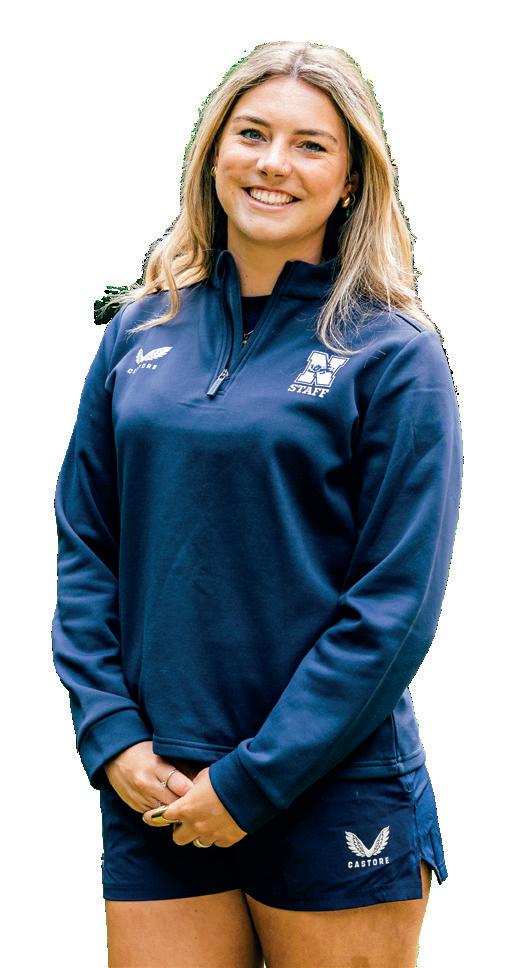
Foody Focus: Francesca’s




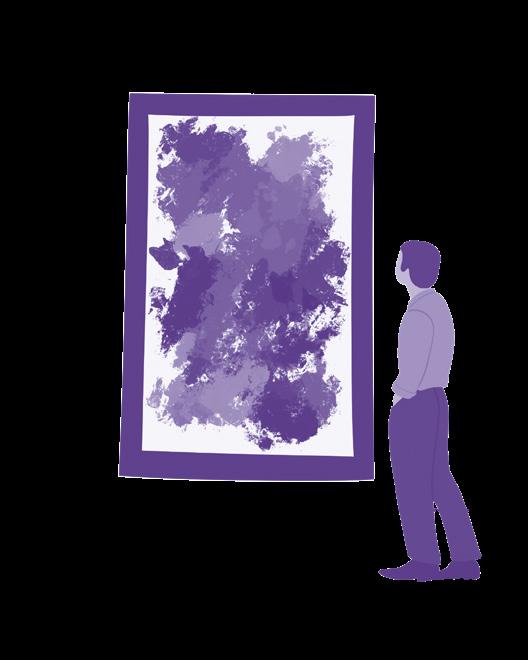

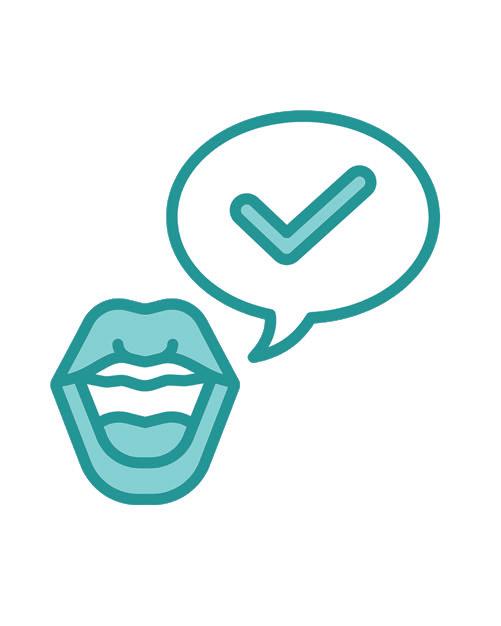
Oscar Jenkins - Head of Current Affairs
UK’s Defend Dissent campaign officially launches in
Newcastle.
Amnesty International UK, alongside Cage International and Liberty, have announced the launch of their Defend Dissent campaign alongside a prospective UK-wide research report that details repression of student voices on university campuses. The report, which is scheduled for publication between January and February 2026, covers twenty-five institutions, including Newcastle University.
In an interview with The Courier, two members of Amnesty UK’s Student Action Network Committee spoke about the context, importance, and goals of the prospective report and the Defend Dissent campaign. Both members are undergraduate students at Newcastle University.
On Wednesday 12 November, the charter was announced at the Defend Dissent Newcastle launch event, held at Tyneside Cinema. Attendees were invited to come forward and give their signature, and students were invited to volunteer as team leaders. These teams would form based on similar interests, all with the same goal of attaining more signatures. A chief goal is to have 800 supporters publicly backing the Defend Dissent campaign by the end of the year, said committee members from Amnesty UK’s Student Action Network Committee.
The event included speeches from students studying at Newcastle University, as well as volunteers at Amnesty International UK. Mariam Barghouti, an American-Palestinian writer, gave the keynote speech via video-call from the occupied West Bank. She stated: “by protesting for Palestine, against apartheid, against ethnic cleansing, against genocide; you are protesting for yourself.” She continued: “first and foremost, to exercise your right to political engagement, to exercise your freedom of expression, and to be part of democratic values.”
This message was echoed by the members of the Student Action Network Committee: “this is not limited to specific political movements [...] this is something that concerns everyone, even if it is not
on your radar now, it will be soon.”
They continued by expressing their excitement about the scale of Amnesty International UK in today’s political climate, stating: “I hope [the scale of] it doesn’t scare people away because it gives them more details about what universities do [...] I hope it makes people angry enough to do something about it.”
“I hope it doesn’t scare people away because it gives them more details about what universities do ...”
The committee members, and students at Newcastle University, also spoke specifically about their first-hand
experiences of protesting on campus as part of the encampment, and why Newcastle is named heavily in the report as one of the main case studies. W
The encampment mentioned here refers to the eighty-two-day Newcastle Apartheid Off Campus encampment that began on May 1 2024, in response to the university’s investments in defence and security sector firms. When asked for comment on Newcastle being named as one of the twentyfive universities listed in the report, a Newcastle University spokesperson said: “We recognise and uphold the fundamental right to freedom of speech within the law for our students and colleagues and seek to foster a culture where difficult issues can be challenged and analysed while accepting differences in views and opinion.”
“We support peaceful protest on campus so long as it is conducted within
the law and our own regulations. We do not tolerate harassment, abuse, or criminal damage, and where individuals are identified as having breached our policies or codes of conduct, we will take appropriate action in line with our disciplinary procedures.”
“We support peaceful protest on campus so long as it is conducted within the law and our own regulations.”
“Our priority is to ensure that our campus is an inclusive and supportive environment where everyone feels safe, respected, and able to express their
ideas, while also ensuring support is available for those affected by views they find hurtful or distressing.”
The Defend Dissent Charter consists of ten pledges which all work to ensure ‘freedom of expression, academic freedom, and the right to protest in universities’. These are available to read in full on Amnesty UK’s website. The members said: “The goal for next year is to have five universities across the country sign it”. A final call to arms was then pushed by the members: “how much will you allow to happen, how much repression and how much discrimination are you going to allow to happen before you do something about it?”.
A similar statement, echoed for importance, closed the interview: “even if it does not immediately affect you now, it will at some point”.
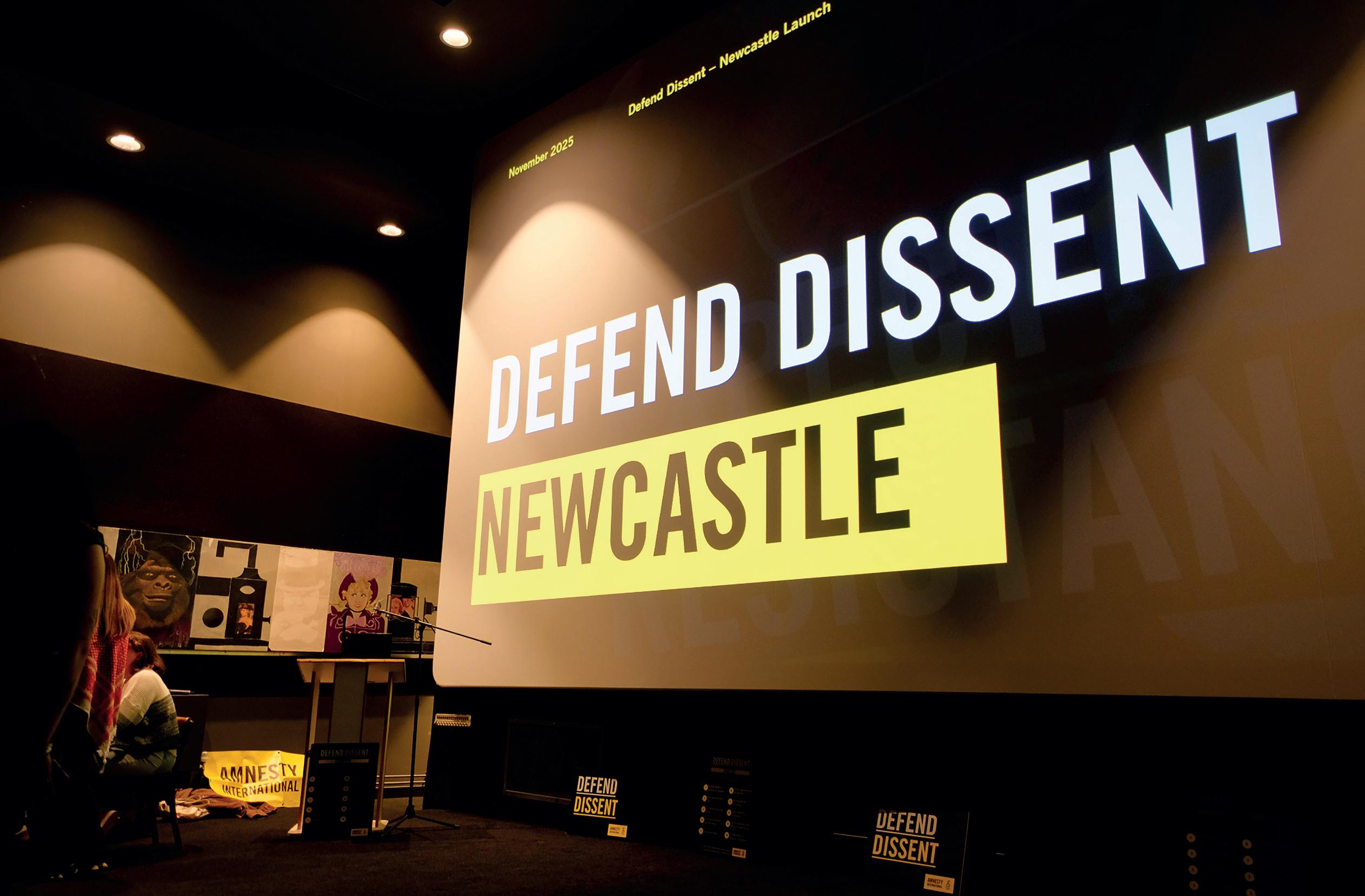
We’re nearly at the end of term, and I can’t believe how quickly this semester has flown by. It feels like only yesterday I was writing my first editors note for the Welcome Edition. And now, we’re nearly halfway through the academic year!
Glad we’ve seen the snow from the colder months, instead of rain. Although, my walk to work in the morning is very chilly... Not complaining though, I love winter!
Our podcast sign-ups are open for NSR. If you’ve got a niche topic to talk about, or you just want a gossip with your friend, we’ve
got space for you. Head to the link in NSR’s instagram bio, @thisisnsr, and sign up now. Fight Night is back, and NUTV are too! We’ll be livestreaming Monday 24th and Thursday 27th and you can watch live - or, sign up to volunteer! We’re looking for Camera Operators, Presenters, and Commentators. Fight Night is a great way to demonstrate your on and off screen skills, so head to the link in our bio, @newcastleunitv, to sign up. It feels so bittersweet to already have four editions published so far this year. Time is going so fast, and I’m just trying to savour it all. I’m so proud of this team, and the incredible work and dedication they put into their work. This week I actually went to see
Is Zack Polanski the leader The Green Party have been waiting for?
By Carly Horne | Page
6
Life & Style |
"My dream is to have a Newcastle Fashion Week": an interview with designer Shelly Kohli
By Mia Wijayatilleke
| Page 19
Culture |
AdHoc Studio's Dispatch has launched: what can players expect?
By Elliot Clark |
Page 25
British BUCS vs American Bucks: the UK versus the US collegiate sport experience
By James Morley | Page 34
"It's a reflection of ourselves." In discussion with I Digress
By Megan Grimston | Page 10



Hi everyone! My name is Gabbi, and I have the absolute pleasure of being your Student media Officer and Editor-In-Chief this year. Over the summer, I’ve been working hard behind the scenes alongside the Editorial team and NUSU to bring you this Freshers’ issue. Not only will you find loads of incredible articles written by our fantastic sub-editors, you’ll also find a one-stop guide to Freshers’ week, including an introduction to the Freshers’ week assistants who have put together an amazing programme of daytime activities for you all.
Wicked: For Good. When I ran for Student Media Officer, my campaign was Wicked themed - as the musical and movies hold a very special place in my heart. I’ve been doing a lot of reflecting in my time in this role already - even though it feels like I only became a Sabb yesterday I’ve already been here for five months.
I hope you all enjoy the rest of the semester, and are taking it easy on yourselves. I’m really excited for the winter break - and there’s not long left! We have one more edition to publish before we sign off to spend time with our families and friends. So I’ll speak to you then! Happy reading :)
Freshers’ week is a time to get to know more about Newcastle University, but also the city
Want to get involved? Come see us! Wednesday 26 November 1.30-2.30pm Level 1, NUSU

Libby Griffiths
l.griffiths9@newcastle.ac.uk
Trinity Eadie
t.eadie2@newcastle.ac.uk
Heads of Current Affairs
Oscar Jenkins o.jenkins1@newcastle.ac.uk
Jess Mooney j.mooney2@newcastle.ac.uk
News
Phillipp Andreewitch
Ben Moore
Katy Woods
Callum Borkowski
Scarlett Palmer
Scarlet Davies
Sophie Psaila
Emma Stephenson
Charlotte Chantler
Sapphire Ling

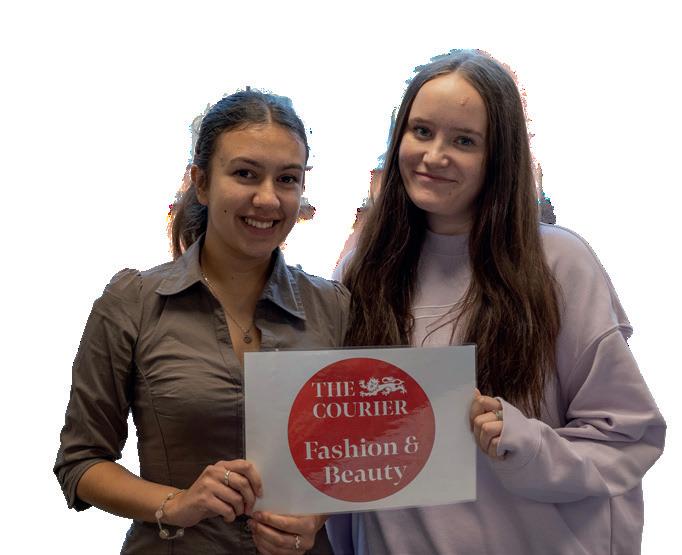
Adam Lovegrove
a.lovegrove2@newcastle.ac.uk
Dylan Seymour d.seymour1@newcastle.ac.uk
Life & Style
Heads of Life & Style
Charlotte Burley-Hnat c.burley-hnat2@newcastle.ac.uk
Ruby Tiplady r.tiplady2@newcastle.ac.uk
Elin Auld
Ursula Monro
Blind date and Agony Aunt: Charley Dobson
Lifestyle
Erin Neal
Izzy Whitley
Fashion &
Beauty
Ella Saint
Mia Wijayatilleke
Travel
Tilly Aveyard
Sophie Jarvis
Food & Drink
Rowanne Holmes

Ruby Tinkler


Culture
Heads of Culture
Keira Gratton
k.e.gratton2@newcastle.ac.uk
Amy Mescus
a.mescus1@newcastle.ac.uk
Music
Emma Monaghan
Milly Thompson
TV
Maddy Kendall
Kate Kennedy
Film
Charlotte Atkinson
Zoe Lett
Alex Paine
Gaming
Emily-Maisy Milburn
Keyon Snoek
Arts
Phoebe Clark
Imogen Hayes
Puzzles
Raven Orteza
Sport
Senior editor:
Noelia Fernandez Perez
n.fernandez-perez2@newcastle.ac.uk
Sasha Cowie
Megan Grimston
Aarya Shenoy


3-year-old white rabbit, kidnapped from Ouseburn Farm in Newcastle.
Snowy, a 3-year-old white rabbit, has been stolen from Ouseburn Farm in Newcastle between Saturday 18th and Sunday 19th October. The farm was closed at the time, leaving the workers at Ouseburn farm and Lola, her sister, greatly distressed.
The theft has been reported to Northumbria police but there have still been no updates on Snowy.
“Rabbits require companionship, and the separation of the two sisters is one of the main concerns for staff”
Rabbits require companionship, and the separation of the two sisters is one of the main concerns for staff at Ouseburn farm.
Staff kept Lola in the office with them and gave her treats on Monday, after they found out about the theft.
Katy Bates, a farm manager, described this action to BBC Radio Newcastle as a ‘violation’, stating that animals recognize workers, and for a stranger to come in “and just take her, feels a bit of a violation”.
Katy’s concern goes beyond Snowy, as she also expresses how Snowy has been taken away from the thousands of visitors that they have.
She also makes an emphasis on how this will affect the adults with disabilities that attend workshops on the farm, who will be “incredibly upset” when Snowy is no longer there. Ouseburn Farm is a registered charity that works to take care
of animals and work with vulnerable adults. Katy Bates said that taking Snowy will impact the adults with disabilities who regularly visit when they realise she is not there.
This theft is one that is affecting many people. Kate just wants Snowy to be back. She even stated that “if she is returned to the farm safely there will be no questions asked”, giving the thieves the opportunity to return Snowy to Ouseburn Farm without consequence.
Anyone with information is urged to contact Northumbria Police or Ouseburn Farm directly.
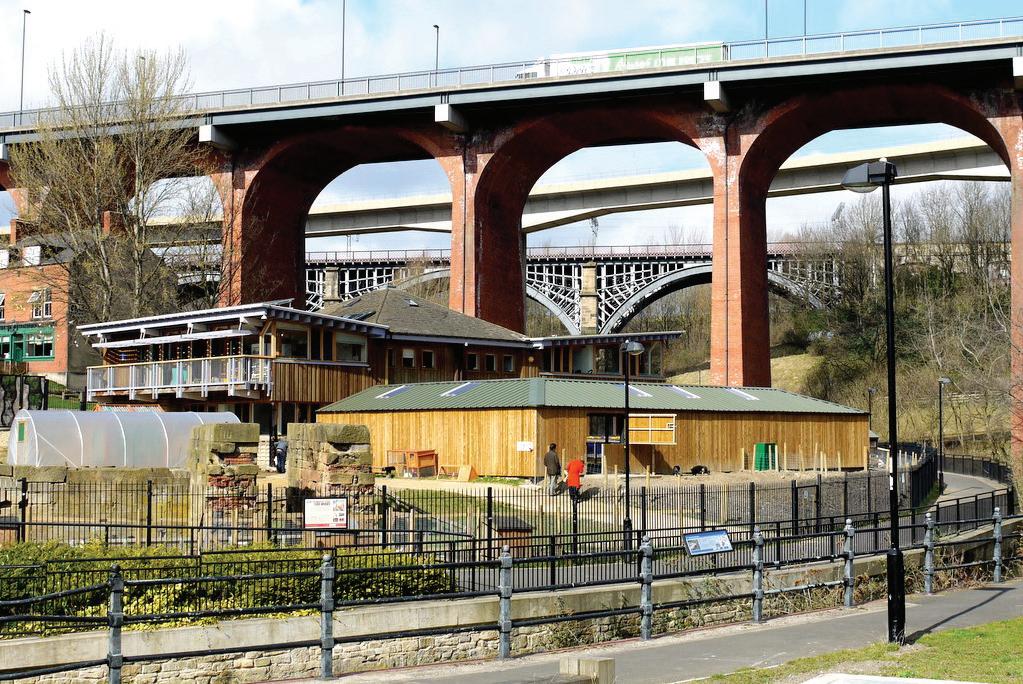
Image source: Andrew Curtis, Wikime- dia Commons https://commons.wikimedia.org/wiki/ File:Ouseburn_Farm_and_the_bridges_-_geograph.org.uk_-_1777725.jpg
Forth Lane and Pink Lane chosen for new art colaberation.
Newcastle city centre has welcomed a series of new murals as part of a £1.7 million, fiveyear initiative to support local artists.
Funded by the North East Combined Authority, Newcastle City Council and the UK Shared Prosperity Fund via the UK Government, the new works are set to expand Newcastle’s growing art scene, bringing colour and collaboration to two of the city’s most historic streets.
city. Masters, a gilder and oil painter, is exploring the theme “through the eyes and hands of a person of colour.” Harris, inspired by the landscapes of Northumberland, examines the sensory connection with nature.
“Each piece reflects a personal story”

The latest works appear at two historic city lanes, Forth Lane and Pink Lane, and respond to the theme “Pleasure Garden”, nodding to Forth Lane’s to the Forth, which was formerly a well-loved green space used for community gathering.
The Forth Lane Urban Gallery first launched in October 2024 and is a collaborative project led by Creative Central NCL in partnership with Newcastle Arts Centre, Project North East and NE1.
This year, Forth Lane features new pieces by four artists: Bex Masters, Bethan Harris, Mark Shields (Mark One87) and Josie Brookes. former role as a walkway held within the
Each piece reflects a personal story of the heritage and unique experiences held within the city. Masters, a gilder and oil painter, is exploring the theme “through the eyes and hands of a person of colour.” Harris, inspired by the landscapes of Northumberland, examines the sensory connection with nature.
Graffiti artist has collaborated with residents of Tyneside Foyer to express people’s instinctual need to connect with nature. Meanwhile, Brookes worked with the students of Newcastle College to celebrate the voices of young artists.
On Pink Lane, artists Millie Avis and Alex Saunders (ALECLDN) are designing hand-painted artworks to guide visitors towards nearby cultural venues such as The Black Swan, Newcastle Arts Centre and the Tyne Theatre and Opera House. Their playful, small-scale designs feature on facades, gates and shopfronts.
Newcastle City Council sees the display of public art as an opportunity to enrich the city centre, with projects like this highlighting the value of creativity in bringing people together.
Grace Laidler ~ NUTV Station Manager Little Mix star Jade Thirlwall recognised by local town.
North-East pop singer JADE is set to be awarded the Freedom of the Borough from her hometown, South Shields.
The South Tyneside Council agreed upon this at the end of October, citing the singer’s commitment to being a positive cultural ambassador for the local area
The council leader, Councillor Tracey Dixon, said that JADE’s “achievements and dedication have brought pride and inspiration to our borough.”
JADE, full name Jade Thirlwall, was born and raised in Laygate, South Shields. She rose to fame by appearing on The X Factor as part of Little Mix, the first group ever to win the singing
competition. She spent a decade as part of the girl group, scoring 19 topten singles, including five numberones After Little Mix went on hiatus in 2022, JADE branched out into solo music. In September, she released her debut album That’s Showbiz Baby!, which was met with critical acclaim and reached number three in the UK Albums Chart.
In her hometown, JADE is the honorary president of South Shields Football Club, a supporter of The Customs House theatre, and owns a bar called Arbeia, named after the local Roman fort.
She is an ambassador for both Cancer Connections and Stonewall. She is an outspoken ally for LGBT+ people and has spoken out against the recent anti-immigration

Alongside JADE, local restaurateur Richard Ord MBE will receive the Freedom of the Borough for his stewardship of South Shields icon Colman’s Fish & Chips.
Image source: Rustyleigh, Wikimedia Commons https:// commons.wikimedia.org/wiki/ File:Jade_Thirlwall_at_BBC_ Live_Lounge.jpg
Grace Loveday
Vanquis reveals the millions owed by students across the UK.
Freedom of information requests uncovered private student debt of nearly £500 million is owed to UK universities. 148 universities were contacted and the data from the 77 who responded reveals the 180,000 students and graduates in private debt to their universities.
The debt consists of library fines, unpaid accommodation, support loans, and course and facility fees. The £486million universities have a right to collect from students means that the average debt owed is £2,650. Keep in mind this is on top of the standard tuition and maintenance loans which already leaves students with an average debt of £53,000.
“The average debt owed is £2,650”
University tuition fees also rose last year for the first time in over a decade to £9,535 – an increase of 3.1% from the previous year. This saddles the ‘class of 2028’ with a debt of £28,605 in tuition fees alone. Unlike standard tuition loans, private debt has a shorter repayment schedule and no minimum income threshold requirement for institutions to start
collecting. This is due to the fact the debt is owed directly to the universities rather than to the government, as is the case with student loans .
“The University of Sunderland was ranked 2nd in unpaid fees”
The main reason suggested by Vanquis (the submitter of the FOI requests) for all this private debt is the increasing cost of living. 31% of students have said they’ve considered dropping out due to financial problems and a recent study reveals that more than two thirds of students now have a part time job during term time – a 12% increase from 2024.
With Labour’s recent announcement that university tuition fees will continue to rise every year in line with inflation, it’s likely this private student debt will

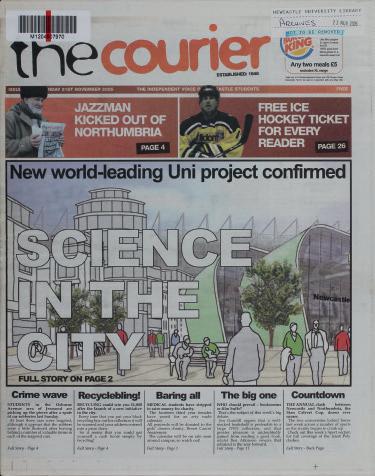

Doing assessments is never a walk in the park, but when it starts getting dark as you’re walking home from your lectures, and every morning you open your blinds to dark mornings, full of rain and gloom, assessments become ever more depressing.
Mid-module assessments are at a time of year where motivation is lacking, and the weather makes everyone want to cosy up in bed with a cup of tea, not sit in Philly rob staring at a laptop for hours. First year felt like a breeze. There was still adrenaline as the mid-modules were released, and it didn’t matter if you didn’t get a first, because you only need to pass. Whereas now, it starts to feel real, and increasingly hard work is needed to get the grades. Seasonal depression is horrendous and being from England we are all susceptible to the absence of vitamin D, and the dark mornings and evenings. It makes it hard to function normally, and each year myself and many others dread the seasons changing, and the clocks going back.
My advice is to prioritise mental health and give yourself a break. University is hard for everyone, living without family and being far away from your home friends is felt much stronger when you’re stuck in rainy, dark England. Even more so in Newcastle where it’s a few degrees colder than the majority of the nation. Take time to watch a movie, cook a healthy meal and call your friends to debrief on the recent nights out. When seasonal depression takes over, you forget to prioritise yourself, ending up in a vicious cycle of stress at impending deadlines.
Mid-modules are important, but it isn’t the end of the world if you take a day to prioritise yourself; this will make sitting down to do work much easier to cope with. Also, do your assessments somewhere that opposes the seasonal darkness and the cold. If Philly rob is busy and feels stressful, go to a coffee shop with friends, or find a quiet study room on campus. As I write this article I am sat in Luther’s with a hot chocolate, and it makes it so much more enjoyable!
"Give
yourself a break"
If you take a positive attitude with your mental health and help battle the dark days and freezing cold wind and rain, it will make the midmodule assessments much easier. Give yourself a break, seasonal depression is not for the weak, and it’s something so many people suffer with.
Saint - Fashion & Beauty Sub-Editor
Want to know what humbles university students?
It comes as no surprise that university life is a hellish mix of caffeine, chaos and character development. For me, university has been a 'trust the process' experiment and I've had my fair share of humbling moments. While it was nearly impossible to limit myself to just 10 things, here are the main reasons why my ego has always been kept in check:
"Why must I take out a small mortgage to keep my clothes clean?"
1. Circuit laundry
The root of all evil. Why must I take out a small mortgage to keep my clothes clean? Nothing screams “I’m barely holding it together” quite like standing in front of a washing machine that’s just swallowed your

last £4.
2. Doing a big food shop and being red in the face before I even reach my front door
Armed with my re-useable carrier bags and a dream, it feels like I've reached pique adulthood. I'll frolic around the supermarket with notions of meal prepping swarming around my mind. Then the reality hits... the dreaded walk home. By the time I finally get home, my fingers are purple from plastic handles, my arms are shaking, and my face is the shade of a ripe tomato. The worst part? I always end up forgetting the one thing I actually needed.
3. Choosing an extra 15 minutes of sleep. It's a tale as old as time. My alarm will go off, I'll convince myself a few more minutes in bed can't hurt, and all of a sudden I have less than 20 minutes to get myself out the door and onto campus. I'll rock up to my 9 am in an outfit that is far from socially acceptable and try to make sense of the 18 lecture slides that are somehow supposed to take up 2 hours.
4. Checking how much I've spent after saying I would just have a 'small night out'
Budgeting? Self control? Clearly haven't heard of either of them before.
5. Reading the feedback on my essays. It happens to the best of us: thinking we absolutely devoured an essay, only to have our dreams crushed by the feedback comments.There are more question marks than you've ever seen before and a suggestion to go into more detail despite having a word count that didn't allow any room for further
The North South divide is a concept used to describe the economic and cultural disparities that exist between the North and South of England. The divide is institutional and is perpetuated by national government in Westminster.
In a university context, the North South divide provides a stark reminder of the class disparities between parts of the UK.
University gives students the opportunity to meet people from different a multitude of backgrounds, becoming a melting pot for cultural exchange. Although it doesn’t always feel like this, interactions between Northern and Southern students are often hostile, with prejudices and stereotypes going both ways between those from the North and South.
As my Geordie friends often remind me, Newcastle is very much ‘The North’, you can’t get any more northern! It was therefore surprising, and disheartening, that when I arrived at the (not so) pearly gates of Castle Leazes to begin the first semester of my new life I didn’t encounter a single northerner!
The impact of the ritual humiliation that most northerners face at university by asking us to pronounce certain words or phrases (such as my least favourite “say chicken and a can of coke”) for the amusement of our southern colleagues cannot be understated.
Being mocked for your accent, asked “how many girls have you got pregnant” or overhearing others ‘joke’ to “stay away from [me], he’ll rob you” just for being Northern (and in my experience because I'm scouse) are
explanation.
6. Getting picked on by a seminar leader when it's painfully obvious I haven't done the pre-reading Sometimes I feel like I wear a sign on my back that reads, "Pick on me!".
Seminar leaders seem to have a warped sixth sense where they know exactly who hasn't done the required reading. And that said person is usually always me.
7. Not checking the weather

Mother nature always seems to have it out for me. Every time I decide to straighten my hair, the forecast predicts a torrential downpour. God forbid I choose not to bring a jacket one day -I fear I'd turn blue before my final lecture ends.
"Mother Nature always seems to have it out for me"
8. Every all-nighter I have ever pulled, it's just never a good idea. Yes, you're fueled by adrenaline (or perhaps it's just an ungodly amount of caffeine) and a looming deadline. But I can honestly say my best work has never been the result of an all-nighter. All it leaves me with is feeling like a zombie the next day.
that decides to go off at the crack of dawn
Arguably the most humbling of them all, the piercing wail of student accommodation's fire drills. One moment I’m peacefully asleep, the next I’m standing outside in my pajamas, clutching my phone and wondering where it all went wrong. It’s always 5 a.m., it’s always freezing, and you can only pray you remembered to grab your key card to let you back into your room. 10. The passive-aggressive emails I receive from my lecturers. Every email I send is crafted with love and care - so why is it nearly impossible to receive the same kindness back? The tone is perfectly balanced — not rude, but sharp enough to make me rethink my existence. The worst part is when it’s addressed to the class, but you know, it’s about you.
deeply discriminatory behaviours that must be challenged. The entitlement of these individuals immediately sours the experience of university for us northerners. The feeling of imposter syndrome, feeling like an outsider, in a northern city, as a northerner is outstanding! As a straight, white, cisgender man, I am fortunate to have faced little discrimination back home. Yet in University I immediately suffered discrimination because of how I talk, my assumed class status and perceived intelligence.
A great source of spiteful pride is knowing that, despite however I may be viewed, I attend the same university as them, we’ve ended up in the same place. (and my parents didn’t need spend thousands of pounds on my education!)
The feeling of imposter syndrome in a northern city, as a northerner, is outstanding!
Is the stereotype of a southerner, someone who asks ‘where you went’ instead of where you’re from, who can afford to buy a new costume every Wednesday night and who claims they ‘live near London’ whilst actually deriving from somewhere with a name that wouldn't look out of place on a map of Middle Earth, a fair representation? Or just a lazy stereotype?
The subcultural groups of some southerners may provide the origins of this oversimplified stereotype. The idea that Jesmond is a ‘southern exclave’ is a popular joke amongst northern students at Newcastle. The Rugby Lads and Jesmond Rah’s are popular subcultures within the university. The posh commune of Jesmond provides many southern students with a ‘safe space’ away from the reality that faces many in the North.
Gina Tindale - Academic Officer
September of second year. You’re about to move into your second year house, probably somewhere in Jesmond, probably with 4-7 housemates in tow. You are so excited to finally get to live with all of your best friends from first year! And then it all goes wrong …
The second year house curse happens to the best of us. There is not a single soul who has not either experienced it themselves, or vicariously experienced it through a friend who has been adopted into a second household after the curse starts its effects. But why is this phenomenon so common? It starts with the house signing. Unlike first year, where for the vast majority of us your housemates will be randomly assigned by whatever student halls provider you choose to live with, in second year you choose. However, you choose in October or November, from a pool of people that you have known for a month or two. Of course it sounds great at the time! But you don’t really know these people. For the unlucky few, there are horrific falling outs before they even reach the tenancy start date, leading to housemates dropping out and the whole process beginning anew. At best, you develop very close friendships with these housemates by the end of first year - but you can’t know what they’re like to

live with until you’re actually living with them
Second is the numbers. Why do we all so naively think as 18 year olds that the more people we live with, the better? In imagination, having an eight person ‘party house’ sounds great, until you actually have to live in the self-proclaimed party house with seven other people and all their guests when you have a 9am the next day. And who is cleaning up that mess? And how do you divide the 2 bathrooms, when one is an ensuite in the attic? Nevermind the fact that there is never enough kitchen space to hold everyone’s individual pots and pans.
So September comes, and you move in with all of these people that you know well enough but not what they’re like in the privacy of their own home, in a house that’s too small to contain you all. And the dynamic is strange. This isn’t like first year, where the people are strangers and if you really dislike them there’s nothing much to lose. The tensions are much higher. Confronting a friend one too many times about their really annoying tendency to never take out the rubbish is suddenly friendship-ruining and all the other flatmates will be taking a side too!
But it’s only for a year, and you’ve learned now. You know you don’t have to rush into a tenancy agreement in October. You’ll wait until December now and sign on with people you know much better. You’ll move somewhere quieter, like Heaton, and live with maybe 2 or 3 others. And you and your new house will all bond over your crazy horror stories of second year.

Carly Horne
As Kermit the Frog once said, "It's not easy bein' green"...
The Green Party has been coasting on political life support for years. Predictable, polite, and comfortably ignored. For a long time, their appeal sat in the same bracket as UKIP’s early insurgency: a home for voters disillusioned with Westminster, convinced that mainstream politics had stopped listening. A Green vote was less about governing and more about expressing frustration with the two viable options.
he links the climate crisis to everyday precarity, arguing that no one can think about ecological collapse when they can’t afford heating or rent. His platform marries classic Green politics with a blunt economic populism and a foreign policy stance that rejects NATO, questions the UK’s alignment with the US, and demands that the government name Gaza a genocide.

radical - Pro-Palestine, anti-NATO, pro-proportional representation. He is charismatic, articulate, digitally-aware, but at this stage, Zack Polanski is only a narrative threat to the Labour Party, not a numbers one.
The problem is that the Green Party is a small horse running a big race.
Aarya Shenoy - Sports Sub-Editor
Are you a Rory Gilmore or a Garfield?
start a-new, much like a new year or beginning of a new term. You’re rested from the weekend, and your energy is high.
"Monday

But the mood is shifting.
Enter Zack Polanski, newly elected leader of the Green Party of England and Wales, and possibly the most media-savvy figure the Green Party has put forward recently.

He communicates with the clarity and charisma of someone who actually expects to win
Polanski is an unusual political creature: openly gay, vegan, and rooted firmly in the progressive wing of British politics - and yet, unlike past Green figureheads, he communicates with the clarity and charisma of someone who actually expects to win. His worldview is unapologetically radical:

And he’s not shy about the scale of his ambition. “We’re not here to be disappointed in Labour — we’re here to replace them,” he declared after his election. It sounded delusional at first, but the numbers soften the cynicism: party membership has surged by 70% in a month, climbing past 115,000, and he’s already flirting with overtaking the Conservatives in member numbers and Labour in the polls.

So, what does Polanski mean for the Labour Party? Labour used to a home for left-wing voters, and yet recently, the party and its voters don't seem to recognise one another. Polanski, on the other hand, is unapologetically

And while Zack Polanski may attract a younger, more radical voter base, his views may also alienate an older, more middle-class voter. They might align themselves with the environmental stance of Polanski's party, but be turned off by foreign policy upheaval and his economic
It's early days for Polanski, and he isn't likely to flip the party into a major electoral force overnight. What he can do, however, is to turn the party from a protest movement into a political contender.

In order for the Green Party to capitalise on their growing popularity, they must accept that charisma is only part of the picture. Polanski is fresh, radical, and interesting - but he is not a silver bullet.

When security fails, panic prevails...
Arapid seven minute heist took place on the 19th of October, taking us all by surprise as the Louvre was robbed of £150 million worth of uninsured jewels. You heard it right, uninsured. In a world where almost anything can be insured, one of, if not the most famous museum in the world decided these priceless jewels could fend for themselves. How did two thieves, a scooter, and a furniture lift raise public outcry for harsher law enforcement?
“how was this so easily accomplished?”
What's most comical about this heist seems to be its masterpiece of... simplicity. With no sense of urgency, two thieves were reported to have used a furniture lift, broke through a window, strolled in and took the jewels, and rode off into the distance on electric scooters. Yet how was this so easily accomplished? Were there no alarms, security, any suspicion at all that prized jewels were casually being slipped into the hands of these amateur thieves?
To answer that question, a simple glance at the security cameras would
reveal the “outdated and inadequate security infrastructure” as admitted by the Louvre director Laurence des Cars. There was a lack of any alarms, no rush of security, and any panic from visitors, perhaps assuming a scheduled installation, or a new art in motion piece they hadn’t quite been told about.
“150 traces of DNA have since been found on site yet again reflecting the lack of heisting experience..."
Yet the irony? In recent statistics, crime rates are shown to be declining, the only increasing factor seems to be public concern. With coverage of crime in the media at an all-time high, who's to blame for the public's panic when it's all that's told to them.
Growing up, Monday tends to receive a negative reputation –going back to school after a full two days off, waking up at criminally early times in the morning and listening to your parents get ready to go back to work.
The negative association doesn’t seem to go away. Scientific study has even shown that stress levels increase on Monday’s due to abrupt change in routine causing fatigue and lower levels of productivity.
I completely disagree. Monday’s symbolise the beginning of the work week, yes, but as with every beginning, it arrives with a sense of a fresh start. Monday’s allow you to have a reset every seven days, make changes week o week, and set new goals for yourself to be implemented on a Monday. As people, we tend to start projects on the hour or on any other ‘round number’. You wouldn’t go to the library at 18:37, you’d probably wait until it hit quarter to four. Monday brings you a chance to
has its negatives, but ...it can be spun into a more positive light."
Therefore, I propose to you Thursday being the worst day of the week. You’re dragging your feet when going to classes or work, the weekend is so close, and yet still so, so, far and Thursday just emits a “fed-up” vibe.

Usually, by this point, whatever could go wrong has gone wrong and have a mere 48 hours to fix it before the weekend. Productivity is decreasing, motivation is wavering, and Thursday is usually the day where I want to just stay in bed and ignore the entire world outside. Monday has its negatives, but as with most situations, it can be spun into a more positive light. Use it as a day to reinvent yourself until you find a version you really like and then keep them.
Are uni jobs fair?
Harsh Agrawal Discussing part-time work at uni...
Deciding whether it’s fair for university students to work while studying really depends on personal choice as it’s a matter of preference. Like anything, it comes with its own set of pros and cons. If students can effectively balance their studies with part-time work, it’s not harmful at all and working can even greatly enhance their personal development.

Having a job exposes them to real working life before graduation, teaching them how to navigate the world beyond university. It helps to build professionalism, time management, and punctuality, while also providing extra income for personal expenses.

However, there is another side to it. Some students struggle to find enough time for both work and studies, and the added pressure can take a toll. In some cases, it might even end up affecting their academic performance.
When I personally reached out to students at Newcastle University to hear their thoughts on this topic, the responses were quite eye-opening. I met Georgia, a 18-year-old undergraduate studying Literature. When I asked her opinion, she said, “For me, it’s like a burden to work while being a student. It feels unfair because it adds extra pressure, which isn’t right.”
On the other hand, I spoke with Kanupriya, an international student from India pursuing her Master’s in Journalism. She shared, “It depends… For me, coming from India, the financial burden is quite high, and I
can’t afford not to work. I need a parttime job to manage my living expenses here.”
“There are also many oncampus jobs at Newcastle University and numerous part-time roles”
This really shows how perspectives differ — for some students, working might feel optional, but for many, it’s often a financial necessity.
Newcastle’s student job market, fortunately, is pretty good. With over 50,000 students living here, the city has a youthful energy that thrives on student life. There are also many on-campus jobs at Newcastle University and numerous part-time roles available across cafes, shops, and other local businesses. It’s safe to say the city is quite student-friendly when it comes to job opportunities. If you can strike a balance between hitting the books and working, it can actually be a huge advantage. Taking up a part-time job throws you into the deep end of the real world even before graduation. You learn to deal with difficult customers, show up on time, and develop a strong sense of responsibility and professionalism. And that extra cash? It’s a lifesaver for covering rent or enjoying a night out with friends.
But let’s be real, it is not always a picture perfect thing. Trying to hustle between both work and study can feel like squeezing a week’s worth of tasks into a single day. The strain can build up, leaving you exhausted and overwhelmed. Fair or not, it’s all about making it work for you — but there’s no denying it can be tough when the pressure starts piling on.

Is student unemployment on the rise?
When I moved to Newcastle, I thought finding a part-time job would be easy. This year, the reality is very different. Many students are applying everywhere, cafés, restaurants, retail stores and hearing the same response: “We’re not hiring right now.” This message seems to echo across the North East this autumn as students look for the flexible, part-time work that used to be readily available. What used to feel like a familiar routine, studying by day, working by night is now a tense waiting game. Even big chains like Greggs, Costa and McDonald's, which were reliable for students, seem to be hiring less often or offering fewer hours.

“I walked all the way from Monument to the Quayside,” says Harsh, a postgraduate student.
“Applied to over 20 cafés and restaurants, every café on Grey Street - Pret, Baltic, small independents, said the same thing. Either they aren’t hiring, or they want someone who can work all weekdays. I have lectures. I can’t.”


Now, even on Saturdays, we barely see 20 or 30 people. Weekdays are almost empty. The bars are empty. It’s not like before.”

When fewer customers come in, fewer staff are needed. It’s not personal, but that doesn’t make it easier.
Image: Source: (PIxabay) TheDigitalArtist, https://pixabay.com/illustrations/ rejected-stamp-denied-rejection-5250678/
Why are Labour and the Tories being ditched by student societies?

According to the North East Evidence Hub (2025), the region’s employment rate is 68.8%, the lowest in England, while the economic inactivity rate is the highest at 26.6%. At the same time, the Indeed Hiring Lab reports a 12% drop in job postings nationwide compared to pre-pandemic levels, with part-time listings falling the fastest.
For international students, the situation is even more pressing. Visa restrictions limit work to 20 hours per week, creating fewer opportunities, while living costs keep rising.Even hospitality staffing agencies, which used to be a backup option, are unreliable now. Arc Hospitality, for example, conducts full screening, onboarding, and training here, but most of their shifts are in London and major stadium cities, not in North East. You can complete everything, get the uniform, and still wait weeks for a suitable shift.
“Even zero-hour contracts aren’t reliable anymore,” says Shubh, a Data Science student. “You might get one shift every two weeks. That’s not enough to live on.”

This isn’t just about students wanting extra spending money. A part-time job often covers groceries, heating, bus fare, medication, and the occasional moment of comfort in an already demanding life.

NBusinesses are struggling too. The slowdown isn’t just in hiring; it’s in foot traffic. At Rani, an Indian restaurant near the Quayside, the owner shared something that struck me: “Earlier, weekends used to be packed. The city center was lively; you could see the long queue near bars.

There are still jobs - campus roles, library shifts, event staffing, logistics, but they fill up quickly, and students arriving later in the term are already at a disadvantage. Part-time work in the North East hasn’t disappeared. It has simply become harder to find and more uncertain once you do. Acknowledging this matters. Students aren’t struggling due to laziness or lack of effort, they’re facing a region where opportunities have quietly dwindled, long before anyone warned us.
Do you really need a car to get around in Newcastle?
Public transport versus your own vehicle...
The age old debate of public transport vs your own car has been one that we have all probably considered whilst being at university. Having grown up in the middle of nowhere, I am no stranger to loving the convenience of being able to hop in your car and go. However, since entering a city my eyes have been opened to quite how cost effective public transport can be.
In Newcastle, we are blessed with multiple forms of public transport, from a large bus network, to trains, and the ever iconic Tyne and Wear Metro, there is really no excuse for not being able to get around. When you crunch the numbers, the North Easts prices are pretty unbeatable, with students being able to get around for as little as a pound when travelling single journeys on the buses and metro. Not only is this insanely cheap, but it's also convenient with both services running very frequently. Having that pop card sat in your wallet truly does pay off around here.
Now although I will argue getting the metro is a cultural experience and part of student life in Newcastle, I am not going to ignore it's floors. With trains often being late, amendments to service, it is really a battle of wills sometimes to love and praise it.
However, the fact you can hop on from anywhere around the city and be at the beach in 20 minutes has to be one of my favourite things about Newcastle transport. It's also an unbeatable cheat code when you can't be bothered to walk to lectures all the way from West Jesmond or high Heaton.
The characters and events you witness on them also provide as a funny anecdote to tell friends back home, and it truly is a part of student life here.
Now on the other hand the bus network has only recently become part of my weekly agenda, with the twice a week trip out to Cochrane Park now meaning I'm delighted with the experience of the coast road buses. I will be completely honest I actively avoided the bus network in my first year of university.
The overwhelming amount of buses to get anywhere and everywhere, chaos that is Eldon Square and Haymarket station was enough to send fresher me into a coma. However, once you actually workout what stand and what bus to get on, your horizons of places to go suddenly gets a whole lot wider. From buses to Durham, Alnwick, and neighbouring Northumberland towns they are great way to explore the wider area of the North east, all still at a super affordable price.
the supermarket and the constant lifts everywhere, the novelty can soon wear off. Plus the price of fuel, emission charges, and car insurance are all money better spent on a CoOp meal deal, Sweet treat or a Pint. Living in city that has such a great transport system to the local area and beyond, there is really no need to fork out for a parking permit and be spending your weekly budget at the car wash.
“You
can get everywhere you could possibly need on the public transport around you.”

around you, so I would argue you really don't need to have a car whilst spending your time in Newcastle as a student, so save yourself some cash a grab a ticket for the bus or metro.
ewcastle’s student political scene is changing. Both Labour and the Conservatives have become political poison on campus, forcing their societies to rebrand or risk extinction. The youth wings of Britain’s biggest parties are walking away, not because students have abandoned politics, but because they feel politicians have abandoned them.
Since the the beginning of the academic year, the Newcastle Labour Society, which has existed for over 70 years, has been proudly promoting itself as the Socialist Society. The name is yet to be ratified by NUSU at the time of writing, but even stalwart Labour members have conceded in recent meetings that the Labour label is simply too toxic to attract leftist students at present.
On the other side of the aisle, Newcastle’s Tories have had their own makeover, rebranding to the Conservative and Reform Society. Cyan flags adorned the top half of the old Conservative banner, signalling which party holds the majority stake in the reformed small-c conservative coalition. In the same vein, costly cashmere overcoats had been swapped for a more palatable Newcastle United shirt, and the currently controversial St George’s flag serving as a tablecloth lent the group a certain faux common man aesthetic.
The reason that both societies are distancing themselves from their parent parties is simple: both parties have alienated young, politically engaged students.
Henry Bateson, President of the Conservative and Reform Society and a recent Reform UK convert, told me in personal correspondence that the name change is "keeping something alive on the right of politics [...] effectively attempting to be pragmatic and get the best of both world[s]". Jess Wilson, President of the Socialist Society and a new Green Party member, said that "it's important [...] for leftwing students to feel safe and socialise within university. The Labour Party name is no longer providing this for young people".
further than George Osborne ever dared to, restricting access to vital trans healthcare amidst soaring waiting lists that cost children their lives every week, and continuing to support Israel in its genocide of the Palestinian people. Simultaneously, the Conservatives have continued to implode since their disastrous loss last year, being outpaced and outperformed by Reform UK in almost every poll and local election. Badenoch, meanwhile, seems too distracted criticising “soggy bread" and autistic children to realise she's Kemi-kazeing the Conservatives' credibility.The consequent fallout was very much felt by both societies. Last year, neither of Newcastle’s party political groups exceeded sixteen members. Newcastle's Socialist Society did not stand alone in its disaffiliation, however, with it being the second of four major societies to break from Labour this Summer. The Conservative and Reform Society, too, is joining a small but growing series of other Reform Societies recently founded in the UK.
“the Socialist Society has nearly doubled its membership [...] following its name change"

Yet despite the collapse of traditional party brands, student politics in Newcastle is far from dead. In fact, it’s thriving, just not under traditional party brands. Groups like Amnesty International Society and Plant-Based Universities are seeing healthy levels of retained engagement, the Socialist Society has nearly doubled its membership from last year following its name change, and the Tories and Reform Society said that their rebrand "allows us to have our 4 dinners a year". If anything, the decline of party loyalty has invigorated student activism. Freed from the baggage of Westminster politics, Newcastle’s students are finding fresh ways to express their politics: through campaigns and causes that fully align with
Now although there is so much ease of having a car at uni, the constant nagging to take people to
For Labour, despite electoral promises of “change”, few changes have cut through to the public that haven’t felt like a rightward shift. These include cutting disability benefits

The message is clear: students haven’t turned their back on politics, they’ve just stopped settling for half measures.

Arianne Davies
One of our writers explain the impacts of saline permafrost on the environment & everyday life...

Climate change is a worldwide problem with the Arctic being one of the most affected regions, warming twice as fast compared to the rest of the planet. This may not seem significant to those of you living far, far away from the North Pole. However, I am here to warn you; the warming Arctic isn’t only a problem for polar bears.
“Permafrost is so important for the regulation
of our atmosphere”
In simple terms, permafrost is a layer of the ground that remains frozen all year round. In normal conditions, only the top layer of soil

Image credit: RichardsDrawings, Pixabay, https://pixabay.com/service/license-summary/
in the Arctic thaws in the Summer and refreezes in Winter. Permafrost is so important for the regulation of our atmosphere, being one of the largest carbon stores on Earth. It locks away almost 1600 gigatons of carbon – that’s nearly double the amount currently in our atmosphere. However, as permafrost begins to thaw as one of the many effects of global warming, immense amounts of carbon are being released as methane and carbon dioxide. This greatly accelerates climate change and adds to the already existing problems we face. Scientists have recently discovered how and why saline permafrost thaws at an even faster rate. Let me take you back to thousands of years ago during
the last warming period on Earth. During this age, seas advanced further up north, leaving behind salt deposits, which then became frozen and buried deep as time went on. This contributed to what we now call saline permafrost.
“These
salt layers seem to be accelerating thawing”
These salt layers seem to be accelerating thawing, similar to the desired effect of salt being scattered on an icy road during Winter. As a result, Arctic change is occurring at an even faster, and more unpredictable, rate. This increase in carbon emissions is certain to impact everyone on the planet, from more frequent flooding to islands

disappearing in certain areas of the world.
You would think our response to Arctic warming would be huge considering the danger it poses. But no. Shockingly, the UN’s Intergovernmental Panel on Climate Change has only recently started to incorporate permafrost into its projections.
“Arctic change is a threat we aren't ready for”
There is so much we’ve only just discovered and so much still left in the unknown. The only thing we know for certain is that the impacts from it will be detrimental to us all. Arctic change

Sapphire Ling - Science Sub-Editor
Decades after her passing, Henrietta Lacks’s cells continue to shape modern medicine.
In 1951, Henrietta Lacks was treated for aggressive cervical cancer at Johns Hopkins Hospital in Baltimore. She was admitted to the hospital’s segregated “coloured” ward, where a small sample of her tumour cells was taken without her knowledge or consent. Those cells, later named HeLa after the first letters of her first and last names, displayed a unique property: they could survive and divide indefinitely, and was identified as the first immortal human cell line.
HeLa cells have since been a cornerstone of biomedical research. They helped develop the polio vaccine, advanced cancer and fertility research, contributed to gene mapping, and supported studies of viruses such as HIV and COVID-19.
Scientists even sent HeLa cells into space to study how human tissue responds to zero gravity. Their ability to multiply endlessly transformed laboratory research worldwide, yet
the human story behind these cells remained largely invisible for decades.
"Her
family had no knowledge of the widespread use or commercialisation of her cells"
The same traits that made HeLa cells invaluable reflected the severity of Henrietta’s illness. She passed on months after her diagnosis, and was buried in an unmarked grave. Her family had no knowledge of the widespread use or commercialisation of her cells.
Some early experiments using HeLa cells were ethically troubling: in the 1950s and 60s, researchers injected the cells into prisoners without consent, and years later the Lacks family gave blood samples under the mistaken belief that they were being tested for hereditary cancer. Public disclosure of Henrietta’s identity also exposed parts of her genome, raising privacy concerns for her descendants. In 2021, the Lacks
estate filed a lawsuit against Thermo Fisher Scientific, claiming the company had profited from HeLa cells without permission. The case was settled in 2023, with lawyers maintaining that the statute of limitations should not apply because “every time they regenerate or profit off of Henrietta Lacks’ genetic materials… [it] starts the statute of limitations to accrue again.”
"She
is one of many women of colour whose bodies have been misused by Science"

Recognition of Lacks’s contribution has grown in recent years. In 2021, the World Health Organisation held a ceremony honouring her life and legacy.
“What happened to Henrietta was wrong,” said WHO DirectorGeneral Tedros Adhanom Ghebreyesus.
“She is one of many women of colour whose bodies have been misused by science".
Earlier this year, a group of US senators introduced a bill to posthumously award Henrietta Lacks the Congressional Gold Medal. “Henrietta Lacks changed
the course of modern medicine,” said Senator Chris Van Hollen.
“It is long past time that we recognise her life-saving contributions to the world.” More than seventy years after her death, Henrietta Lacks’s cells continue to multiply — a scientific marvel and a reminder of the human story at the heart of discovery.
The story of Henrietta Lacks raises vital ethical questions about biomedical research.
TodaWWy, her legacy is visible not only in laboratories but also in policy debates around donor rights, research transparency and equity in science.
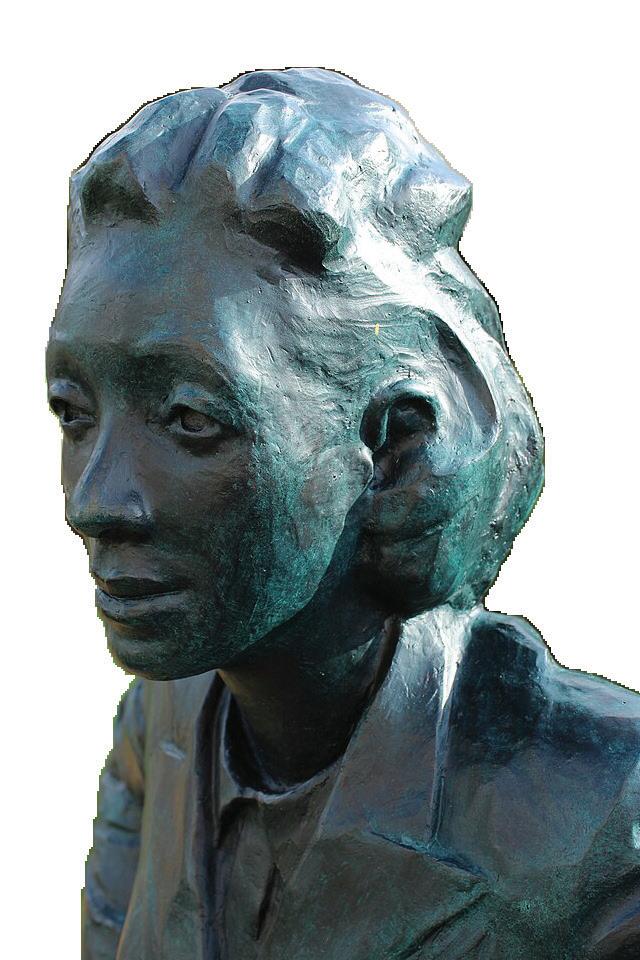
Kate Kennedy ~ TV Sub-Editor
Cha 1107-7626 is merely one of the hundreds of existing rogue planets, but something sure makes it stand out.
Anew rogue planet has been discovered - rogue planet meaning any planet that is free-floating and not bound to a star. The planet is called Cha 1107-7626 and is one of hundreds of rogue planets that have been discovered in recent years.
“Astronomers noticed that it was gathering 8 times more gas than it has done in earlier months”

by the gradual accumulation of matter and is the strongest accretion episode ever recorded for a planet! By August of this year, astronomers noticed that it was gathering 8 times more gas than it has done in earlier months. There is little known about the origin of rogue planets as they are a phenomenon that doesn’t exist in our solar system. However, astronomers have some theories on why they happen; the first being that the planets formed in a star’s orbit but were then hurled into the void, the second is that they form independently through the collection of a collapsed cloud of gas and dust – which could be the case for Cha 1107-7626 due to its components. this rogue planet is that astronomers have found signs of water vapour and a strong magnetic field guiding the planet’s mass which is very rarely seen in infant planets as it is more common in growing stars. How exciting it is to see that our galaxy contains so many phenomena and how lucky we are that we get to know and learn about it in real time!

Megan Grimston - Sport Sub-Editor
One of our SubEditors discusses the Tyneside usage of the word 'my'.
When Tyneside speakers say 'my', it doesn't always sound the same, and those differing pronunciations create a map of patterns about socioeconomics, gender, and other contexts.
Linguistic research has forever analysed these variations in an attempt to understand how social and linguistic factors interact in everyday speech. Due to this, it only seemed reasonable to focus on highlighting one academic article, though it is important to be mindful that linguistics is a forever evolving field, with inspiration constantly being taken from one another. Specifically, article highlights the 2013 research of Claire Childs.
Childs' research investigates how speakers of Tyneside English pronounce the first-person possessive 'my' (as in 'my car' or 'my mum'). Across Northern English dialects, 'my' is represented in at least four distinct ways: [mai] (as in my car), a shortened version [ma] (sounding like 'mah'), [mi] which can be represented as me (as in me phone), and [mə] (a reduced form, pronounced like the first sound in about). Specific to Tyneside English, questions have been asked about if the patterns in other areas of the North occur in speakers of the Tyneside variants too.
Using the Newcastle Electronic Corpus of Tyneside English 2 (NECTE2), Childs examined 480 examples of the variable were taken from interviews with different local speakers, evenly balanced for age, gender, and social class. The results showed that social identity played a major role in shaping the pronunciation of the variable. Women preferred the variant [ma], while men favoured the reduced ]. Both genders used the full [mai] to a similar extent. Middle-class speakers were more likely to produce [mai] and [ma], whereas working-class speakers preferred [mi]




and [mə]. Older speakers used the standard [mai] more frequently than younger ones, suggesting an ongoing shift towards reduction among the younger generation. In other words, the way people say 'my' deduces information about both their social background and their linguistic environment.
Context mattered as well. The variants [mai] and [ma] were almost always used when the word was stressed, particularly in stressed situations such as "oh my god", or when speakers sought to maintain control of a conversational turn. The stressed forms were often lengthened to signal emotion or hesitation. In contrast, the reduced variants ([mi] and [mə]) appeared almost exclusively in rapid speech. Such patterns demonstrate that the different versions form part of a systematic rhythm in spoken English, helping speakers manage timing, attention, and fluency.
The type of noun following 'my' also affected pronunciation. When the word introduced inalienable nouns (body parts and kinship terms e.g. my hand or my mother) speakers overwhelmingly used the reduced forms. When preceding alienable nouns (e.g. my car or my house), the standard variant [mai] appeared more often. This reflects a long-

Gina Tindale - Academic Officer
Feeling stressed with deadlines coming up?
Our academic officer has delved into the science behind it.
We all know that being a student is a particularly stressful period of life. For the average student, not only are they balancing the stress of exams and deadlines, but also the additional pressure of living independently for the first time and learning how to navigate adult life. Stress is defined as “Mental or emotional strain placed on or experienced by a person as a result of adverse or demanding circumstances, especially the pressures of or problems in one’s life; a state of feeling tense, anxious, or mentally and emotionally exhausted arising from this.”


(OED) Though we often have a negative perception of the term stress, it is important to note that stress serves a

biological purpose, and is always a bad thing. Let’s look at what happens in the brain and body when experiencing stress.
Stress is a coordinated brainbody response, used by our bodies to help us to survive and adapt to challenges. In a modern world, this has changed from helping us escape predators to helping us prepare for a scary presentation. When our brain detects a situation as threatening, there are two kinds of responses that can be triggered: the fast response and the sustained response.



"There is first the fast response, Sympathetic Adreno Medullary system (SAM)"

There is first the fast response, Sympathetic Adreno Medullary system (SAM), which begins seconds after detection in the amygdala. The sympathetic nervous system is triggered,
observed linguistic concept in which possessions that are conceptually 'closer' (of higher importance) to the speaker are expressed more freely. The same pattern correlated with frequency: combinations like 'my mum' occur so often in everyday speech that they tend to shorten over time.
When reflected on together, these findings show that the reduction of 'my' is not random or careless but in fact governed by an intricate network of social, phonetic and semantic constraints. Speakers use different variants to mark identity, negotiate turn-taking, and express intimacy or emphasis, often unconsciously. For linguists, such variation illustrates how sound systems adapt to social meaning and communicative efficiency.

In Tyneside English, the pronunciation of 'my' encapsulates the complex relationship between language and society. A se, sometimes barely a vowel, can carry the trace of class, gender, emotion, and local identity; showing that in spoken language, even the smallest word is doing far more than it
causing adrenaline and noradrenaline to be released into the bloodstream. The heart rate increases, as does blood pressure, and our breathing rate increases. This can be helpful for students, temporarily increasing our focus and motivation.
responses can never turn off, and eventually even remain in a stress response even when in periods of rest. When cortisol stays elevated, the hippocampus, prefrontal cortex and amygdala all become impaired, leading to poor concentration, anxiety and exhaustion - the ultimate student nightmare when facing constant stress.

Carly Horne
Doctors at the Royal Stoke University Hospital have become the first in England to use virtual reality (VR) during complex spinal surgery - a breakthrough set to benefit approximately 600 patients a year awaiting similar surgeries.
The pioneering system, introduced by the University Hospitals of North Midlands NHS Trust, was used during surgery on 14-yearold Dylan, whose scoliosis, a severe curvature of the spine, had become so extreme it began compressing one of his lungs.
"I wasn't able to do cadets or after school club," Dylan told BBC Midlands. "It was pretty bad. I'd be in bed, in pain".
Mr Vinay Jasani, the surgeon who lead the operation, said that Dylan's case required urgent intervention, while acknowledging the challenges that come with traditional spinal surgery - where surgeons navigate around the spinal cord and surrounding organs, often with limited visibility.
The new VR headset system, funded by a donation from the Denise Coates Foundation, projects real-time scans directly into the surgeon’s field of vision, allowing them to see exactly what’s happening inside the body without looking away from the patient. "I don't need to look down at the patient and then up at a screen," he said. "It's all in front of you while you work.”
The Magic Leap goggles, which integrate with a surgical robot, cost around £850,000. While the technology doesn’t eliminate the risks of spinal surgery, including paralysis or even death, it dramatically improves accuracy, reduces complications, and could make minimally invasive procedures more common.

The second, sustained response is the Hypothalamic Pituitary Adrenal Axis (HPA), which happens minutes to hours after a stressor is detected. This reaction causes the hypothalamus to start a chain response which leads to the release of cortisol. In moderation, cortisol is an incredibly helpful chemical, helping to maintain blood sugar and energy supply and temporarily suppressing non-essential functions to conserve energy. Cortisol can even help with memory consolidation in the short term, helping students prepare for closed-book exams.
"Chronic academic stress means that our stress responses can never turn off"
However, prolonged cortisol exposure has a lot of negative effects. Chronic academic stress means that our stress
"By understanding how stress works, students can learn how to build healthy academic habits"

Though stress has its benefits, the negative consequences of prolonged stress emphasise exactly why it is so important for students to take care of themselves throughout their degree. Regular sleep, healthy eating, nonacademic socialising and hobbies are so important to maintain good brain health. By understanding how stress works, students can learn how to build healthy academic habits, and help themselves achieve more rather than harm themselves in the pursuit of more.


“His pain has eased, he's returned to normal activities, and ... he's now four inches taller”
Another young patient, Grace Watts, who underwent surgery using the same system, told The Sun she feels safer knowing “much can’t go wrong with stuff like this”. For Dylan, the difference has been lifechanging. His pain has eased, he’s returned to normal activities, and, as his stepdad proudly noted, he’s now four inches taller.
The Royal Stoke is the first NHS hospital to adopt the Magic Leap system, but wider rollout is expected. NHS England estimates that by 2035, robotic systems will be used in half a million operations each year.
Sir Jim Mackey, Chief Executive of NHS England, said robotic and VR-assisted surgery could be key to cutting waiting lists and improving outcomes nationwide, delivering faster recoveries, fewer complications, and shorter hospital stays.

Megan Grimston - Head of of Communications
I Digress talk all things feminism, music, and personal development on Newcastle Student Radio
Sometimes there are shows on NSR that stand out amongst the rest for its longevity, and I Digress is one of its brightest examples. Recently, I had the opportunity to sit down with the team behind the show as they go into their third year of being on air.
“An hour a week for three years is a long time…” they opened with. It’s true, however, just listening to I Digress would calm any fears about this being a concern to Amy and Charlotte, with each week providing a refreshing reminder of the quality of shows on NSR. When I asked them what it is that stops them from getting burnt out after three years, they concluded that ultimately it comes from a place of passion: “We have refined I Digress throughout the year, but it has always centred around something we are passionate about.” When you tune into the show, there is a feeling
of maturity and independence that you pick up on, differing from the once softer style from the previous years. Their response to this? “Ultimately, I Digress is a reflection of ourselves … our own personal growth…”
“I Digress is a reflection of ourselves..."

So what inspired Amy and Charlotte to make the switch and flip the show on its head? “Maturing into stronger, independent women in journalism” they began with, feeling that the current political climate “in which women are still facing the misogyny that inspired the initial movement” was something they wanted to tackle on their platform. Specifically, they aim to ‘spotlight music’s most powerful women’. They shared with me that in a 2022 Musicians’ Union survey, more than 65% of respondents had experienced misogyny in the industry, and that “it is important more than ever to shed a light on the women who continue to inspire us everyday.” They shared that they have local industry females lined up for interviews. With this change, they had to rebrand on social media, opting for what can be described as referencing the ‘Riot Grrrl movement’ in their visual aesthetics. The impact, maturity and frustration at the music industry is palpable through too, with it being “another way which we try to communicate Digress’ mission.” It’s also
clear reflection of their personal growth, with them designing the entire logo in Photoshop, as they continue to develop their skills as journalists. As well as growing the show across three years, hosting a show has also impacted them both outside the studio. “...the biggest impact has to be the memories,” they explained, pairing it with a story of their friendship. Amy and Charlotte went from meeting the day before First Year, to hosting the first episode of I Digress just weeks later. The pair have not only developed as people, independent women, and journalists but as friends too.
“Amy and Charlotte met a day before First Year, and hosted their first episode just weeks later."

I Digress is one of NSR’s longest running shows, but it’s so much more than that too. Tuning into I Digress is tuning into just one step in the road to sharing the world of female musicians. It’s one step in developing into powerful journalists, but powerful women too.
Megan Grimston - Head of of Communications
Every year NUTV produces and broadcasts for Fight Night. This is what it looks like for Student Media.
Fight Night is one of Newcastle’s biggest external student events. Hosted at the Venue on campus across two nights, the event is produced and broadcasted by NUTV. Station Manager, Grace, described getting involved in live events like Fight Night as “feeling like you’re part of something exciting”. This isn’t the first time that NUTV has been in the centre of Fight Night’s Newcastle versus Northumbria, in fact, I had the opportunity to sit down with one of last year's presenters and this year’s Student Media Officer while they shared all the things getting involved had to offer. Callum explained that while being in front
of the camera’s “you get to watch the fights from backstage”, seeing how each fight unfolds differently.
“Grace added, the 'adrenaline rush is unparalleled'"
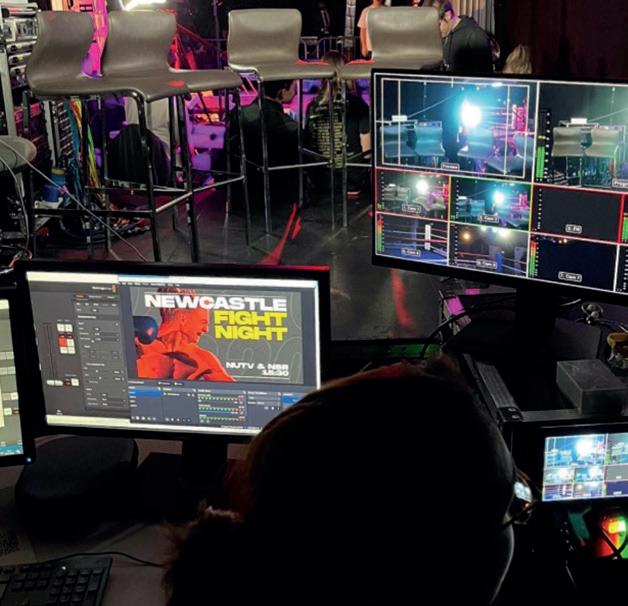

Grace added, the “adrenaline rush is unparalleled". Callum told me that during the event, he was joined by two other volunteers at the side of the ring “which is a great reassurance to reduce any nerves”. Between each of the rounds, he explained, “the cameras will cut back to the presenters, who will provide insight and comments about what has just happened.” Ultimately, the role of a presenter is to “narrate the pace of the night for those watching virtually.” Presenting isn’t the only role that puts you in front of the camera though. Commentating introduces another group of roles available, with commentators talking through every fight as it goes on.
“...the team makes it so enjoyable for everyone."
In front of the camera isn’t home for everyone, but for people who still want to get involved in productions behind the scenes, the 25/26 Student Media Officer, Libby, sat down with me to talk about camera work for NUTV. “If we aren’t capturing the action for the audience, the audience loses all sense” she opened. Operating the cameras is a huge responsibility, but “the team makes it so enjoyable”
While the winter months encroach on campus, the opportunities available are around to keep people warm. From micro-volunteering to bigger opportunities, theres something for everyone during the colder times.
N.E.S.T Fundraiser 1st December, Stretch Tent
12 Days of Volunteering 1st-12th December
Festive Arts and Crafts See nusu.co.uk/events for more
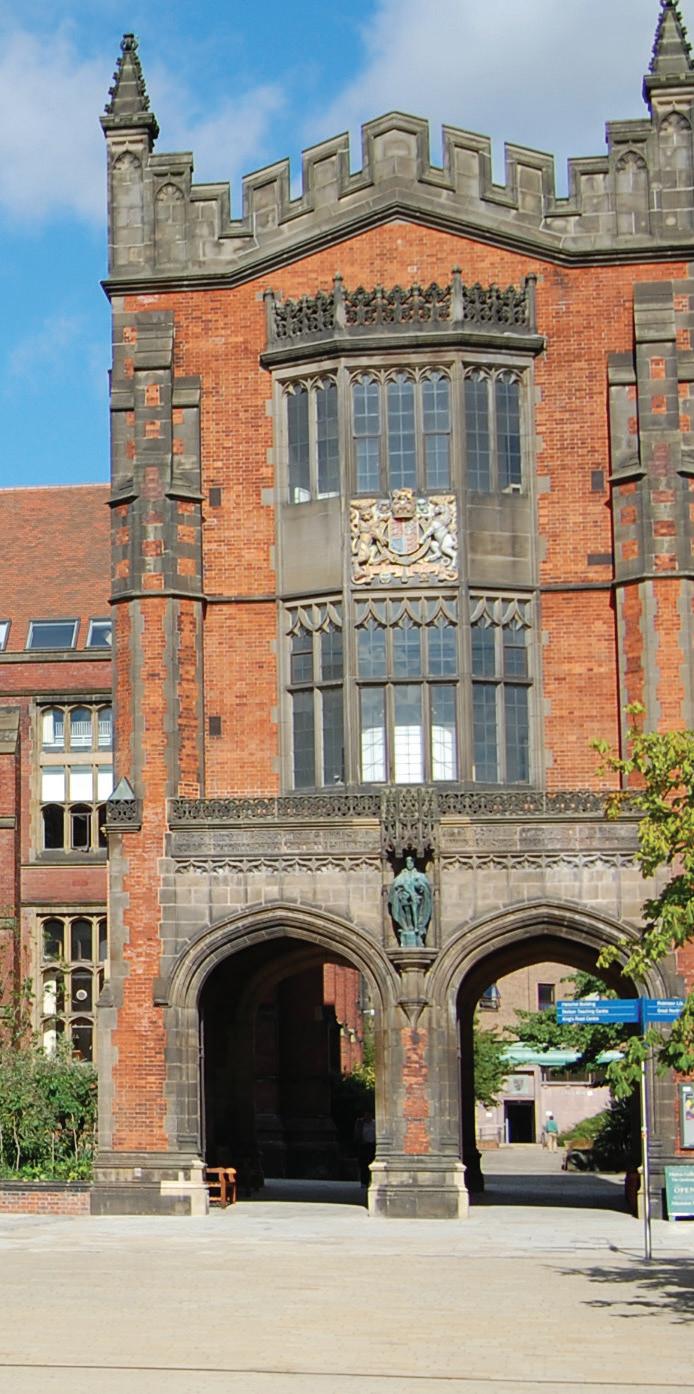
for everyone involved. While it can be quite a fast paced opportunity, it has been described by multiple people as “super rewarding”. The technical aspect can be quite daunting to some people, but Station Manager Grace and Student Media Officer
Libby have expressed that learning how to move and angle the cameras is “so much fun”. “A lot of people think operating the cameras is more of a side line job” Libby closed with, “but there is still so much action… and such a thrill.”
“...there is still so much action.. and such a thrill."
Fight Night is not NUTV’s only production, but the many roles within NUTV often pop up at every production they broadcast. From student elections, to one off events, NUTV opens up a brand new world of skills for people that last a lifetime. For anyone involved, the team concluded that “Seeing everything come together at the end”, Grace said, “is a worthwhile opportunity to get involved with.”
Theremaining space in the ‘On Campus’ column provides a chance for you to advertise your own events to the wider student population.
What can be advertised:
• One off events that are open to the entire student community.
• Concerts/performances/shows
• Fundraising events
• Guest lectures
What cannot be advertised:
• Taster events, (these should be advertised through Give it a Go)
• Club/Society Balls
• Externally organised events (e.g. Fight Night, Student Races)




Edited by: Charley Dobson
AJanuary 20th - February 18th
quarius, this month is all about community so expect to feel unusually sociable. To make the most of this shift, why not put yourself out there? Offer to host a friend for dinner, crash a pub crawl, it’s an important time to



Pemini, independence isn’t necessarily your strongest area this month. Your quest is to plan a group study date, let others help you when you need it. There’s no shame in upkeeping your own little

isces, your career and goals are in focus this month, but you won’t get any recognition without asking. Your homework, as dull as it may seem, is to take those next steps. Practice interview questions for your dream job in the mirror, work on that firm handshake.
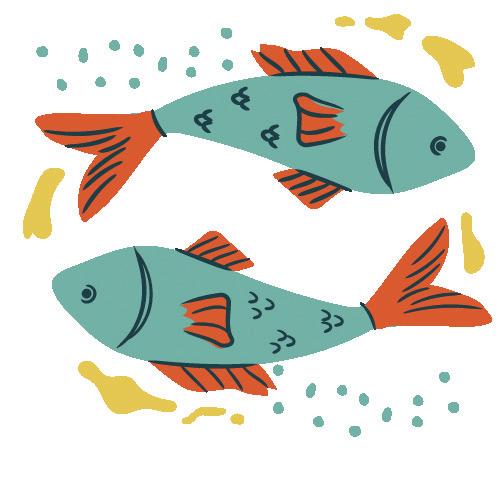
Aries, this month your cycle will encourage you to stray from the norm, take some risks and seek out new experiences. Your homework is to try something new just for you- a romantic dinner for one or wander around town with no direction, see what you might find.
Taurus, this month expect some intimacy. It might be deepening a connection with that someone special or even just yourself. Your assignment to make the most of this is to step back from your hectic schedule and have an evening really getting to know your partner or yourself even better.


ancer, about ready for some you time? This month you should prioritise your wellbeing. Why not choose a quiet weeknight for some serious pampering and relaxing. It’s okay to take it easy every now and then.
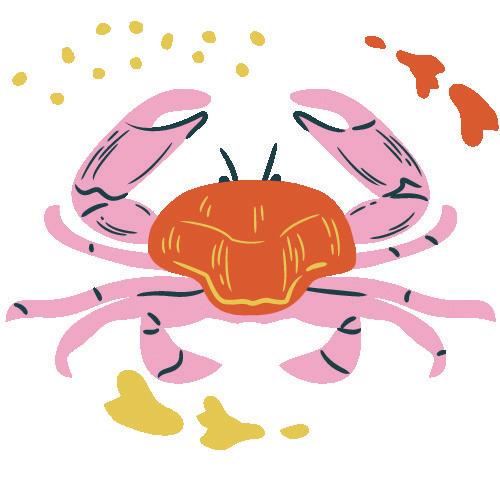

ibra, you might’ve been feeling busy and under pressure but it’s time to give back to those who have been there for you. Leave a thankyou note to a good friend, cook an extra breakfast for the flatmate who’s always there for you. Gratitude goes a long way.

Scorpio, you might be looking for comfort in your possessions. Why not set some time aside to sort through those trinkets before you collect even more- nothing wrong with a little retail therapy but maybe take it easy on the old pocketbook for a






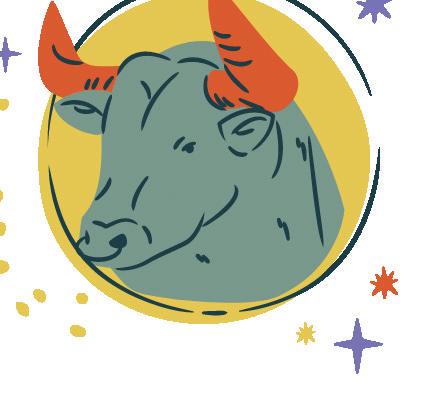
Leo, it’s looking like you’re about ready to express what’s inside. Some homework this month is to flex that creative muscle. Redecorate your room, trial a new recipe, sing extra loud at predrinks, anything to let loose.


Virgo, this month is all about heritage and security for you. Feeling extra nostalgic these days? Make sure to stay in touch with your roots: start a scrapbook, phone an old friend- don't forget where you came from.


Sagittarius, you might be feeling a longing for some alone time these days. Maybe those group projects are getting you down or seminars are feeling like a chore. This month just remember that it’s not selfish to prioritise yourself for a little while.

Capricorn, so many projects are fighting for your attention at the moment so your usual routine might feel a little strained. Your homework is to switch it up- if you usually study at home, head to the library, if you usually stay up late- go to bed early and have that time back the next morning. Just try a new routine on for size, it


Jess Mooney - Head of Current Affairs
Everyone says your university years are the best of your life. Between the endless deadlines, refillable Spoons coffee, and the constant need to do a food shop, it doesn’t always feel that way, but that’s part of what makes it so special. When graduation comes around and real life begins, I don’t think it’ll be the Christmas balls, or noteworthy adventures I miss most, but the small, everyday moments from studying beside friends, walking home in the rain after a night out, or living with my favourite girls in the world.
"Before dissertation deadlines and graduation gowns take over, here's my final year bucket list."
As I step into my final year in Newcastle, I can’t help but feel drawn to the experiences that define student life here, the little rites of passage that make this city, and this chapter, feel uniquely ours. Before dissertation deadlines and graduation gowns take over, here’s my final year bucket list.
A Sunrise Dip at Tynemouth
The idea of willingly plunging into the freezing North Sea at dawn doesn’t exactly appeal. But there’s something about the ritual, the collective shivering, the laughter, the shared “why are we doing this?”, that feels too iconic to skip. It’s the kind of thing I’ll hate in the moment and romanticise forever after.
A Gig at the SU Venue
It feels wrong to graduate without going to at least one Students’ Union gig. They’re chaotic, loud, and full of energy. Plus, the 20% staff discount doesn’t

tradition than the event itself.
There’s something oddly compelling about everyone dressing up, cheering on their friends, and pretending for one night that we’re far classier than we really are.
Metro Pub Golf Bar Crawl
Somehow, I’ve managed to miss every single one I’ve been invited to, but this year, that’s changing. I can already feel the hangover, and the disappointment of my team when they realise I can’t chug drinks, but it’s the perfect way to see the city, one pint (and one questionable outfit) at a time.
A Real All-Nighter in the Library
My current record is 3 am, which hardly counts. This year, I want to experience the full 7 p.m. to 7 a.m. shift: the delirium, the late-night snacks, and the sunrise over campus as I finally shut my laptop.
In the end, a bucket list isn’t really about ticking boxes, it’s about recognising how fleeting this time is. These final months in Newcastle aren’t about chasing perfection; they’re about soaking in every imperfect, beautiful, and freezing-cold moment before it all becomes a memory.
Ellexa
Alex Conroy-Gent
Love her or loathe her, is the '90s icon still haunting modern feminism?
Sex and the City is one of those shows that shifts culture. No matter who you are or what you watch, there will be a reference to the gospel that is Sex and the City. Out of the core cast of women, Carrie Bradshaw is the character who divides audiences. Some say she’s a relatable romantic who spends too much on shoes and cigarettes. Others think she’s a selfish socialite, hellbent on embarrassing herself in Mr Big’s apartment.
Either way, it’s undeniable that Carrie Bradshaw chases men. delivers sweeping speeches about needing the warmth of a man by her side and even gets called out on her malecentred attitude by Miranda, the more cynical of the friend group. But who hasn’t been there, analysing an old relationship while plotting a new one over lunch? I

couldn’t help but wonder: how much of our lives can we spend thinking about relationships before it becomes too much?
Decentering men has become a popular topic in the discourse wars online. The concept encourages women to start prioritising their careers, appearance, and happiness away from what patriarchal society expects of them.
The popular opinion online has become that women who centre men in their lives are conservative and, frankly, outdated. So, Carrie’s constant chase for male validation, through the modern-day lens, comes off as spineless and so last century.
“...there are a few episodes that reflect some ugly '90s attitudes”
Since the conversation around de-centring men has only become mainstream in the last couple of years, is this gut urge to shun Carrie simply a subconscious reflection of our own individual ideas from just a few years ago? After all, Carrie is from the 90s, and while Sex and the City was ahead of its time, there are a few episodes that reflect some ugly 90s attitudes. There is an argument to be made that her character is just a product of her environment, or is she a cautionary tale about the lengths malecentred women will go to over just some guy?
https://creativecommons.org/licenses/by-sa/4.0/ .
Bethan King
Are subjects in the humanities and arts more crucial now than ever?
AMickey Mouse degree is the name given to a supposed 'easy' degree, one that doesn't get you anywhere. It's usually attached to a creative or less career-focused degree, whereby your pathway isn't set straight out for you. But the truth is, these 'soft subjects' are a myth.
Some degrees may not be career-specific, but any degree is exemplary of your work ethic, commitment, and capability to think critically. Your specific subject area is just a matter of personal interest or choice. For example, English Literature may not be as specific as Law, but it most certainly still has its benefits. Apart from subject-specific knowledge, the majority of a degree is spent building your transferable skills, so you can
workplace.
In fact, this makes these supposed 'Mickey Mouse degrees' more beneficial. The more subject-specific your degree is, the more limited and streamlined your knowledge will be. Perfect if you know what career you want. But for the majority of people, having a more uni-dimensional degree gives them broader knowledge and time to develop those transferable skills you can apply to a variety of professional environments. You'll leave university as a flexible, adaptable and multidimensional asset to the working world.
"We all promote our online presence, whether we like it or not...
But taking your transferable skills from your degree and streamlining it into a career that rejects the corporate lifestyle is increasingly becoming just as valid an option. Now more than ever. The movement towards a more freelance, be-your-own-boss lifestyle seems more appropriate in the age of


Everybody is an influencer now. Whether they have 100 or 100k followers, we all promote our online presence, whether we like it or not. This has simultaneously normalised the idea of building a career from the phone. There are numerous low-grade influencers and entrepreneurs creating content and products, generating a solid income in the process. You may also reject the corporate lifestyle because of this,

regardless of your career path. Maintaining an online presence is a job in itself, and we are constantly in a heightened state of selfawareness. Day-to-day, we go to school, university, or work, and then curate our 'gym bro' or 'academic weapon' aesthetic on top of that. We are chronically online, wholly obsessed with how we are perceived, and constantly over-stimulating our brain-rotted brains. A 'Mickey Mouse degree' for enjoyment may be the answer for our burnt-out generation. Which ironically exists in a society that is already burnt out. Western contemporary culture certainly prioritises the 'hustle', or the 'grind', common expressions that convey our work-focused attitude. This is the exact reason people get shamed for choosing supposedly 'soft' subjects. Countries with better qualityof-life scores have a stronger work-life balance: with shorter working days and more holidays. By prioritising well-being, they're also more productive when they return to work. A Mouse degree' may be the perfect way to achieve this balance by doing what you love to prevent burnout. So, although some degrees are regarded as 'Mickey Mouse', they aren't truly useless. If you want to choose a degree purely out of enjoyment or to reject the corporate lifestyle, that's completely valid. You're better off spending three years doing something you're interested in and enjoying yourself than setting yourself up

Megan Grimston - Sport sub-editor
As the world we live in has developed, it's no cursed secret that language and emotions come together in a package deal. Therapy, ranting, word vomit, and rage diaries are emotional outlets (some I gravitate to more than others) that we’re all familiar with, and they all require a personal connection to language.
In definition, therapy is the process of treatment for mental conditions through verbal communication. Ergo, language and emotions are intertwined. After reflecting on the times I’ve done this, I identified that what troubles me most is dealing with time. An overwhelming feeling of not having enough time, of wasting whatever time I do have, or if people or things are worth my time. Struggling to deal with the emotional concept of time comes from language. Specifically, the English Language. This could be considered as ‘intellectualising my emotions’, but I enjoy the comfort of language and its impact on our existence as humans.
As far as the English Language is concerned, time is money. The deep emotional panics we all experience are over a tangible object that truly exists.

Our feeling of overwhelm during exam season, the anger or frustration we feel when a parcel is delayed or an event is rescheduled, is because we feel like it has literally “cost” us time, just based on the nature of the language's structure. ‘English-speaking culture’ is so arranged, scheduled, and managed that it has an effect on how we feel. It's common for people to bottle their emotions up, depending on how much time they have to let go, or their emotions are often based on the time we do or do not have. In fact, this linguistic phenomenon and emotional state are prominent in places with an ‘English-speaking culture’, meaning those places that are not England but have the same culture. Hawai'i has previously been regarded as the least stressful state; how and why? And what does language have to do with this?
Unlike English, the Hawaiian language is based on a different concept; time is treated as a fluid and flexible concept that relates more to the natural rhythm of the world than schedules. Commonly, in Hawaiian culture, time can be distinguished in two ways: haole and Hawaiian time. Haole time is that used by foreigners, referring to exact times: 7:00 pm haole means 7:00 pm exactly.However, the same thing referred to as Hawaiian time means whenever you get there, you get there, and it’s fine.
Thinking about human emotion and what really makes us feel, it seems that we would be much better off and a little more emotionally honest if the language we spoke better reflected time.
Books to make reading fun again when you hit a slump
Have you hit a reading slump? Don't worry, it's normal, and it happens to everyone...
You might be here because you've read a book that you can't really advance on, because you already have so much to read for your course that you have no energy left for reading, because you've forgotten about reading during this busy assignment period or because of any other reason. Whatever the reason is, it's okay.
If you are in a reading slump, leave the classics. Yes, we all have some classics in our racks waiting to be read, but this is not the time. What you need now is an easy, simple, entertaining book that will take your mind off everything else. This might be a book that you've never read before or that one book that you would re-read over and over again.
Remember that book that made you love reading, that story that captured you, those 400 pages that you finished in a day? That is exactly what you need right now. If it helps, mine was Binding 13.
As university students, we often read dense, demanding texts, so it's understandable if we sometimes lose the joy of reading for fun. So, if you use up your time to read other complicated books, you might never want to read again. You already have
so much on your plate!
If you are already reading a simple book that you thought would be the most entertaining, leave it, take a break, and pick up another book. Maybe you need a change of pace, or maybe you just need a change of genre. You could try reading something completely different. If you are reading romance, move to thriller, maybe adrenaline is what you need! Normally, I am a big fan of romance books, and I loved One True Loves from Taylor Jenkins, Everything I Know About Love from Dolly Alderton, and so many more! But every once in a while, I need a change and reading some thrillers, such as The Housemaid books by Freida McFadden, really helps me when in a reading slump.

“...learning from books is a beautiful thing...”
Yes, reading can teach us so much, and learning from books is a beautiful thing, but remember, it is also made to help us escape reality, to immerse ourselves in different worlds. It is supposed to be a safe place, somewhere you love to be. So, this month, pick up a new book, one whose first line has already captured your attention, go to your favourite café, park, or lie in bed. Go wherever you feel most comfortable and allow yourself to relax during this stressful period.
Maybe you could even read a book alongside one of your friends. You could start it together and meet up to read and share your thoughts. This would be a great way to make this reading experience more engaging.
So, if you've hit a reading slump, don't worry, I am sure the love of reading is still there, ready to trap you again.
October ‘canon event’: recovering from the horrors of the spooky month
Ella Hewitt
The transition from summer to autumn is a spooky one - we lose daylight, warm weather, and academic liberation, thus to be replaced with darkness, coldness and a few too many midterms.

Autumn stands for change, and as the leaves lose their brightness, so do we. October tends to feel different for everybody; we shift, we lose parts of ourselves or gain events we wish did not happen.
This even now has a name for it, the October Canon Event.
The scary colloquialism refers to the time of the year when something changes you. Normally, this is something for which we are not prepared. It has almost become a universal phenomenon that one way or another, we all collectively go through it. Whether it is a breakup, selfdiscovery, financial strain or emotional fatigue, October has a particular power of guiding us through this pain.
The spooky month is all too haunting, the lack of light at 4 pm to the pressure of having a perfect Halloween, October gets a little too real. Ways in which to recover from the emotional turmoil
that is loneliness are to channel the pain into other outlets, one may journaling, creating something beautiful with your heart. Avoid the need to rush into the next downloading of Hinge!
“Try creating new routines, ones that prioritise rest...”
Why not try changing the ways in which you love yourself and go on solo dates or even dye your hair! Rebuild self-love, to fight through the treachery we call winter.
For others, the canon event is falling into unhealthy habits, resulting in emptiness, detachment, and a sense of no direction. Just because the days lose their light does not mean you need to. Try creating new routines, ones that prioritise rest, and yes, that means 8+ hours of sleep. Even activities that require slower movement will give you the opportunity to slow down, not just physically: Try yoga, a walk around Jesmond Dene or cooking soup.
It is imperative that you recognise the effects of the seasonal transition and understand what you enjoyed and which people you will not be speaking to again.
October may have presented as the evil and spooky backstory in your life, but November is the time for the character redemption arc and to take control again.

Lose yourself in the timeless art of Mandala and its relaxing remedies...
Everyone has a hobby. Hobbies make life more fun and interesting. My favourite hobby is mandala art, and I have been practicing it for the last 12 years. Mandala art is a type of drawing that uses beautiful patterns and shapes in circles. I started doing it when I was very young, and since then, it has become a very important part of my life. I enjoy sitting quietly with my pens, pencils, and colours, creating designs step by step. Mandala art not only makes me happy but also helps me stay calm and focused.
“...I
am following a beautiful art form that has been appreciated for thousands of years.”
Mandala art is not just a modern hobby; it has a long history. Mandalas have been used for thousands of years in India, Tibet, and other parts of Asia as a way to focus the mind during meditation and prayer. They were often drawn or painted with intricate patterns to represent the universe and the balance of life. Many people today use mandalas to relax, reduce stress, and express creativity, just like I do. Even though my mandalas are for fun and personal enjoyment, I feel connected to this long tradition. Knowing the history makes creating mandalas even more special because I am following a beautiful art form that has been appreciated for thousands of years.
One of the best things about mandala art is that it allows me to express my feelings and imagination. The colours always correspond to my momentary emotions. When I am happy or
“Even though my mandalas are for fun, I feel connected to this long tradition...”
excited, I use bright colours like red, yellow and orange. When I am calm, thoughtful or sad, I choose soft colours like blue and green. Each mandala I create is different, and sometimes I spend hours perfecting every small pattern. Seeing my creativity come to life is an amazing and satisfying feeling. Mandala art also teaches me patience and focus. Drawing tiny, detailed patterns requires careful attention, and over the years, it has made me more careful and precise in other activities too. Sometimes my friends and family watch me while I draw, and they are amazed at my designs. Sharing my art with them gives me happiness and encouragement to keep going.
This personal 12-year ritual is truly my little world of joy, and I hope to continue this hobby


Martha Nugent
Why Movember is a time to talk about mental health and support the men around you...
It's that time of year again where a surplus of men's upper lips becomes a little bit fuzzier. Sights of growing Mustaches have come to represent something far more profound - a symbol of unity fighting against the ever so prevalent issue: mens mental health.
"A simple act of growing a moustache becomes a conversation without words..."
Under the surface of this heartwarming challenge lies the deeply worrying crisis we face. Roughly 4,500 men in England and Wales lose their lives each year to suicide. By the end of today, another 14 men will have taken their lives. This horrifying statistic reveals suicide as the biggest killer of men under 50, yet the least talked about, clouded in stigma and outdated ideas of what it means to be a 'man' today - ideas of 'strength' and 'toughness' ever-prevailing. Movember, however, seems to be
a crucial reminder that 'strength' can no longer be found in this silence, but in speaking out. Statistics reveal shocking imbalances in suicide rates and those who seek help. Whilst 78% of suicide deaths are male, only 38% of NHS “talking therapy” referrals are men. This imbalance isn't logical and calculated - its cultural. A generation of 'strong, silent types' are embedded deep into the norms of our society. This shame consequently hangs over men who access support, leading to the confusion of silence for resilience, and stoicism for strength.
"...strength can no longer be found in this silence, but in speaking out..."
This is where Movember steps in - as not only a light-hearted campaign or an excuse for experimental facial hair, but as a conversation for young men to be seen, heard, and finally get asked the question “are you okay?”.

A simple act of growing a moustache becomes a conversation without words; a form of silent acknowledgement that mental health support should never not be sought. Raising funds for vital issues in mental health support and suicide prevention clearly remains a significant part of Movember, but perhaps its greatest achievement is its emotional toll. Each conversation stared and story shared reminds men that they aren't alone in this, and that speaking out against social stigma is in fact 'strong' and should be 'masculine'.
Reading week: do we need a break from university life?
What to do as an international student during reading week...
Moving to the UK for my studies felt like an adventure, but honestly, university life here hit me harder than I expected. Lectures, endless assignments, deadlines stacking up — it gets overwhelming fast. Pretty soon, I realised I had to step back and give myself a breather now and then. Even a quick trip somewhere new, just for a day, helped me reset. It’s not just about having fun, it pulls you out of the academic bubble and reminds you there’s more to life than lecture halls and libraries.
"Sometimes, the only way to handle stress is to step away from it for a while."
Traveling while you’re at university opens up a whole other side of things. You meet people you’d never cross paths with otherwise. A chat with a shopkeeper, a stranger on the train, or another student from halfway across the world — it teaches you things no class ever could. These moments stretch your perspective and make you see the world with wider eyes. Trips with friends turn into stories you’ll laugh about for years: getting lost in some unfamiliar city, trying food you can’t pronounce,
Jemima Ashton-Roberts
New to Newcastle? Here's how our students have navigated the city with the help of locals!
Moving here, I quickly learned that Newcastle’s warmth isn’t just a rumour — it’s real.
When you first move into a new city as a student, you expect endless lines, idiotic buses, and the occasional lost tourist encounter. What you don't expect is how friendly the locals are — and in Newcastle, such hospitality is no legend. Take my friend Joe, for example. He's a local to the core, familiar with all the shortcuts, all the snug cafés, and all the injokes that depend on having lived here your whole life. Being with him makes wandering the city a chance discovery instead of a planning exercise. From recommending the best-kept coffee spots to relentlessly teasing me with my "Jesmond" pronunciation, Joe has provided a flavour of how friendly Newcastle residents are — and fantastic companions.
It's not just Joe. Newcastle is famous for combining city vibrancy with small-town hospitality. Some of the reasons locals make it so easy to bond with them are: In Newcastle, there is a strong community feeling. Neighbourhoods are tight-knit, and students generally get involved in local celebrations, markets, and festivals. Newcastle is also such a student-friendly city. Because there are so many universities here, locals are used to welcoming newcomers. With shared spaces such as cafes, pubs, libraries, and parks are all natural meeting spots.
information. Hidden cafes, hidden rooftops, and alternative weekend activities have a way of emerging through locals alone. It's also taught me cultural sensitivity, catching nuances, etiquette, and the city's history. Practical help: Bus tips, good value shopping, or study space can smooth student life.
It isn't a one-way road. Students give back! With New energy, curiosity, fresh perspectives and stories. Students also bring a cultural exchange with methods, cuisine, and ideas from worldwide. Students make communities interesting and active, bringing vibrancy to communities.
Chat in cafés, libraries, or local markets — don't be shy! Attend local events, fairs, or workshops. Join sports clubs, volunteering projects, or community meet-ups. Newcastle's welcoming nature makes it easy to feel at home. Friendly locals, a welcoming culture, and community spaces make it easy to make connections — and typically faster than you imagine.
From a local taking you to the best street food, giggling with a joke at the bus stop, to cheering as one at a football game, Newcastle demonstrates that students and locals aren't just cohabitating — they're cohabitating well. And if you're among the fortunate ones, like I was, you may get a pal like Joe — someone who makes the city
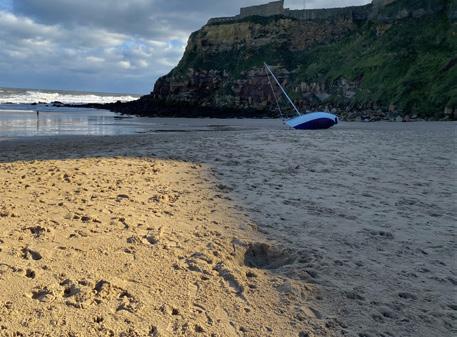
Being pals with locals isn't just hip, it transforms your city experience! I like to call it insider

snapping goofy photos. And when you travel alone, you grow in different ways. You figure out how to get around, watch your spending, and fix problems by yourself. It’s tough at first, but it beats homesickness and reminds you the world’s bigger and kinder than you thought.
"I realised I had to step back and give myself a breather now and then."
But at the end of the day, just getting away for a bit lets you breathe. A short weekend trip to a quiet village or a walk in nature clears your head like nothing else. When you come back, your mind feels lighter. Studying doesn’t seem so tough. You’re sharper, more motivated. Sometimes, the only way to handle stress is to step away from it for a while. Traveling during uni isn’t just about having a good time. It actually keeps you sane,

Feeling
burned out? Here's some ideas to inject some balance into your life!
With the beginning of shorter days, and the weather turning freezing, it’s extremely important to maintain a healthy work-life balance. It seems impossible with so much uni work to do, but giving yourself a social outlet is essential to prevent burning out before finals, and allowing yourself a break from all that studying will help significantly!
One thing that has helped me through assessment periods is finding a good place to study. I prefer cafes over the library, as they lessen the intensity of your study session, whilst still allowing you to get a lot of work done. Places such as ‘Social Bird’ on Fenkle Street and ‘Flower Café’ on Grainger Street are perfect study spots where you can get some work done with a coffee, away from the stresses of the library.
" A social outlet is key.."
However, it is important not to let assignments consume you, especially during the upcoming period of seasonal depression, which can make people feel extra stressed. A social outlet is key, whether that’s a Sunday pub quiz on Osborne Road or attending a social night during the week for a
society you’ve joined. Although we have passed the middle of the semester, all societies are still open to join, and taking your friends to a social or going alone and meeting like-minded people is a fun experience!
"...there are many creative opportunities to help manage stress."
Keeping in touch with your creative side is also an easy way to maintain a good work-life balance. From arranging a paint and sip night with your friends, to visiting an art gallery in town, there are many creative opportunities available to help manage the stresses of the week. The Baltic on Quayside has four floors of uniquely amazing exhibitions, one of my favourites being ‘Saelia Aparicio: A Joyful Parasite’, which explores the interconnection between bodies, environments and systems of care through lights, sculptures and shadows. This exhibition is on until the 8th March 2026 and is completely free to enter, so I’d definitely recommend going! Music is another way to escape from uni work. With performances taking place in the evening, it gives you something exciting to look forward to after a day of productivity. ‘The Black Swan’ in the basement of the Newcastle Art Centre has free Jazz performances on the 1st, 2nd and 3rd Tuesday of the month. You can arrive anytime from 7pm to 10:30pm for a night of music and drinks, and hear live singing with an alternative mix of

Blind Date & Agony Aunt Co-Ordinator:












What were your first impressions of your date?





Did you have anything in common?
We didn't really have anything in common but he was very chatty and seemed really nice.
How did you find Mr Mulligans, was it a good date spot? We ended up just having a couple drinks and playing pool and darts. the venue had a nice relaxed vibe which was perfect for getting to know someone in!
Do you think you will see each other again? No I don't think we'll see each other again but he was very nice.


My first impressions were that my date was lovely: very kind, chatty, pretty and a great personality; we had a few things in common.
How did you find Mr Mulligans, was it a good date spot?
We didn't end up playing crazy golf, instead opting for pool and darts, which was very enjoyable.It was a great informal way to meet my date.
Do you think you will see each other again?
We haven't kept in contact; I don't think that will happen.

Harry, 19, Literature with creative writing
Charley Dobson - Blind Date and Agony Aunt Coordinator
For your troubles big or small, Agony Aunt is here to solve them all...
Dear Agony Aunt, I’m finding it difficult to speak up for myself, I'm being scheduled too much at work and it’s cutting into time for group projects, what do I do?
From, A Reader

Need your dilemma solved? Scan the QR code to send your worries away! Agony Aunt will help in the next issue...
Dear Reader, A good work/life balance is key for our wellbeing but being a student can often complicate this when part-times jobs and course content outweigh the down-time available. Putting your own needs first is essential but, especially when the fear of losing a job comes into play, it can be daunting. It’s a tale as old as time when employers schedule us for more hours than agreed upon, they seem to get more comfortable ignoring availability the longer you’ve worked there, don't they? Sometimes it can feel as though there is a power imbalance, like they have all the control because they have a badge inscribed with manager whilst students are left feeling intimidated amidst the competitive hiring pool and thus, reluctant to speak up for their needs. I think there is no better way to go about it than to be frank, the worry surrounding telling them ‘No’ upfront might seem like a lot but it’s nothing compared to the stress that could build by trying to fit extra shifts around university content and study groups. It might be beneficial to speak with those in your group project too: ask if they have other times they could meet or make sure

the project workload is spread evenly to avoid any extra strain on your time. As difficult as it seems, ripping the band aid off is the only sure way to see some action, be polite yet firm and if they are any decent boss at all, they will understand, you’re only human and no means no. Should it not go that smoothly, don’t be too shy to remind them of contracted hours or the availability discussed in your interview. At the end of the day, their job is to make sure that you can do your job well- if you’re not having enough time for university and to relax then your performance on shift could end up suffering. Above all though, be sure to maintain your well-being, remember that you-time is not selfish, it’s in fact necessary to excel in other areas. Go forth and be brave, you’ve got this!


Georgie Sakkalli
A writer shares their favourite 'fits spotted at university...
From stripy linens to leather jackets, I love seeing all the different styles campus has to offer. With almost 30,000 students walking through the famous arches each day, there’s always a unique outfit to be seen.
Having had such glorious weather since September, it was lovely to see the final sprinkling of summer ‘fits, my favourites being the classic denim mini skirt and sweater combo (bonus points for some knee high boots), or a Motel Rocks ‘Extra Roomy’ pair of jeans paired with a flowy, white linen top. However, as the weather gets colder, I’m starting to see more and more cosy autumn pieces creeping into campus and, although I love summer, I’m excited to see the start of a new season of outfits.
“... a simple knitted sweater is another one of my favourite additions to an autumnal outfit.”
Early morning lectures call for cosy ‘fits, and my favourite piece to see as we come into the winter months is a pair of Ultra Mini Ugg boots. Perfect for any type of
trouser, they keep comfy looking cool, keep toes feeling toasty and come in at least 10 colours to match everyone’s vibe. Second to this, a simple knitted sweater is another one of my favourite additions to an autumnal outfit. With a crew neckline, they can be dressed up with layered necklaces and go with almost every type of trouser possible. Affordable options for these include H&M, coming in at £19 pounds and available in 13 different colours, these make the perfect addition to an early morning look. However, an effort filled outfit always catches my eye around campus, and when someone knows what they’re doing, it really shows. An example of this that I’m loving at the moment is a layered look, pairing jeans with a hoodie, large coat, cap or beanie, completed with a unique pair of trainers. An idea of this that I saw recently was a dark wash a pair of baggy jeans (such as the Motel Rocks pair mentioned earlier), paired with the navy and yellow ‘with love’ Scuffers hoodie, a navy ‘Stussy’ cap, and an oversized dark wash denim jacket (I know, double denim! How scandalous). But the piece de resistance was a pair of the Onitsuka Tiger Mexico 66s in Yellow and black, which tied the yellow script of the hoodie with the dark denim features of the outfit together perfectly, catching my eye and making its mark as my favourite ‘fit on campus so far.
How can you expand your going out wardrobe?
Is the rotation of jeans and a nice top beginning to feel uninspiring and lacklustre when looking into your wardrobe?
everyday-casual look. To note, the use of a belt is brilliant for contributing to structure or the option to leave it loose portrays a brilliant fluid look.
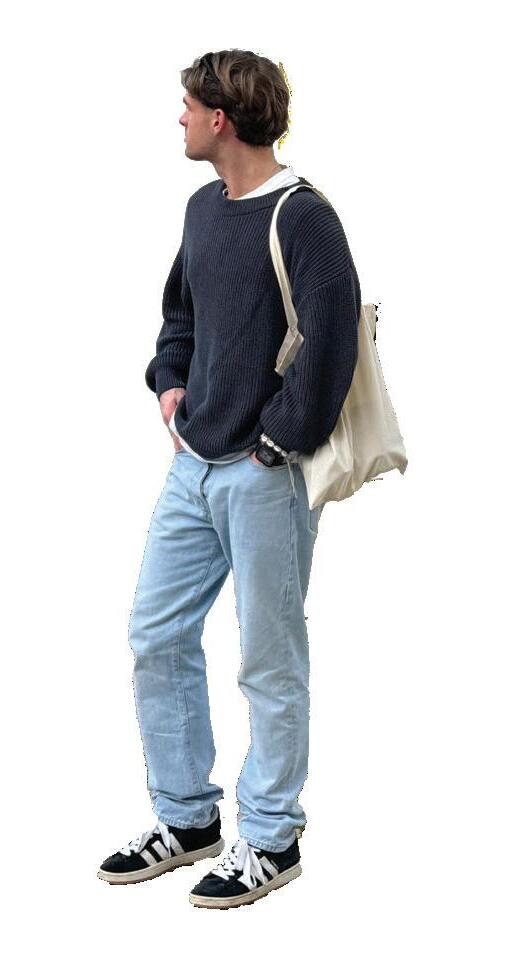
I’m really looking forward to seeing what outfits everyone has to offer in the coming term, and as we move towards winter, I’ll be on the look out for some more comfy but cool looks.
Image source: Tim Hasse, Dupe
T he ‘jeans and a nice top’ is a timeless combination that incorporates the foundation of your wardrobe and therefore it is always the easy grab option when going out for girls’ night, the pub, or a date. However, when the go-to pairing has been repeated so many times it can feel flat and too casual. On the contrary, these styling tips and tricks will have you transforming the foundations of your wardrobe into something playful, fresh, and exciting.

Let us begin with the top, the mandatory requirement to the combination and get rid of it. Replace the top and try a dress, indeed over the jeans. By layering a dress, preferably a mini or slip dress it adds an effortless take on dimensions and further illustrates the perfect high to low contrast. Favourably, dresses work best with all fittings of jeans from a slim fit to a low waist baggy fit. The opportunity with textures to experiment with is endless, a lace or satin dress can used for a nighttime event whereas a cotton dress is great for an
Moving downwards to the jeans, suggestibly I would argue adding a skirt over jeans demonstrates an unexpected edge and layer to the outfit. This combination allows the opportunity to mess around with skirt lengths, for example the use of a shorter hemline breaks apart the outfit with an exciting middle part whereas longer length skirts create a chic, column effect. Notably, be aware of proportions, this entails a fitted shirt or a top that is tucked in. Accessories make or break an outfit therefore use them to transform your jeans and tops. Why not consider a floral rosette to your shoulder or waist for a soft touch. To add an eclectic and chic aesthetic, try mixing metals thus adding a depth and visual texture to your outfit. It is noteworthy that shoes can shift the mood of the outfit; For a cool girl elevation try ballet flats or loafers. Or why not try swapping trainers for a kitten heel for the 90’s effortless look.
The elevation of jeans and a nice top is not about what you can replace it is about how to reinvent what you already have. By accessing new layers and re-imagined creative choices your everyday pieces become a statement.
Leeds with fashion-related degrees, they [Elise & Anya] came back up to the North-East to start MALARKEY.
Last week I had the privilege of interviewing Elise at MALARKEY, where we discussed the new opening of their store, geographical privilege and what fashion means
It was when in Leeds that they both worked in and around different vintage and second-hand stores, allowing them to think about the vintage scene in the North East. With an immense load of consideration and hesitation, they both quit their jobs and came back to Newcastle in September 2024.

By January of this year, MALARKEY was operating online and as of March they were trading at markets and pop-up events. Additionally, in April their first store was stocked and the second closely followed in June. In September, they hosted their very first solo event which was followed by the collection of their keys to their
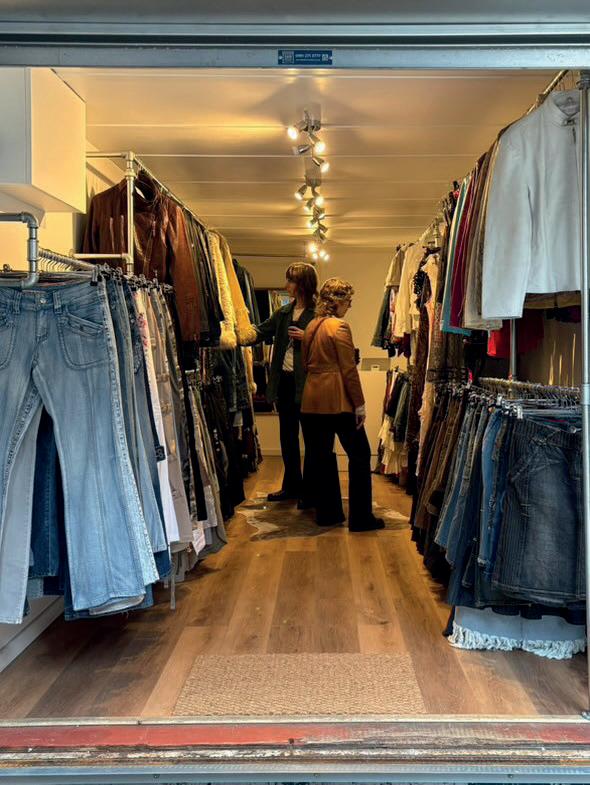
Transitioning into sales, we discussed the impact of having a physical store rather than being online. Due to being in the early stages of physical trading, they felt it was too early to say if they had an increased level of traction, but it was safe to say being inperson offers their customers a more worth-while experience with the chance to try clothes
“We have all had those purchases we were so excited to receive then you get it and it doesn't fit right, and it really is the worst kind of heartbreak.” – Elise, MALARKEY. MALARKEY is known for its specifically curated 90’s and 2000s aesthetics, so when it comes to deciding what makes the rails it is a thorough process to do. They find inspiration from what people are wearing to then mirror what people are wanting to buy. Their own personal taste and style is aided in what makes the final cut, which is no surprise why they are so precious about MALARKEY – given it’s an extension of
For sourcing, it is a mixture of selecting stand out
and unique pieces alongside elevated basics. Both quality and style is prioritised due to their ethos –long term pieces in your wardrobe. Following on, we got into talks about vintage stores in the area and the risks involved in being an independent business. Due to the elementary stages of MALARKEY it is acknowledged that they understand the risk they withhold however they ecstatically stated, “without risk there is no reward and we would never have embarked on this new chapter if we didn’t think we could it!”.
“Geordies love supporting small, and Geordies love supporting other Geordies.”
On a positive note, they believe being based in the North East is one hundred percent a geographical privilege.
“Geordies love supporting small, and Geordies love supporting other Geordies” –Elise, MALARKEY. Ouseburn is a hub for small independent businesses, and the sense of community is largely shared by the curator, sellers and fellow makers.
Fashion is everything to the twins; they adore getting dressed up and feeling confident in what they wear. They both enjoy the sustainable and ethical elements to MALARKEY and themselves. Having access to 1000s of articles of clothing, allows them to push the boundaries of their comfort zone.
MALARKEY specialises in 90s and 2000s, and to them this era was the pinnacle moment of experimentation. Both Elise and Anya are huge fans of grunge 90s pieces, as it offers to opportunity for layering.
Back in June of this year, Sam Fender was playing at St James’ and his incredible support CMAT came to the MALARKEY pop-up at Ouseburn Market. They both adored the meeting of CiaraCMAT- as she was so much fun and a lovely character! To them, there
was no better person to wear MALARKEY at St James’.
When in discussion regarding celebrities, they were asked about their thoughts on whether they felt people of influence should be wearing and representing more second-hand clothing. To them, celebrities and influencers should re-consider their ability to influence people and promote the importance of secondhand and vintage shopping.
"If you could dress any celebrity that you are inspired by, who would it be?"
“Chappell Roan of course!” – Elise, MALARKEY.
To conclude, we conversed around the future of MALARKEY and what that entails. They are always looking for something new, but they are very much enjoying their settlement at Ouseburn Yard at the moment. However, maybe something outside of Newcastle awaits them!
Finally, the team at MALARKEY envision them being the go-to coolest curated vintage

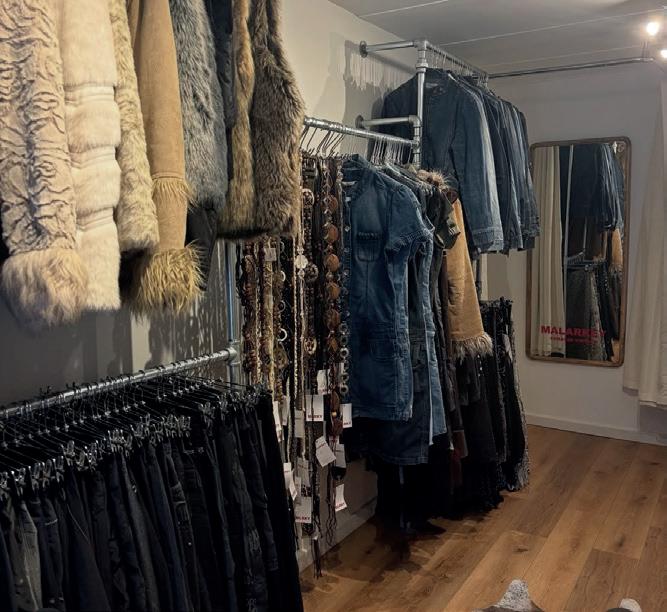

Charlotte Chantler - Science Sub-Editor
Itching for a fresh set?
Here's where to start...
Whether you're looking for nail art or a simple manipedi, Newcastle has plenty of options to suit every student budget. From affordable home-based artists to luxury salons, there's something for everyone that is looking to keep their nails in top shape.
Located just off of Northumberland Street inside Fenwick, Nail It Newcastle offers a variety of gel nail options. Whether you want gel on your natural nails or builder gel for extra length, this salon has you covered. Prices start at £37 for gel on your natural nails and £55 for gel extensions, with nail art available at an additional cost. They also provide a mixture of manicure and pedicure services, complete with relaxing massages to help you unwind while keeping your nails looking fresh.
If you live in Jesmond and are looking for somewhere local, Jesmond Beauty Clinic offers a more luxurious experience. From Gel, BIAB, Shellac or Acrylic nails, they have all the options you could ever need depending on your taste. Whilst their prices for these vary depending on the extent of work you would like done, they are generally more expensive with a full new set of acrylics or BIAB's costing £78. Despite this hefty price tag, it comes with a more luxury experience and very experienced nail artists to help create whatever you wish on your nails. Their team focuses on providing a high-end and personalised experience which is perfect if you're looking to treat yourself.
“Another talented local artist is @jodielowemu on Instagram... a great choice for students on a budget.”
For a more budget friendly option, consider independent nail artists who operate from home studios. Victoria Michell-Sodhi, based in High Heaton, offers services from her own home. Although her prices aren't listed online, photos of her work and ways to contact her can be found via her Instagram or Facebook. Another talented local artist is @jodielowemu on Instagram, based at Canny Groovy Studio on Carliol Square. Her full set of BIAB costs just £35, making her a great choice for students on a budget. She specialises in bold, intricate and over-the-top designs that truly stand out. Her work goes beyond a classic manicure and is perfect for those looking for a set that feels completely bespoke and artistic. Newcastle's nail scene caters to every style, offering everything from sleep and minimalistic looks to bold and artistic designs. you go, you're guaranteed to leave with nails that feel as good as they look.

Charlene Yang
What kind of scarf really is the best?
Fall has officially arrived, the beloved season that marks the reappearance of leather jackets, where vintage knee-high boots make their return and layering becomes both a sport and a statement. But there is one accessory that always manages to stand out, and no, it is not the pumpkin spice latte we all secretly anticipate. It is, of course, the scarf.
“We see scarves and think it's the perfect finishing touch to staying warm... ”
It may sound like an exaggeration, but choosing and styling the right scarf can feel like a genuine fashion dilemma, especially for those of us who did not grow up with four seasons. We see scarves and think it’s the perfect finishing touch to staying warm while looking effortlessly put together. But that is usually where the struggle begins. The challenge is to stay snug without surrendering to bulk, to look less like a bundled-up snowball and more like the elegantly composed student who glides through campus in the cold morning air.
Many of us have indulged in the familiar spiral
of “how to wear a scarf” tutorials, all in hopes of perfecting the elusive art of that nonchalant drape: the wrap that looks as if it takes two seconds yet somehow took all day. Still, the lingering question remains: which piece deserves our allegiance? The slender, embroidered wool scarf or the plush and oversized blanket scarf that every stylish passerby seems to wear so flawlessly?
Some will argue there is no definitive answer to this ongoing riddle: it’s just a matter of personal preference. Others may assume thinner scarves flatter certain face shapes or frames, while chunkier ones offer comfort and warmth on colder days. Perhaps the real choice depends more on the weather or practicality. It is also about the mood, whether it is a cozy wrapup kind of day or one that calls for a sleeker, minimal look. And of course, there are always those who shrug and think: It’s not that deep, as long as we keep warm while

looking good. Still, there is no denying the familiar chaos of running late to a lecture or a date because we simply could not decide which scarf suited us — and the day—better.
“... scarf season is more about rediscovering the
pleasure of dressing...”
So perhaps the best way to embrace scarf season is to treat it as an open invitation to play. Some mornings call for the embrace of a thick plaid wrap, while others invite the sophistication of that thinner cashmere piece bought on impulse two winters ago. Either way, scarf season is more about rediscovering the pleasure of dressing and less on choosing sides or following trends. It is a time to enjoy this freedom in experimenting, taking playful risks and making those bold (and less performative) choices that simply feel right for us. After all, style is rarely about perfection — it is about creating our own definitions while embracing its versatility with a confidence that feels genuine and entirely our own.
"My dream is to have a Newcastle Fashion Week": an interview with designer Shelly Kohli
Mia Wijayatilleke - Fashion & Beauty Sub-Editor
Shelly Kohli on her new fashion networking event...
Shelly Kohli is a Gosforth-based designer and stylist, who recently organised a unique fashion networking event, La Rouche Soirée, which was held at Louie’s Liquor Store, Bigg Market, on 6th November.
The evening brought together fashion creatives, designers, and models to network and celebrate their creativity. The dress code, ‘denim done differently’ inspired an array of creative takes on denim-based looks, and guests were entertained with a live embroidery station and pop-ups from two up-and-coming London designers, Emily Jerez Freire and Richa Sharma.
Shelly was professionally trained as a designer, and has worked as a stylist, designer, and personal shopper. Her experience includes styling for FB Fashion Ball’s show with the theme Indian Fashion Through the Generations, and for Courage and Couture’s charity fashion show. I had the pleasure of speaking to Shelly about La Rouche Soirée, where she shared her successes, advice, and aspirations for the future of Northern fashion.
MW: I was unable to attend your event last week, but the press release looked amazing, and I think the sold-out tickets speak for themselves. Were you happy with the night? Was there anything that surprised you?
SK: To be honest, the sold-out event is what surprised me. When you start something new, people have doubts... and when you bring ‘networking’ into it, people think “oh, it’s only
for professionals in fashion”.
...My purpose was to bridge the gap between London and Newcastle. Usually, people from Newcastle... run to London for work and to build those connections – which I did for a year and a half. Luckily, I managed to bring in [to the event] two designers from London who held their pop-up here. Among them was a student – it was her first pop-up as she wasn’t getting a break in London.
...In the beginning, people were apprehensive about what the event was going to be like, but as I started posting... and speaking on Facebook and Instagram stories, I think that really helped.
This was something new, something to give people a platform to show their creativity and come up with ideas. Yeah, it was great – I’m chuffed.
MW: Is the current lack of networking events in the North East what inspired you to create this event?
SK: Absolutely, this inspired me.
I attended a meeting for the British Fashion Council three weeks ago, and everyone was just talking about creating opportunities for students when they graduate – and yes, it’s important to give students a platform as they are the upcoming generation. But at the same time, we shouldn’t forget people who have already been there, who have prioritised their families, who are talented. They should be given a platform to bring their creativity out... [perhaps] by being given the opportunity to work alongside students.

This year I worked hard and was invited to London and Paris Fashion Week. I have a dream and I'm working for it... I'm fortunate enough that my kids are grown and I’m able to, but not everybody is.
So, instead of running out to London, I wanted to build a platform here in Newcastle so people can get together, work towards opportunities, and create connections... My dream is to have a proper, full-fledged Newcastle Fashion Week, not just limited to...
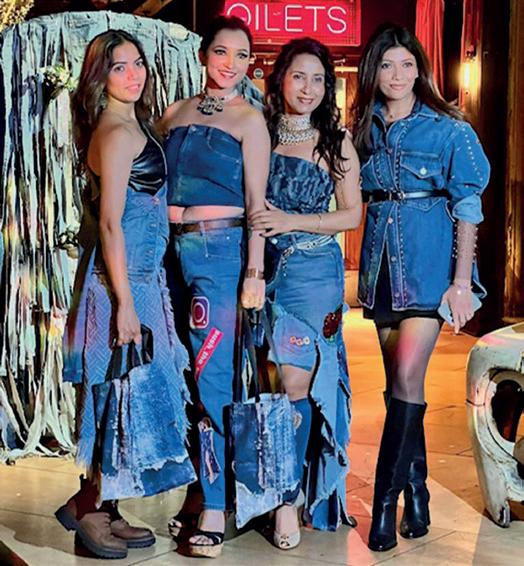
universities, but for everybody. Local brands can take part and show their talent. There are so many women who dream of becoming a model... if we have something like Newcastle Fashion Week, they will get that chance and that platform, and I think everybody deserves that.
“The success of La Rouche Soirée has confirmed that she will be hosting another event... on Saturday 7th February 2026 ”
Shelly’s passion and ambition was clear throughout the interview, and her vision for the Newcastle fashion scene is truly inspiring. The success of La Rouche Soirée has confirmed that she will be hosting another event, which will take place on Saturday, 7th February 2026. She explained that this event needs to be regular, and people need to continue showing up with their support, for this to lay the foundations for her dream of a Newcastle Fashion Week. Shelly encourages everyone from models, photographers, textile designers, sewists, and anyone looking for a break to showcase their work to get involved! It is set to be another fantastic night for anyone interested in fashion and designing.
Concluding the interview with a piece of advice, Shelly stated that it all boils down to resilience and hard work. “Build your own platform”, she emphasised. “Nobody gives you the platform. You have to build your own.”
Image credit: Shelly Kohli

When every sunrise, street corner, and cup of coffee is instantly captured and uploaded, travel has become less about experiencing a place and more about proving we were there. Social media has undoubtedly changed how we explore the world, but it has also quietly reshaped the way we write about it.
Traditionally, travel writing was a slow, immersive affair that was deeply attentive to the surroundings. Writers would take days to absorb cultures unfamiliar to them, observe landscapes, talk to locals, and translate those memories onto thoughtful prose. The beauty of travel writing lay in the art of taking readers across borders purely through words. It invited the reader to imagine, to feel, and to journey in their mind.

destinations risk being reduced to just another backdrop for online validation
Social media has fostered a culture of "pictureperfect travel." Places are portrayed at their most glamorous angles, void of complexities and imperfections. A quiet fishing village might now be known not for its stories or traditions but for being "Instagrammable." This does more to flatten cultural depth than encourage it, along with a kind of tourism less about engagement and more about the collection of content.

But today's travel content speaks the language of speed: spontaneous posts, catchy captions, and aesthetic reels. The focus has slowly shifted from storytelling to shareability. And when the priority is to create content that performs well online, glossy visuals often replace depth, and experiences become way too curated. Travel becomes a highlight reel, not a narrative, and
However, it would not be fair to say that social media killed travel writing- actually, it democratised it. Those voices that once would never reach a newspaper or publication today have the power to express their journeys to the world. Captions and blogs continue to be in use by many travellers for reflecting meaningfully, placing visuals with real meaning. The interest in travel journaling, digital storytelling, and personal essays was also revived by social platforms.
The real challenge today is to resist letting instant sharing replace genuine observation. Travel writing can still thrive, if travellers slow down long enough to experience a place before photographing it, and if writers choose to describe not just what they saw, but what they felt.
At uni, I am known for being the girl from Preston to the point that it has become an inside joke. If its meeting new people or meeting in the club if the topic of, where are you from comes up, I will proudly say ‘Preston’.
Whether its family and friends, the food, the music scene/nightlife, the days out, Preston will always have a piece of my heart and is a place if you get the chance you should visit. Preston is a diverse and working-class city, and this can be seen in its history, celebrations and community. For example, the food scene is incredible, from independent-run bakery or cafes such as ‘Ravenous’ where you can acquire a butter pie. You're probably wondering, what is that? Well, a butter pie comes from Preston’s Catholic history in the industrial age: as you were not allowed to eat meat on a Friday, the workers turned to a pie without any meat. If the sound of a butter pie doesn't tickle your fancy, there are many family run restaurants such as the Italian ‘Marino’s’ or Palestinian ‘Jaffa’. Despite it being a small city, it has a vast array of food.
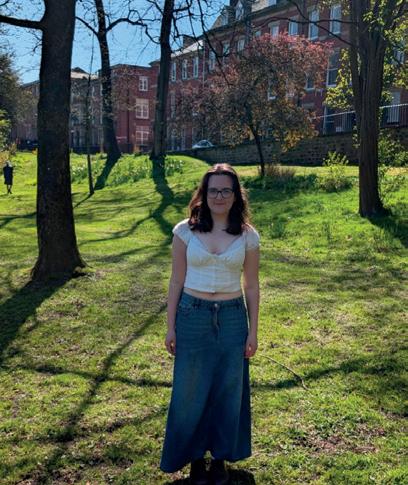
with a rubber duck on the top which you get to keep and collect. Once you have finished your duck shot, the club to go to is ‘The Warehouse’. With three floors, pop, RnB and metal, there is a place for everyone to have a boogie. And when you need a breather, you can go to one of the biggest smoking areas there is. Or if music is more your scene, there are variety of venues hosting DJs and independent bands from across both the country and the world. This includes my favourite, the Ferret, a four-day festival. Or if alcohol isn’t for you, Preston offers great days out. The newly refurbished Harris museum which currently is hosting one of the best exhibitions of Wallace and Gromit with all the original memorable and drawings, as Nick Park, their creator, comes from Preston. The Guild Wheel, which is 21 miles, is a great cycle or walk which wraps around the city. Or if you enjoy a good park there is Avenham, Haslam, or Moor.
Charlotte Chantler - Science Sub-Editor
Whether you are travelling around the Toon or heading back home, travel can quickly become one of the biggest student expenses. Luckily, there are plenty of discounts and deals available to help you save money whilst getting around.
When it comes to long-distance journeys, trains remain one of the most popular options among students. A 16-25 railcard is a musthave, giving you a third off train fares across the country. It costs £35 per year, but if you travel on trains regularly, you'll make that money back in savings rapidly. Through Student Beans, Trainline currently offers 15% off the cost of a railcard, bringing the cost down to £29.75. Alternatively, if you have a Santander Student bank account, you can get a free four-year railcard as part of your banking benefits.


Jet2holidays gives £100 off holiday bookings through UNiDAYS, while Loveholidays offers £55 off via Student Beans, giving great options for those looking to unwind between semesters.
With the right discounts, you can explore more, stress less, and make your student budget stretch that little bit further
Closer to home, Newcastle's transport network offers several affordable options for students.
If you're 21 or under, you can travel on local buses for just £1 per single journey. Simply ask the driver for a 21 and under single and you're good to go anywhere along that route just for a pound.
“If you're a seasoned traveller or just having an occasional trip, there are plenty of ways to cut travel costs”

Students who regularly use the Metro can make big savings with the Pop Blue card. The card itself is free, though you'll need to add a £5 top-up to activate it. Once it's ready to go, each Metro journey costs just £1, with a daily cap of £2.20. The card is available to anyone aged 16 to 21 and can be used across the entire network, stretching from Newcastle Airport to Sunderland.
Those who rely on the Metro even more might want to look into a Student Pop season ticket, available in both four-week and annual options, which are both 30% off the average season ticket. The Inner Newcastle and Inner Sunderland zones each cost £35.70 for four weeks or £398 annually, while an all zones pass costs £69.50 for four weeks or £518.50 per year.
If you're a seasoned traveller or just having an occasional trip, there are plenty of ways to cut travel costs. With the right discounts, you can explore more, stress less and make your student budget stretch that little bit further. Get around for less: the best

If it’s a couple of drinks you desire, Preston has many pubs and bars including, the Adelphi, Northern Way or Chews Yard Community is at the centre of these places. If you're having a night out on the town with lots of exciting predrinks, Ships and Giggles is the place to go to try their duck shots. What are duck shots? Duck shots are a shot

Overall, though I am very biased, Preston is a great place and has so much to offer and a community which never fails. Even if a job takes me away after university, I know I will always be excited to come back home and have a great day out in one of my favourite cities.
Image source: myfrozenlife, Flickr. Some images may have been manipulated: https://creativecommons.org/ licenseby-nc-nd/2.0/deed.en
One of our writers walks you through their venture to Scotland's capital for a muchneeded day trip break...
Do you have a weekend coming up with no plans? Skip the boring weekend and hop on a train to Edinburgh with a return ticket costing as little as £16 on Trainline!
It’s one of my favourite cities to visit and makes for the perfect little getaway after a week of stress. You can spend as little as one day there, and get a fantastic taste of what this amazing city has to offer!
I went with my best friend recently for a much needed break from uni, and we both had the best time there – promising each other we’d visit again. We set off from Newcastle at 10am and arrived at Edinburgh Waverley just under 2 hours later, heading to the viral café ‘The Milkman’ for a coffee and a catch up. We then walked across the road to ‘Laila’s’ for some avocado on toast, before setting off to explore the city.

With the sound of bagpipes playing all around us, we headed to our first destination; Scott Monument, the world’s second largest statue dedicated to a writer. Scott Monument stands at

Street Gardens.
After a wander along the shops, we decided to go for a walk in the Gardens, strolling past the colourful Ross Fountain and admiring the incredible views of the castle. Keep an eye out for the small stall at the top of the gardens which sells the tastiest hot chocolate, perfect for sipping during your walk!
Later that day, we walked down to Victoria Street, the famous road that inspired J.K Rowling’s ‘Diagon Alley’ in the Harry Potter series. With its colourful shops, pubs selling Butterbeer and live music playing, you could easily spend hours wandering around!
However, the highlight of the trip began when we entered Dean Village, a beautiful residential area with French-Italian undertones. We crossed the bridge and sat below it by the stream running through the village, admiring the picturesque scenery that looked like it was fresh out of a fairytale.
I cannot recommend Edinburgh enough if you’re looking to escape from the stresses of uni work, need a change of scenery, or even have a day free and fancy some exploring. And with Christmas coming up soon, there is even more reason to go and see the world-renowned Christmas markets, spread across multiple streets in Edinburgh, which will open on the 15th November and run until the 4th January 2026. With a plethora of food, drinks, festival rides and games, it is the best place to go with friends, or with a cute
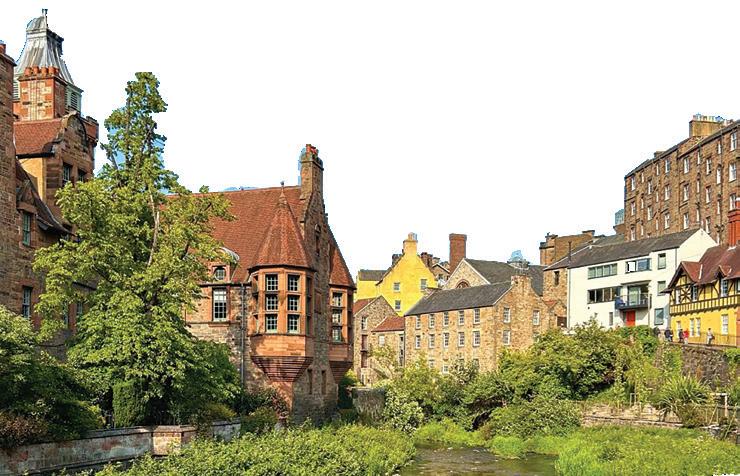


One of our writers shares their tiny glass friend she took home from Whitby during Goth weekend...
As winter and the holiday season arrive together, everyone’s most anticipated trips are about to begin! According to official data from Newcastle Airport, since September this year, the most popular flight destinations have been Budapest, Marrakech, and Ibiza.
When it comes to Budapest, the Danube River cannot be left unmentioned. Sipping a glass of champagne or red wine, taking a cruise along the Danube at night, the Parliament Building and the lights complement each other, offering
enjoy the snow scenery while soaking in a 40-degree outdoor hot spring. Moreover, the Christmas atmosphere in the city becomes very strong from November. There is a very lively Christmas market in the Vörösmarty Square in the city centre, where you can not only taste local desserts like Dobos Torte and Kürtőskalács, but also buy many handicrafts with ethnic characteristics. Besides, the City Park is backed by the Vajdahunyad Castle. In winter, it turns into a huge ice rink. Here, you can not only experience ice skating, but also enjoy the romance of European classical architecture.
“Even in winter, it still exudes the charm of the Mediterranean and the island. ”

If you are tired of the snowy scenery and want to experience some out-of-season activities, Marrakech is definitely the best choice for you. This red desert city located in the northwest corner of Africa will welcome you with its warm temperature. Due to its proximity to the Sahara Desert and its inland location in Morocco, it maintains a hot temperature throughout the year. Even in winter, the average temperature is 20 degrees Celsius. Besides, this red city exudes warmth in its colour tones, especially in the early morning and at sunset. Under the strong golden sunlight, the city changes from red to orange and then to gold, which is very distinctive. If you think it's a pity not to see snow in winter, don't worry. The peaks of
Mountains are covered with snow all year round. If you are lucky, you can even see the golden rays of the sun shining on the snowcapped mountains. Here, the cold winter is close to you, but also far away.
The third most popular destination is Ibiza, located in Spain. In people's minds, it is truly a party island. Even in winter, it still exudes the charm of the Mediterranean and the island. Despite being winter, it is still sunny and very suitable for outdoor activities. Away from the hustle and bustle of the city, it is different from the crowded and wild summer. The winter here is peaceful and beautiful. You can ride and walk along the magnificent coastline, taste Bullit de Peix and Cordero Payés, and enjoy the local wine. You can enjoy the peace and beauty brought by nature and food. And from January to February, it is the Almond Blossom Season. The entire valley will be covered with pink and white almond blossoms, which is very suitable for hiking and rock climbing in the valley. If you go in January, you can also participate in Festes de Sant Antoni, experience the bonfire by the sea and street performances, and relax your body and
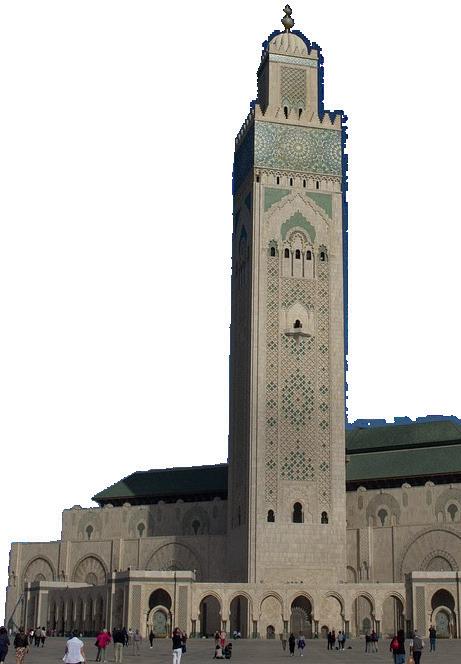

Looking for a festive day out? Have a mooch at this list to find some inspiration...
Christmas is 100% the best time of the year, and I will argue to the high heavens with anyone about that statement. Nothing beats wearing cosy pyjamas, sipping hot chocolate, and watching a good Christmas film; personally, The Polar Express always hits the spot. However, nothing can compare to the buzzing,
One of our writers shares their tiny glass friend she took home from Whitby during Goth weekend...
Souvenirs are weird, aren’t they?
Most of the time, they’re tiny, cheap, and sometimes just plain goofy. but somehow, they end up holding more memories than any photo ever could. Out of all the souvenirs I’ve picked up over the years, there’s one that always makes me smile: a tiny glass Dracula I brought back from Whitby, up on the North Yorkshire coast.
I went to Whitby on November 1st, the day after Halloween, right in the middle of Goth Weekend. Honestly, I had no clue what I was walking into. The second I got there, it felt like I’d stumbled into another universe. The sea air was sharp and salty, and there was this buzz in the atmosphere. The narrow, cobbled streets were packed with people dressed head-to-toe in black lace veils, dramatic makeup and long Victorian coats. Music spilled out of old cafes, the harbour sparkled under the cold autumn sky, and everything just felt a little surreal and theatrical.
“He wasn’t just a trinket; he felt like a piece of Whitby itself... ”

Ceramics to The Edinburgh Natural Skincare Company, so there is everyone’s taste. And not to the food stalls, including delicious waffles from Waffles and Cones or if fancy something less sweet, maybe try some banging burgers from Streetburger!

Whitby’s got a lot going for it: those crumbling abbey ruins, the wild cliffs hanging over the North Sea, and, of course, its claim to fame as the home of Dracula. Bram Stoker found his spark here, and you can see why. I climbed the 199 steps up to Whitby Abbey, watched the clouds roll in, and honestly, it felt like I’d wandered right into a gothic novel. The whole place soaks you in mystery.


Heading back down to England, we are going to Liverpool, taking place at St George's Plateau and William Brown Street, an underrated Christmas market in my opinion, the home of the scousers puts on an exciting array of Christmas fun, open daily from 11 am to 10 pm, with special hours on Christmas Eve, closing at 5 pm Liverpool is perfect for a last minute especially if you fancy a variety of places to have some Christmas beverages there is a varieties of bars such as the Tipi Bar, Windmill Bar or the Alpine bar. The bustling city also provides us with some thrilling rides, such as a classic Ferris wheel paired with the vintage carousel and Santa’s Land.




Now I think I saved the best till last and not to be biased or anything, but I would debate that my hometown of York is the Queen of the Christmas markets. With just a stone's throw away from the station, York makes for a perfect quick getaway if you want a classic Christmas market trip. Although yes, trying trying to get through the York market crowds can feel like trying to wrestle with a thousand gorillas, it is nonetheless all a the York experience in my opinion. For me, the York Christmas markets are unmatched, the incredible food stalls (including The Cheshire Cheese Co, Northern Brownie and York Gin) and the cosy vibes of the historic city, all paired with the Christmas lights, puts York up there with the best for sure!
At some point, I ducked into a little shop jammed with gothic oddities and antiques. That’s where I spotted him, a tiny glass Dracula. Not scary at all, actually kind of cute. He’s only about two inches tall, with a silly grin, a tiny cape, and these miniature fangs. Something about him just clicked. He wasn’t just a trinket; he felt like a piece of Whitby itself—spooky, yes, but also quirky and full of life. Now he sits on my desk at home. Every time I see him, I’m right back in those chilly Whitby


Sub-Editors:
Rowanne Holmes & Ruby Tinkler
Jess Mooney - Head of Current Affairs
Ditch the expensive nights out for a cosy evening in with your besties...
There’s something truly magical about a good wine night in. No need for heels, bar queues, or shouting over music that’s just a little too loud. Instead, it’s about good company, good music, and a bottle, or two, of something that makes you feel just a little bit fancy.
Every perfect evening needs the right soundtrack. Think mellow, vibey tunes that set the tone without stealing the spotlight, a mix of Fleetwood Mac, Lizzy McAlpine, Hozier, or anything that makes the room feel warm and full. The aim isn’t perfection, it’s creating that effortless backdrop that makes the room feel warm and alive. And, truthfully, as the night goes on, the wine will probably end up choosing the songs for you anyway.
"The goal is to find that perfect balance between cheap and cheerful and wow, that’s actually delicious."

Choose your wine wisely. There’s a sweet spot
between budget-friendly and a little bit special, and it sits firmly in the £7-£10 range. You don’t need to splurge, but you also don’t want the same bottle you’d grab for pres. Feel free to rely on the trusty price-topercentage calculation, we’ve all been there, just give yourself a little more wiggle room this time.
The goal is to find that perfect balance between cheap and cheerful and wow, that’s actually delicious.

competitive round of Mario Kart Wii. The activity doesn’t really matter, it’s the shared fun of the evening that makes it special. While I highly recommend the above, the real secret ingredient will always be the people.
The best wine isn’t

"...it’s about pressing pause, being present, and reminding yourself that the simple things are often the best."
A wine night in isn’t just about drinking. What truly elevates it is the little activity that turns the evening into something memorable. For some, that’s painting candle holders or moulding fridge magnets, a touch of creative ambition that ends in laughter (and perhaps at the risk of your deposit). For others, it’s a stack of wellloved board games or my personal favourite, a
Iknow, I know. Somebody told you that tofu was flavourless and boring and you believed them - but they were just wrong! I’m not vegan, but tofu lasts forever and this is one of my favourite speedy recipes that uses shelf stable sauces and all of the vegetables you have going off in your fridge. This recipe is inspired by RecipeTinEats (who always has fantastic recipes if you haven’t checked her out).
Ingredients:
Veggies:
• Half an onion
• Garlic
• Any vegetables you have going off in your fridge!
Other:
• A block of firm tofu (or minced meat or Quorn)
For the sauce:
• 1tsp cornflour
• 3tbsp water
• 2 tbsp light soy sauce
• 1 tsp dark soy sauce
• 1 1/2 tbsp oyster sauce or a vegetarian alternative
• 1 tsp oil (sesame, if you have it)
• 1 tbsp Chinese cooking wine
• 1 tsp sugar
• 1 tsp of either grated ginger or garlic
To finish:
• Peanuts or Graze
• Serve over rice, your carb of choice, or my favourite option: lettuce wraps. Now, onto the method.
Mix the ingredients for the sauce: start with
1 tsp cornflour with 3 tbsp water until a paste forms. Then add 2 tbsp light soy sauce, 1 tsp dark soy sauce, 1 1/2 tbsp oyster sauce or a vegetarian alternative, 1 tsp oil (sesame, if you have it) and 1 tbsp Chinese cooking wine. Finally, add 1 tsp sugar and 1 tsp of either grated ginger or garlic and stir until well combined.
"Essential

veggies are half an onion and garlic, but everything else can be whatever other vegetables you have."
Chop all of your veggies into equal size pieces. Essential veggies are half an onion and garlic, but everything else can be whatever other vegetables you have. I like to use carrot, mushroom and something green (like green beans), but genuinely anything would work. I’ve used courgette, pepper and broccoli too. Fry over a high heat in your oil of choice until slightly softened. Crumble in a block of firm tofu and fry until it gets little crispy edges. You could also use minced meat or Quorn. Pour in the sauce and stir until thickened, about Serve over rice, your carb of choice, or my favourite option: lettuce wraps. Sprinkle over something crunchy, like peanuts or Graze, and finally some spring onion.
the one you share while laughing until you cry. Some of my favourite memories aren’t from nights out, but from the “nothing” nights in the slightly messy kitchen, a half-empty bottle on the table, and those late-night conversations you’ll pretend to forget in the morning.
A perfect wine night isn’t really about the wine at all, it’s about pressing pause, being present, and reminding yourself that the simple things are often the best. So grab a bottle, queue up the playlist, and toast to the people who make your little flat feel like home.

Sophie Psaila - Opinion Sub-Editor
It was around this time last year when I first discovered bao buns. I was wandering through Grainger Market’s endless food stalls, hoping that something would jump out at me screaming “pick me, I won’t disappoint you!”

Then I saw the beautiful blue banner: Bao Down. To be perfectly honest, the fun name was what sold me at first… but trust me when I tell you, bao buns are absolutely worth ‘bao-ing down’ to.
If you aren’t familiar, bao buns are pillowy, cloud-like dough pockets, stuffed with the most delicious fillings. You can have almost anythingfrom hoisin duck, to sticky chicken, and even to the most amazing aubergine which could convert any meat-eater - the possibilities are genuinely endless. It’s not just Bao Down; it's been proven time and time again that bao buns are unbeatable, regardless of where you buy them from.
Whether it’s a quick lunch in the middle of summer or a cold winter pick-me-up, bao buns are the perfect treat - bursting with flavour yet undeniably comforting all at once. So, get yourself down to Grainger Market.
Kate Kennedy - TV Sub-Editor
Authentic Italian food that won't break the bank...
As we get further into house hunting season, a lot of you will be looking in Jesmond. If you want a cheap eat to fuel yourself after a lot of awkward house viewing or to celebrate finally finding your house then on Manor House Road you'll find Francesca's. Since opening in 1983, it has been a student staple for a hearty, authentic Italian.
"Since opening in 1983, it has been a student staple for a hearty, authentic Italian."
Francesca's is perfectly placed in the heart of Jesmond and is such a student staple that my parents often went while they were studying at university, it has also been the site of every birthday dinner for as long as I can remember. The most expensive menu item is under £20 and you can definitely fill yourself for that price, the staff are so welcoming and friendly which is a key reason for there being so many returning customers. My personal menu highlights would be the half-pizza half-pasta for under £10 and the garlic king prawns. There are various gluten free, vegan and vegetarian options so there's always something for everyone. If you don't fancy anything particularly Italian but find yourself in this Italian restaurant then there are steak, fish and chicken options. I would advise that you plan when you visit the restaurant as at peak times

(12pm, 5pm and 7pm) the queues can become very long and you might lose hope. However, the staff ensure that, with quick and helpful service, the queues die down very quickly and you'll be seated and fed in no time.
"Francesca's is a great place to take your current or future flatmates, your parents when they visit or for a cheap date night. "
Francesca's has also made an appearance in Northern literature, in Jessica Andrews' Saltwater (2019) the main character Lucy works at Francesca's which you can tell by the menu details.
Francesca's is a great place to take your

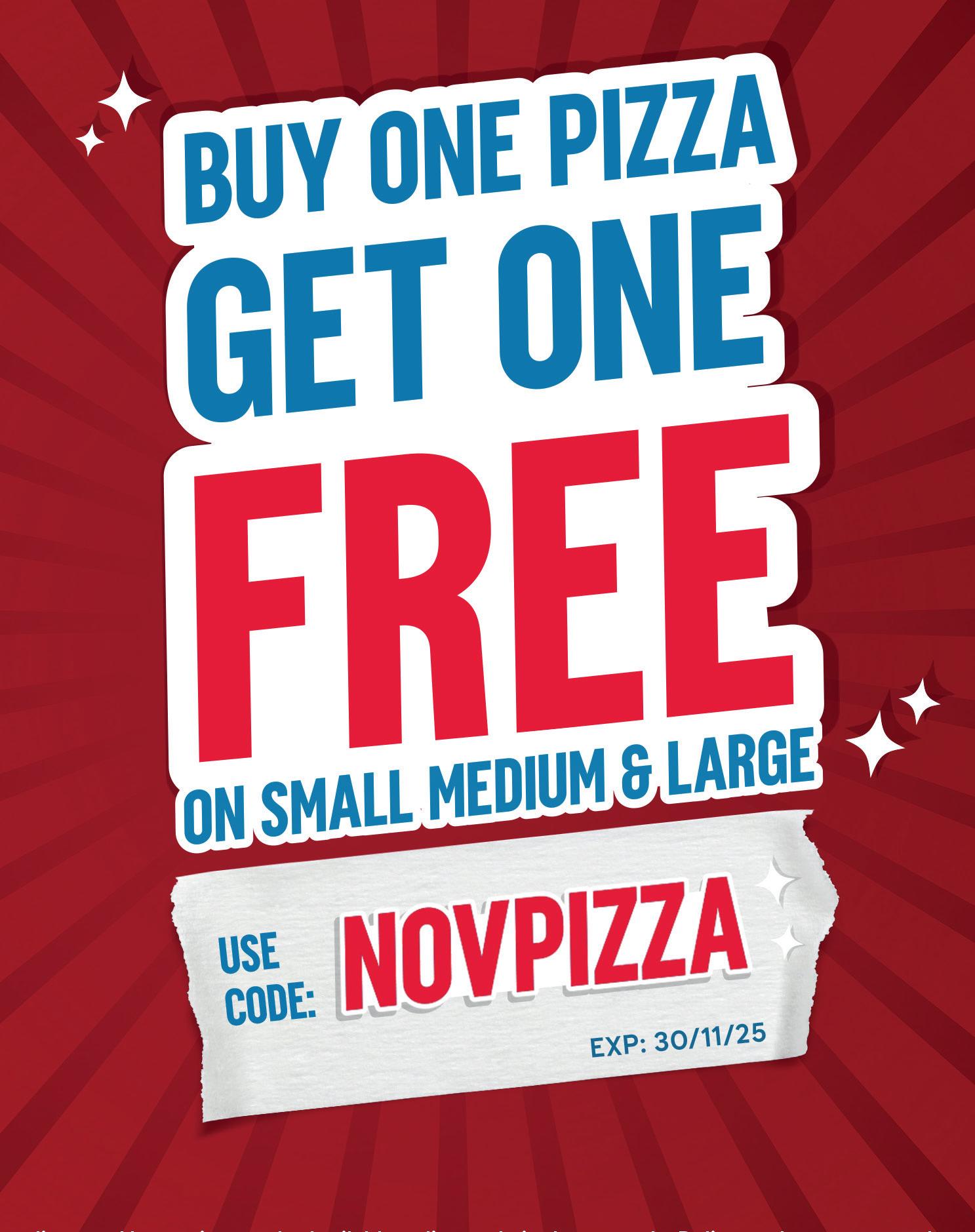


It was not until 1890 that football truly began to take off in the North East, several years after the sport had started flourishing in other parts of the UK.
The first game of football in Tyneside took place on 3 March 1877 at the Elswick Rugby Club. It consisted of one team of eight men, and

one of nine. The team of nine won 2-0 and shortly after became Newcastle's first official club, Tyne Association. Another team, Newcastle Rangers, was formed in 1978 and initially played on Gateshead's Drill Field, as there were no available pitches north of the river. Eventually, they marked home at an enclosed ground close to Leazes Terrace in 1880, which we now know and love as St. James' Park.
However, the origins of Newcastle United Football Club specifically can be dated back to 1881 through two much smaller football clubs.
The first club, Stanley, originated in November 1881 and had formed through a cricket 11. The team later changed their name in October 1882 to Newcastle East End, due to confusion with a team in County Durham that shared the same name. Simultaneously, on the opposite side of the city. another club was taking shape known as West End Football Club. They played on a cricket field on the Town Moor, but in summer 1885, they moved to a pitch beside the Great North Road. In 1886, West End FC took over the lease of St. James' Park.

However, it swiftly became obvious that Newcastle was not a big enough city for two major football teams.
West End Football Club faced several struggles and were on the brink of collapse. Resultingly, they offered their lease of St. James' Park to East
At the beginning of the 20th century, the crowd backing the Magpies were concerningly low...
However, Newcastle United started purhcasing some incredibly talented players, which was a catalyst in them building a strong football club who could take on any team in

West End FC played their first football game back
End Football Club after the 1891/92 season.
East End Football Club then formally moved to St. James' Park in May of 1892, and they also took possession of West End FC's remaining assests, including some of their players. At this point in time, only one major football team remained in Tyneside.
East End FC's first game at St. James' Park commenced on 3 September 1982 against Glasgow Celtic. It was a prestigious friendly and a 1-0 win to Glasgow Celtic. Though this match pulled a strong crowd of 6,000 people, this kind of attendance
was rare, and the directors knew that something had to be done to increase the amount of regular spectators.
Therefore, in December of 1892, a meeting was called at Bath Lane Hall, in which East End's directors opened a discussion regarding the future of football in Tyneside. The attendees at the meeting agreed that the team should abandon their current name of East End Football Club, in an attempt to gain more support from the wider
in 1882 against Rosewood (which ended in a 2-0 defeat), and East End had their first game on the same day against Hamsterley Rangers (which was a 1-0 win). By 1884, East End FC and West End FC had cemented themselves as the strongest football teams in Tyneside, overthrowing the original top teams, Tyne and Rangers.
England.

So, on 9 December 1892, East End FC became
This was seen in the 1904/05 season, when Newcastle won their first Divison One title, then in 1908/09 they were once again deemed as the best team in the country.
Newcastle United also reached the FA Cup Final in 1905, 1906, and 1908. Yet, they never lifted a trophy until 1910 when they beat Barnsley after taking them to an intense replay match.
Throughout the 20th century, Newcastle United went on to win the FA Cup five more times in 1923/24, 1931/32, 1950/51, 1951/52, 1954/55, as
well as being crowned English Champions once more in 1926/27.
But it was not all good fortune for Newcastle United Football Club. Only a couple of years after their FA Cup win in 1932, they were relegated for the first time in their club's history - despite a huge 9-2 and 7-3 win over Liverpool and Everton respectively that season.
Following WWII, the Football League officially resumed in 1946 and Newcastle United were quickly promoted back to the First Division in 1948. The 1950s then saw the Magpies lift a
Newcastle United.
The East End previously played in a red kit (slightly awkward considering their biggest rivals are currently Sunderland...), and only adopted the iconic black and white stripes in 1894. Then, shortly before the turn of the century, Newcastle United gaimed promotion into the top division.

trophy five times in three years, dubbing themselves 'Cup Kings'. Unfortunately for the club, they faced a trophy drought after this period, but finally lifted a trophy earlier this year for the first time in 70 years. Newcastle United deafeted Liverpool in a 2-1 win on 16 March 2025, making them the winners of the 2024/25 EFL Cup.

Anna Lewis
Woof! Woof! A review of a tail-wagging DS classic...
Most parents, when making the decision to bring a child into their lives, reckon with the reality that they will lose their evenings previously spent relaxing. They plan for dirty nappies, school dramas and even complete disasters, but I am reasonably confident in my guess that my parents did not anticipate what would turn out to be one of the main time-consumers of weekdays and weekends alike - walking their eight-year-old daughter’s virtual dogs.
“...the night I left my DS with my then pug-obsessed sister... she bought me a fourth, unwittingly ousting Poofle.”
A birthday gift of a Nintendo DSi and Nintendogs: Lab & Friends marked a lot of firsts for me. First console, first game, and, frankly, first real responsibility. I became quickly enamoured by my two golden Labradors - a boy named ‘Spud’ and a girl called ‘Rose’ - and even followed them up by getting a Cocker Spaniel that I named ‘Poofle.’ As the game only allows you to keep three dogs in your house at once, the night I left my DS with my then pug-obsessed sister and she bought me a fourth, unwittingly ousting Poofle to the kennel, proved to be a tense and trying evening. Still, little Jet won my heart as well, and I eventually worked out how to switch them back and forth between the house and the ‘dog hotel.’ The game itself is simplistic and easy to grasp. You need to wash your dogs, feed them, give them water and take them for walks in order to keep all of their traits described with words like ‘full’ rather than ‘famished.’ Incidentally, this game was how I learnt the word famished, as well as the word parched, so maybe there’s some small educational value to it also. You can enter dog shows and train your dogs to be faster and more skilful, as well as upping their endurance. However, in order to build up your dog’s stamina, you need to take them for longer and longer walks, which was in turn what led to my poor Mum having to finish off an oversized romp I had decided it was best to start ten seconds before my bedtime.
“Nothing stands out aside from the slightly pixelated, 2005 graphics...”
In truth, Nintendogs isn’t really any different from the other thousands upon thousands of pet simulators that now exist in app stores or on Steam. Nothing stands out aside from the slightly pixelated, 2005 graphics and the fact that you play it on a tiny little console instead of your far more convenient phone. But while every dog rearing app I’ve ever downloaded has inevitably been deleted, I have no intention of ever selling my Lab & Friends cartridge. And what’s more, when I booted it up so I could review it for this article, I couldn’t help spending an hour washing, feeding and taking Spud, Rose, Poofle and Jet for a walk, just to hold them over until I next decide to visit.

Dylan Seymour - Deputy Editor
Wort wort what is up with Republicans ruining HALO?
The game that defined an art form is getting a remake. After a disappointing HALO 4, disastrous HALO 5 and half-done Infinite, HALO Studios has fired back with a new take on the one that started them all:
Combat Evolved. Returning with a classic artstyle and staggering graphics, fans have almost forgotten that with modern HALO, we just can't have nice things. Out of all people to remind us, though, Donald Trump is perhaps the most demoralising to do so.
America's Department of Homeland Security, overseeing immigration control and antiterrorism among other things your uncle won't shut up about, has taken a curiously Gen-Z approach to social media in Trump's second wave. Among the usual press conference clippings and scaremongering comes one word that somehow defines US politics today:

memes.
"Protect the West", "send them back", "defend the homeland" - usual slop you expect from some edgy 14-year-old, now meme-ified and proudly presented on the X page of a federal department. With HALO once again on the lips of millions, it was only a matter of time before Republicans pounced.
In a post only describable as racist, dehumanising bile, the DHS encouraged followers to "destroy The Flood", backdropped by imagery from HALO's original 2001 release of Combat Evolved
The post advertised jobs at ICE, the department tasked with detaining those suspected of being 'illegals', clearly drawing parallels between migrants and The Flood - a parasitic zombie-like enemy from the original three HALO instalments.

dire consequences for the game's universe, Microsoft has remained quiet as its IP is tainted to push loosely-disguised racism. Telling PC Gamer they had "nothing to share on this matter", the tech giant stands
Contrasting Microsoft's cowardice, some original developers are standing defiant as their art is corrupted. HALO 2 design lead Jaime Griesemer called the post 'despicable', while the franchise's co-creator Marcus Lehto told GameFile that "It really Halo co-opted like this".
Even by the lofty standards of the American right, comparing people - living, breathing people - to a monstrous infection you spend your time killing and burning in HALO marks a new descent into flatly exterminationist rhetoric employed by Trump's cabal against those they hate.
“...Microsoft has remained quiet as its IP is tainted to push loosely-disguised racism.”
In an ironic reflection of 2401 Penitent Tangent, a HALO character whose silence and neglect have
“...beware those who would deny others the right to exist based on who they are.”
If there's one message taught by HALO, but most importantly by history, it's to beware those who would deny others the right to exist based on who they are. Across each instalment in the game's roster, we fight a genocidal campaign by the alien "Covenant" as they aim to wipe humanity from the galaxy. The Covenant consider humans beneath them, they turn human planets to glass from orbital spaceships. Republicans in the US twist HALO as they increasingly adopt a Covenant-esque mindset to those seeking better lives, but you have to wonder: do they not see themselves?
Will the new choose-yourown-adventure live up to the hype?
The highly anticipated 'choose your own adventure' style superhero game Dispatch launched on the 22 October, featuring fan-favourite voice actors, a charming art style and a rich story line. But with all the hype from its announcement, is it all it's cracked up to be?
At first glance, this comedy/superhero game takes pieces from other decide your destiny games like Until Dawn and Life is Strange, using dialogue branches and quick time events to alter how the main character's (Robert Robertson) relationships change with the superheroes/ supervillains he is managing.
But it takes this to another level with the mundane workplace environment twist and managing skill points. After losing his mech-suit in battle, Mecha Man, as he was formerly known, now works at a dispatch centre, working with ex-supervillains, helping to not only rehabilitate them but also
cover art for Dispatch is literally just Robert and the other characters in a bathroom, purely for the fun of it.
The game features an impressive roster of voice actors from MoistCr1TiKaL and Jacksepticeye (Sonar and Punch Up) to Matthew Mercer and Jeffrey Wright (Shroud and Chase).
There is debate around the quality of Jacksepticeye's microphone online, as some argue that it does not have the same depth as others, maybe as he potentially used his own microphone rather than a studio one, but this is absolutely nothing to put you off buying the game, as it is hardly noticeable.
“The emotion and personalities of each character really shine through...”
The emotion and personalities of each character really shine through; it definitely adds a polished feel to the game, along with the decision to release two 'episodes' each week: it makes the whole game feel like you are interacting with an animated movie. this game so unique too, to actively manage goes out to prevent fires, fights and even common workplace drama. Not only is it important to choose which hero is right for the job, but having to deal with workplace romance, extroubles and


events that will have dire consequences on your team and the whole city.
The story line is creative and funny, massively helped by the whole team over at Critical Role, the popular American team of voice actors playing tabletop games like Dungeons and Dragons
“The game is also available as a Deluxe Edition, giving you access to not only the full game but a 100+ digital art book and four digital comics...”
This is their first game the company has been involved with, and also did a 'one-shot' Dispatch-inspired campaign to help promote the release. The game is also available as a Deluxe Edition, giving you access to not only the full game but a 100+ page digital art book and four digital comics replicating the art style of Marvel and DC comics featuring all the characters from the game.
I would highly recommend giving this game a go, it has a little something for everyone and already has a 'very positive' rating on Steam, suggesting the hype from announcement day has indeed lasted until release.
The game is rated 18 featuring some nudity, strong language and cartoon violence, and is available on PS5 and Windows for £24.99.


Estra Arthy
Two bands, one revival: one of our writers explores how Fontaines D.C. and Wunderhorse are redefining the sound of guitar music...
Fontaines D.C are the sound of walking through a rainy city at 2 a.m., and when you finally return home and lay down on the sofa and stare at the ceiling, Wunderhorse are who you listen to. Both bands are resurrecting guitar heavy music, just in two completely different ways.

Since Dogrel debuted in 2019, Fontaines D.C. have emerged onto the post-punk scene with a poetic grit that is distinctive to them alone. Through their follow up A Hero’s Death and , frontman Grian Chatten continued to deliver a rhapsodic kind of lyricism that digs into identity and isolation; giving a slight folk-twanged spirit while his half-shouted vocals sing over taut guitars. They fuse political frustration and poetic reflection, divulging into a sound that

reminisces a place trying to remember itself. Discourse surrounding the ever-growing Irish alternative music scene rocketed at their release of Romance in 2024; an album which encapsulates their defiant and raw energy while its sound and lyricism pushed their music into an authentic and real feel of individual life, where all listeners can participate in a shared catharsis through this album. They have made noise with purpose, through a poetic melancholy and a love letter addressed to Ireland.
“...Midas, an album which proves ‘90s grunge influences still have appeal...”

Where Fontaines D.C. gives you literary lyrics and political edge, Wunderhorse offers a more emotional and melodic sound, that is perhaps, more focused on pain and angst on a personal level. After the disbanding of his former band the Dead Pretties, Jacob Slater’s focus shifted onto a sound of melodic reflection whereby he started to create music as Wunderhorse with its 2022 debut Cub. With Wunderhorse being previously a solo project, Jacob Slater’s bandmates being hired hands, they then developed into a group. set the scene for what was

set to follow, where the foundations Slater built from the first album led to the band’s 2024 album Midas, an album which proves ‘90s grunge influences still have appeal; and through the tracks we see a revival of it. Where Fontaines D.C. looks outwards, Wunderhorse has much more of a focus on the inward, where an established emotional weight and crafted lyrics form a layered chaos into each song on the record. Fontaines D.C. gives you the voice of a collective angst, and Wunderhorse embody the personal fallout that follows. Who wins? That ultimately depends on your mood. While Fontaines are an expression of discontent, Wunderhorse represent a painfully self-honest reflection. Yet, both belong to a new generation of guitar bands that each prove music can still feel important, exciting and raw.

Bethan King
It’s clear dance music’s gone mainstream Maybe it’s our egos, not the sound, that’s lost its edge...

When we think of dance music, we think of an authentic and underground sound. Music grounded by real people. But when Calfreezy and WillNE are front-row at Kettama, you can't help but wonder if dance music has lost its edge. Bless, the influencers themselves haven't done anything wrong, nevertheless, it's undeniable that their front-row appearance symbolises a dramatic, commercialised shift in dance music's culture.

So is cringing at Calfreezy and WillNE's front-row appearance a pessimistic contradictory? Their influential status parallels and essentially celebrates the newfound popularity of dance music. So many underground scenes foster talent that never have the chance to get heard. Shouldn’t we embrace the mainstream exposure that is giving smaller artists well-deserved success?

“A genre that was once recognised for its honest passion has been streamlined into a process of generic production...”
cough* commercialisation, many like to digress from the mainstream, feeling more fulfilled by finding an identity uncorrupted by what the mass media imposes. Thus when dance music supposedly loses its 'edge', they feel as if they have too. Their niche interest is no longer an individual choice but a mass-consumed product; and their ego has taken a toll.
Emma Monaghan - Music Sub-Editor
Boomtown’s 2026 edition promises a bold new redesign, but will fans approve?
Boomtown is back and already rearing to go for the 2026 festival season! With the loss of Glastonbury this year, Boomtown is looking to be a strong contender to replace the void for the festival-goers that enjoy the weird and wonderful of the south-east corner. With It's 'Radical Redesign' and immensely chaotic lineup, the festival is sure to steal the hearts (and funds) of us this year.

On 28 October, Boomtown revealed its first wave of their lineup, and it did not disappoint. The festivals commitment to variety and scale has not changed, with the likes of Madness, Scissor Sisters, Skrillex, Shaggy and even the controversial KNEECAP to headline. The




Dance music formed it's roots underground. The genre did not harbour mainstream attention nor the financial benefit in return. The people who made it, were fuelled by genuine passion for the art. This gave dance music its authenticity and integrity. It gave it its edge. But recently, dance music has emerged from the shadows and began basking in the mainstream's light. Dave Jenks acknowledges this transition and the reasons for it in his article. Ultimately, the evolution of technology has given more people the platform to not only make dance music, but access it too: tracks are made from the comfort of a bedroom, and then uploaded to the internet. Social media then provides an accessible platform for artists to generate a following. The mainstream consciousness has subsequently recognised the potential of dance music and embraced the genre and with open arms, signing artists to record labels and promoting EDM Festivals.
Unfortunately dance music's rise in popularity is simultaneous with its commercialization, leaving a bittersweet taste in critics mouths. Jenks acknowledges the criticism of commercial success having "diluted the artistic integrity of dance music, leading to a proliferation of formulaic and generic tracks". A genre that was once recognised for its honest passion has been streamlined into a process of generic production and dangerously close to losing its authenticity. Calfreezy and WillNE's presence - unfortunately - also nods to this loss of speciality and 'edge'.
“Their niche interest is no longer an individual choice but a massconsumed product...”
But are people really concerned with the music? How much is this loss of 'edge' actually a personal concern of individual identity and ego? Human beings are desperate to define their identity. And with the ongoing influence of *cough,
That is why when WillNE and Calfreezy take front row at Kettama, consumers are suddenly discouraged from enjoying the music. Dance music has not changed. There are undoubtedly moral and economical concerns that come with its commercialisation, but the sound is essentially the same, if not produced even better. So if you're irritated that two lads are enjoying your favourite genre, question if you're internally trying to gate-keep Dance music and enjoy its new-age of popularity.



'Radical Redesign' comes controversially, with dedicated Boomtown fans claiming to feel disappointed in the festival’s introduction of more house-music-based sets last year at the Hydro stage, such as Chris Stussy and L.P Rhythm. Many took it to social media to complain, claiming the festival was losing its essence, and being infiltrated by the 'wrong crowd'.
Despite this, Boomtown cofounder Luke Mitchell shared in a statement that "While bass music has dominated in recent years and will always be at our core, we're making a conscious move to keep Boomtown musically diverse and unpredictable," and to "Expect more live bands and more cross-genre adventures. That's where Boomtown began, and it's what keeps us on the truest path forward."
While many may continue to complain, the 'Radical Redesign' seems to be an attempt to keep the essence of Boomtown going - a commitment to togetherness and creativity. An introduction of new genres, sounds and artists seems to be the perfect way to uphold this, and the festival is on the look to sell out very soon. While the festival continues to grow, attendees (including me)
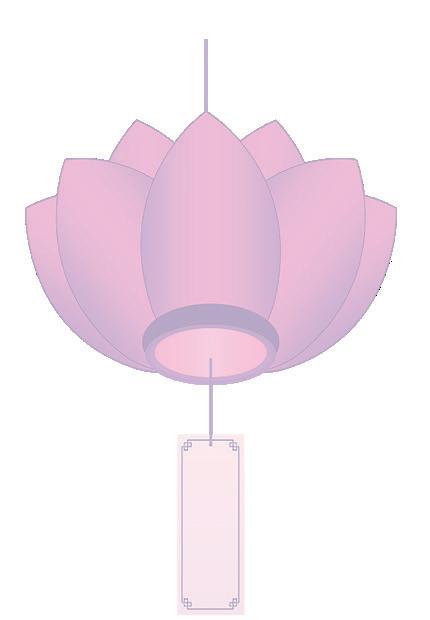


Adam Lovegrove - Deputy Editor
Cinematic, poignant and elegant : Celeste's new album has blown listeners away...
If you haven’t yet had the chance to listen to her timeless 2021 debut Not Your Muse, you’ll likely have heard Celeste’s velvety vocals in one place or another. Whether it be 'Stop This Flame' playing as the theme for Sky Sports’ Saturday Night Football or her lead single for film The Trial of the Chicago 7, 'Hear My Voice', the singer-songwriter has been almost everywhere since she made her musical breakthrough at the start of the decade. Her LP breathed new life into the modern soul revival, with her husky, “old soul” voice serving as the perfect bridge between vintage instrumentation and modern, pop-inspired production.

With Woman of Faces, Celeste departs from her now signature soul-pop style in favour of a far more symphonic sound. The album opens with 'On With The Show', a cinematic ballad that uses performance as a metaphor for keeping a stiff upper lip amidst adversity. Marching band-
esque snare drums drive the track’s momentum forward, building in intensity as Celeste’s selfreferential songwriting describes “the swell of strings, the choir in constant rage”, further contributing to its dramatics.
This theatrical feel dominates much of the album, brought to life by Grammy-award winning Jeff Bhasker and Beach Noise. Most tracks opt to not even use percussion, such as the string heavy 'Keep Smiling'. Soft guitar plucks ripple underneath and subtly propel the track forward while soaring violins complement Celeste’s whispy vocals: “I forget what he did, turn the other cheek, and keep smiling”.
Woman of Faces is an album about a desire to persist through pain, as Celeste grapples with feelings of heartbreak and confusions of identity. Its eponymous single serves as the epitome of this, speaking for women who may not feel seen and recognising patterns in herself “It’s a very fine line between her world and mine”.
She ponders “Who really knows the woman of faces?... Not you, not me”, unable to identify herself amongst the many fronts she puts up. It’s intensely poignant, with a high vocal presence that makes for an intimate listening experience. There’s a transparency to Celeste’s voice that makes every song seem precious and delicate, and despite the singer battling an inability to identify herself, Woman of Faces feels so deeply personal. 'Sometimes' sees a continuation of the performance metaphor as Celeste reflects on her relationship struggles “sometimes I get all the signs, sometimes I forget my lines”. Soft, ethereal keyboard notes provide a sense of nostalgia to her reflection, but it’s her subtle whisper at the end of each line that carries the track’s emotional punch. It’s as if Celeste can barely bring herself to utter these words of reflection and “leave all these unsatisfied dreams unfed”.



“It has a vintage elegance that complements the timeless sentiment of leaving things up to destiny.”
My favourite moment on the album arrives at its midpoint with 'Time Will Tell': a moment of
respite within the melancholy of Woman of Faces. The opening guitar is played with such incredible gentleness, almost lullaby-like in nature, as Celeste’s soft, breathy vocals describe her finding comfort in the certainty of fate “It’s hard to say ‘cause only time will tell, let’s keep it undecided until it reveals itself”. She moves into a sweeter, more soulful register as the strings swell and eventually crescendo in total harmony before dialling it back in for the finale. It has a vintage elegance that complements the timeless sentiment of leaving things up to destiny. The album’s closer, 'This Is Who I Am' has been out for over a year now. But Woman of Faces provides the song with a fresh significance in the context of the record. It’s the most poised and structured song on the album: a clear sign of Celeste’s newfound confidence and certainty. It has that same progression and constant march of drums found on the opener, but whereas 'On With The Show' displays performance as necessary, 'This Is Who I Am' has no need for these facades. This is Celeste, “no lie, and no less”, and although we may not fully understand her, she accepts that not everyone needs to. She's done living purely to please others, affirming the track’s title on the outro. Not for anyone else, but for herself. Celeste's Woman of Faces is out now.
Image source: Royal Variety Charity, Wikimedia Commons, https://creativecommons.org/licenses/by-sa/3.0,
Amy Mescus - Head of Culture
A night of unbelievable talent that are shaping the next generation of the North East's music scene...

After I checked for the 80th time that my camera battery was charged, I gathered my equipment into my bag and set off for Newgate Social. It was 6:30pm on Halloween-eve, so the streets were lined with people in a different array of spooky costumes, some more ridiculous than others, but that night I had different plans. On 30 October, three-piece, alternative rock band, Alvo Jade, took on Newgate Social, a grassroots venue nestled above WonderBar in The Gate (NE1 5TG) to promote their newly released EP, Round Pegs and Square Holes. With every step on the staircase I took, the intensity of Polyfillas’ - one of the evening’s opening acts- sound check reverberated through my body more and more. Tickets for the gig were only £5 when purchased prior to doors, which is undeniably great value for the amount of local talent you’re able to experience in just one evening.

Prior to the concert, I was unfamiliar with Alvo Jade’s music and felt weirdly nervous as I was attending on my own. However, I was warmly welcomed
by frontwoman Reese and drummer Owen, who were taking their time to greet everyone attending the show.
The first act of the evening was Polyfillas; young, fresh, unapologetically punk, and politically confrontational. Dressed to the nines in suits and smart hats, the Sunderland-based rock act set the tone for the evening with powerful vocals paired with razor-sharp lyrics.
Following Polyfillas was more local talent, Sarah Johnsone from Newcastle. Her alluring vocals and tone are reminiscent of musical icon Amy Winehouse. However, through a blend of blues and jazz with rock, Sarah Johnsone pushes genre boundaries and develops her own unique, punchy sound.
Undivine Telephoneline was the final opening act of the evening. Though they’ve been tearing up the streets of Teesside since 2019 using funk rock and unmatched energy, this was somehow the band’s first show in the Toon. Despite this, Undivine Telephoneline undoubtedly cemented themselves as one to watch, with monstrous bass lines, striking vocals, and even a touch of nu metal rap in the performance of their latest single, ‘In My Element’. Alvo Jade commenced their set with ‘Decide’, the opening track to Round Pegs and Square Holes. It’s raw and it’s heavy. Reese opts for spoken words in this song, closer to shouts than her usual softer vocals. It confronts some of the political issues faced by working-class people in the Northeast. Having a local woman front and centre stage, laying her thick accent bare for all to hear makes the track that much more impactful. The audience were completely entranced by the band's strong presence as more people edged closer to the stage by the second.
Continuing in chronological order of the new EP, Alvo Jade next played ‘The Landing’, a track that differentiates the band’s new, more alternative sound in comparison to their previous, debut EP, Field Trip, which carries more of an indie rock vibe. I particularly adore Reese’s whisper of, “It’s not my fault you want more,” followed by Seb’s coarse, gritty guitar build-up.
Slowing the tempo down, Alvo Jade reminded
everyone where they came from with the titular track from Field Trip. The track blends melodic, soft vocals from Reese with beautifully intricate fingerpicking guitar riffs to create a dreamlike song that somehow perfectly encapsulates the feeling of nostalgia, even if you’ve never heard it before.

We returned to Round Pegs and Square Holes with ‘Math’, a track that masters the balance between melancholy and passion. Reese harmonised with herself elegantly as the emotion in her voice wasn’t just present, but was completely profound. After playing ‘The Bill’ from Field Trip, Alvo Jade introduced us to an unreleased song of theirs titled, ‘Fix’ to round off their set. Undoubtedly, this was my favourite performance of the evening. It possessed much more grit and a heavier rock sound to any of their previously performed songs that evening. ‘Fix’ left me craving more, obsessed with the intensity displayed on stage, and a perfect way to conclude the night.


Lucie Stringer
The Manchester based post punk quartet Pyncher released their 9 song, 31 minute debut album Every Town Needs a Stranger in the 15 October. The band consists Sam Blakely ( lead vocals ), Harvey O’Toole (guitar), Britt Dewhurst (bass) and Jack Rainbow (drums) they are often quoted as the rising stars of the Manchester indie scene. I had a lot of anticipation for this album, as they seem to be the band this year, I kept missing due to working for example I was meant to see them at Glastonferret but I missed them by 30 minutes. And I have to say they have lived up to everything I have heard and read about them and it is a 5/5 stars debut album.



They open with their single from earlier this year ‘Get Along’ which immediately sets the scene for a classic post punk album, as your head starts to bob along immediately. Alongside songs such as ‘Steely Dan’ and ‘Shapeshifter’ which from what one my best friends Nema (who has seen them a few times this year) they have opened their set up and you can tell why, the album is truly a non skip album full of surprises. As every song is different and independent whilst keeping their clear bass and groundwork. They finish with a twist of a lullaby like demo ‘Goodbye, Old Friend’ which is a nice surprise to at the end and leaves questions what other songs and music styles they will try out in the future. Overall, I have thoroughly enjoyed this debut album by Pyncher and believe that everyone should give it a listen if you like post punk or want to listen to something different. I am keeping my fingers crossed that they come to Newcastle in the next year and they are on the top of my must see live bands!


A weekend where passion meets the big screen...
The North East International Film Festival has established itself as one of the UK’s most diverse and inclusive film events. Entirely volunteer-led, the festival highlights accessibility, affordability, and representation. With categories spanning from LGBTQ+ to student films, the festival offers a platform for voices often overlooked in mainstream cinema.
Bone Lake
The festival opened with a screening of Bone Lake, setting an exciting tone for the week ahead. Guests were welcomed with complimentary champagne and cake, creating a warm and celebratory atmosphere. Following the film, the audience had the chance to watch a Q&A session with the director, offering an engaging insight into the creative process behind the production.








Bone Lake opened with an intriguing premise, a
romantic weekend that takes a turn when another couple accidentally double-books the same Airbnb. What started as a promising setup quickly slipped into familiar territory, with predictable storylines and characters who made me more frustrated as the film went on.

The first three quarters of the film moved pretty slowly for me, as the tension failed to build.
Things picked up slightly in the final act, when the film finally leaned into some horror elements. The violence was striking and brought some energy, though at times felt a bit too polished and safe to be genuinely unsettling. The absurd twist towards the end (B-tech version of Oldboy) felt very unnecessary and ruined it in my eyes. While there were fun moments, I left wishing it had taken a few more risks, as it lacked depth.
- Zoe Lett, Film Sub-Editor Short Film Strands

exploring similar themes and ideas. I was lucky enough to see two blocks of shorts, one over at the Alphabetti Theatre called Difference of Opinion and the other at Tyneside Cinema called What If?, and it was so great to see so many interesting shorts by up and coming filmmakers in just one weekend.
Some of the highlights for Difference of Opinion included a brief but beautiful animated short Wavelength, directed by creative team Toffee Hammer, and Cian Llewellyn's highly unusual but emotionally stirring food-related piece Duck Press, about a 65-year old widower hosting his birthday lunch to distract from a terminal diagnosis.

Dozens of short films were screening over the course of the festival, as part of strands

canon, such as Arthur Christmas, The Holdovers, Last Christmas and Greta Gerwig’s Little Women.

It’s November, which means the countdown to Christmas has begun!
It’s time to start filling your calendar with your favourite festive events. Ice skating, carol singing, present shopping – and of course, Christmas film watching!
We are very lucky up here in Newcastle to have two cinemas with an excellent selection of beloved festive films to watch across the month of December.

The first one is Cineworld, located at the top of The Gate entertainment complex, which is hosting screenings of ten Christmas classics. These include Elf, The Grinch Stole Christmas, It’s a Wonderful Life, Love Actually, The Nightmare Before Christmas, The Muppet Christmas Carol and Die Hard. They’re also showing anniversary screenings of The Polar Express and Gremlins, as well as a double-feature of Home Alone & Home Alone 2. There’s plenty on offer if you want to spend an evening with a Christmas staple.
“...look
no further than Tyneside Cinema.”
If you’re looking for some alternative choices, look no further than the Tyneside Cinema. They have a huge selection of Christmas films, which keeps growing year-on-year. As well as the classics mentioned above, they are showing some more recent entries into the Christmas
The Tyneside Cinema is the master of screening films that make you say, ‘Well, technically, it is a Christmas film.’ These offerings include Planes, Trains and Automobiles, In Bruges, Batman Returns, Eyes Wide Shut and Brazil. If you’ve seen Home Alone a billion times, why not try something a bit different?
“...why not try something a bit different?”
My favourite part of the festive season at the Tyneside Cinema is their special events. It has become a tradition for me and my mam to attend the ‘popcorn-and-prosecco’ screening of The Holiday. This is exactly what it says on the tin, where you pay extra for complimentary snacks and booze, as you watch the greatest Christmas rom-com of all-time (fight me!).
Their other special events include afternoon tea screenings, where you can enjoy a selection of the Tyneside’s culinary delights, before snuggling in on one of their sofa seats to watch a festive favourite on the big screen. Films with this event attached to it include Little Women, It’s a Wonderful Life, Love Actually, The Muppet Christmas Carol and Home Alone. This is just a sample of the films they have on offer, with the whole programme available to view and book on their website.

So, whether you want to grab a bite to eat at The Gate then head to the Cineworld to watch a Christmas classic, or want to broaden your horizons with an alternative showing at the Tyneside Cinema, Newcastle is the city to be in for your festive film fix!
There were also some cast and crew there to discuss their work: Thomas Bugg discussed Dulce, his comedy short about an awkward house-party, and Northern writer and actor Josh Barrow gave insight into the hilarious coronation-themed Heathen Land
What If? showcased an even greater variety of films. We had
political satire with City of Pigs, an antigambling story with and a gorgeous story of pride with A Little Bit of Glitter There were two standouts for me: the heartwarming and inspiring Truckload written by and starring Evie Jones (as well as Jodie Whittaker!), and the one-take Change directed by Joe Molander, who the film section had the pleasure of interviewing recently. It was great to see their film on a cinema screen, and indeed every film from all artists who put their names out there out the festival. It was such an eye-opening and fun weekend.
- Alex Paine, Film Sub-Editor
Image credit:

Director Dan Trachtenberg's latest addition to the Predator franchise twists the format of the series; but in a way that is, without a doubt, a joy for fans old and new alike to experience, and one people have waited a long time to see on the big screen.
The Predator franchise has traditionally always focused on the underdogs of the Hunt, Humans.
The basic premise of the setting involves the 'Yautja' race, the titular 'Predators'; an alien species built around a society and culture of hunting the greatest prey in the galaxy. However, Badlands takes the franchise in a new direction, in a way I think audiences will relish. Finally, in a dedicated Predator film, we follow our titular character in his hunt.
“The story follows Dek, a youngblood Predator and the 'runt' of his clan,”
The story follows Dek, a young-blood Predator and the 'runt' of his clan, on his mission to claim the trophy of a seemingly undefeatable monster. Dek is portrayed by Dimitrius Schuster-Koloamatangi, clad in an amazing practical effects suit, with motion capture used to enhance facial expression and help give depth to Dek's mannerisms, behaviour and characteristics.
Starring alongside is Ellie Fanning, portraying a dual-role of Thia and Tessa; synthetic androids of the 'Weyland-Yutani Corporation' (a lovely reminder of the shared universe between the Alien and Predator franchises), and Fanning does well in both portrayals.
Her performance as a chatty foil to a tight lipped Dek may be a bit of an overused trope in films, but nonetheless works well in Badlands. I should mention now, that despite the presence of Weyland-Yutani, I must emphasise that this
is not an Alien series film. This flick is purely on the Predator series, no sudden cameos from 'Xenomorphs' (although I'd love to see an Alien vs Predator flick by Trachtenberg soon).
Together, Dek and Thia give us an entertaining duo with fantastic visual effects courtesy of Wētā FX and more. Everything in the film felt like it belonged, like it fit with the setting and the scene. There wasn't a single scene where I felt disjointed by VFX, or that I had a little bit of a disconnect with the world.
I think there were weaker scenes in the plot of the film, but these are overshadowed by the rest of the film's positives. Choosing to centre the story around the 'predator' has been something fans have been seeking for a very long time. I think there naturally come issues with the first instance of the series to have it's titular monster as the main protagonist for the first time on the big screen, but such issues are relatively moot in the grander scheme of things.
I think Trachtenberg has shown his capability with the Predator series, and I look forwards to where he takes the franchise next. I'd personally love to see this action format combined with the prior gore and viscera of the series, doubly so under the auspice of the Aliens vs Predator crossover franchise. But, wherever he takes us, whether an action-adventure flick or a return to classic, tense horror, I think he'll live up to audience expectation.
As for Badlands, if you're on the hunt for a good action flick, this film is most certainly worthy. It's perhaps not the tense hunt many are familiar with the series for, but otherwise provides an exciting experience worthy of the Predator mantle, and treats the audience with brutally awesome scifi action.
Image source: Elkman, Wikimedia Commons, https://creativecommons.org/licenses/ by-sa/3.0/. Some images may have been edited.
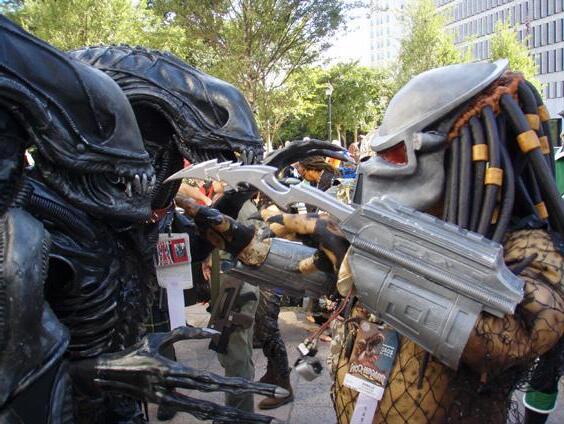

Lucy Edwards
“Who took Riley Brennan?” is the question at the forefront of this supernatural mystery...
Shelby Oaks is a thrilling feature that focuses on the disappearance of a group of young paranormal investigators who host their own YouTube channel, ‘Paranormal Paranoids’. The film particularly centres in on Mia, sister of Riley Brennan, the only victim of this encounter whose body has yet to be found.
Directed by Chris Stuckmann, this film offers viewers an experiment of various types of film; dabbling in the realms of the pseudo-documentary and found footage to tell this narrative. After the first fifteen minutes, there is a clear tonal and stylistic shift in the film, which cleverly subverts the audience’s expectations as to how the rest of the film will continue.
"This film offers viewers an experiment of various types of film..."
The quality of this film is incredibly impressive considering that Stuckmann is a YouTuber himself,
mainly making film review and critique videos, with a mass following of two million subscribers. With horror veteran Mike Flanagan as a producer on this project, the two have carefully crafted a scarier, more horrifying film that will surely appease those who find The Conjuring franchise too tame.
While Camille Sullivan gives a decent performance as dedicated older sister, Mia, and with a brief appearance from the timeless Keith David, the acting here is not the most hooking part of the film. The plot itself is full of twists and turns as you follow the journey along with Mia as she unravels the mystery behind her sister’s disappearance.
Whether it be the chance to wind down after a long day of studying or having a movie night with flatmates, films can be both a source of comfort and enjoyment at university.

Looking a bit deeper, this film briefly explores themes to do with cults and sexual violence, and the impact this has on victims of such acts, which was a disturbing yet interesting thing to see portrayed and play out during this feature.

Another amazing feature of this film was the set design. Especially in the latter half of the film, the set design for the abandoned Shelby Oaks town, was incredibly creepy and atmospheric.
This film is a must-see for horror fans, particularly supernatural and found footage horror fans alike.
Gina Tindale - Academic Officer
When people discuss film nowadays, there is an ever increasing critical focus on the lack of originality within the medium. There are too many reboots, sequels and franchises which all receive the same core critique - a lack of artistry which is slowly killing the medium through the death of a thousand cuts.
For many, the emotional power of nostalgia has been transformed into a creative cull, exploited by hyper-capitalist production studios trying to squeeze easy money out of viewers. However, it is very hard to ignore the great influence that the pandemic had on accelerating this trend to its worst - and how now, in the post-Covid era, we are being pulled out. Pre Covid-19, the film industry was already beginning to grow reliant on nostalgia-driven content. Disney had already clearly established their intent to continue making live action remakes of all their past animated films. Ghostbusters had their very controversial all-female reboot in 2016. It was also a trend in TV, with shows like Twin Peaks rebooting. Nostalgia is a very effective marketing tool - the audience is already familiar with these characters, invested in their stories and comforted by their return to the screen. Nostalgia can also help with creating community, bringing people together to experience the same story in a new way. Stories and the way they are told have always adaptedremakes, if given the room to do so, can have great artistic merit. There is a place for nostalgia within film which can be driven by creative forces.
Then Covid-19 happened. Film production was halted. Cinemas were closed. Streaming became the primary distribution center of all media. On both sides, creators and audiences were drawn to nostalgic media. For producers, nostalgia represented a safe way to earn money in a financially precarious time; for audiences, nostalgia provided security and comfort during a confusing and scary time in the world. Suddenly, a trend in the film world was blown into its most extreme. This did come at a creative cost.
As society moves away from the pandemic era and we are now solidly post-Covid, the film industry still struggles to recover. The cinema is still financially precarious; box-office takings are still below pre-pandemic levels, encouraging producers to prioritise making safe investments in nostalgia-driven media. However, to say this is true of all films is simply unfair. Though they may not be huge box-office hits, the artistry of film remains alive and well. For instance, Emma Stone’s partnership with absurdist director Yorgos Lanthimos has spawned three feature films with a fourth on the way, Bugonia (ironically a re-make of an old South Korean film called Jigureul jikyeora!).
There is also a growing trend in international cinema, demonstrating a desire from film-goers to see diversity, creativity and authenticity in the films they choose to see. The critique of nostalgiadriven media is a valid one and comes from a place of real concern about the prioritising of profit over artistry. However, there is a place for nostalgia within film which can be driven by creative forces. As we continue to move out of the Covid era, it will be interesting to see how the film industry reevaluates the balancing act between the old and the new.


But away from home without access to a DVD player and, for some, no access to family plans, the burden of paying for streaming services falls solely to the student - and in a time of financial strain, shelling out a minimum of £10 a month for access to entertainment is simply too
For those without access to streaming services, piracy can seem an appealing option. It is free and gives widespread access to a large portion of entertainment. However, it has the obvious downsides of being illegal, filling technology with viruses and taking money away from entertainment industries and hardworking filmmakers. Not that the alternative of giving money to large corporations who charge significant monthly fees and are oftentimes very self-serving feels much better. So what could streaming services do to appeal
more to students? They could reduce their membership plans, for one. Though certain services do offer a reduced fee - Prime Video allow students to have a 6 month free trial then 50% off per month and, through UniDays, students can get access to Disney+ for £4.99 monthly for one yearfor the likes of Netflix, there is no such reduced fee which leaves students paying, at a minimum, £5.99 a month for a subscription.
The oversaturation of platforms makes it impossible to afford all of them, thus it would only be right for students to be offered a reduced fee or even a more affordable combined package.
If you want to watch a movie without a subscription, look into renting it. Most movies, other than new releases, can be rented for under £5 and if you’re watching with flatmates, sharing the cost can make it very affordable.
If there is a new release coming out you’d like to see, take a trip to the cinema. Plenty of local places like Tyneside Cinema and Cineworld offer reduced student prices whilst Vue Cinemas in Gateshead offer tickets for as cheap as £4.99. Regular trips may be outside the budget but once a month could mean keeping up to date with new releases whilst also being a fun trip out with uni mates.
We can only hope in the future streaming services all begin to make more ethical, userfriendly adjustments to their models which allow students to stream movies more affordably, but if you know where to (legally!) look, cheaper options for entertainment can be found in many different places which allow movies to remain an accessible part of student life.
The 'lone girl' theory: why are film girls always alone?
Jess Mooney - Head of Current Affairs
Every time a man writes a song, he’s a cowboy, a sailor, a soldier” - The Hand by Annabelle Dinda. Every time he directs a movie, he’s an explorer, a saviour, or a dreamer.
But when a woman steps onto screen in a film “made for everyone,” she is something else entirely; she’s the 'lone girl'. Movies marketed 'for men' are often treated as movies for everyone. Their heroes are universal symbols of bravery, ambition, or rebellion. By contrast, movies 'for women' are dismissed as niche rom-coms, family dramas, or chick flicks. The difference lies not only in marketing, but
Yet the 'lone girl’s' strength often carries a quiet cost. To be accepted, she distances herself from femininity. She may roll her eyes at 'girly' behaviour or express open disdain for the women around her. When female peers do appear, they’re often portrayed as petty, incompetent, or antagonistic. Her exceptionalism depends on their inferiority.
The phrase 'lone girl' itself has roots not in empowerment, but in horror. It echoes the 'final girl' trope, the last woman standing after a slasher villain has killed all her friends. She survives because she’s pure, cautious, or smart, but her victory is hollow: survival at the price of total isolation.

“...the lone girl's strength often carries a quiet cost.”

“What's missing from these stories is community.”


A reading week book rating...
Another Brooklyn, details the story of August’s coming of age in 1970s Brooklyn. Woodson’s lyrical prose depicts life on the fringes of society, while also presenting struggles with grief, black girlhood, and religion.
The theme of memory permeates the novel, the non chronological structure and all that is left unsaid, renders you free to drift through time with August. Personally, I find (if done well) short books to be more powerful, yet, Another Brooklyn did not impact me or affect me in the way many have –e.g. Claire Keegan’s, Foster. The style and the concept both appealed to me and, in all fairness, were parts I really enjoyed.
However, the ending was too abrupt, as if my time with the characters had been cut short for no logical reason. This book, while beautifully written, was not able to create the emotional effect it had the potential for.
Phoebe Clark - Arts Sub-Editor
Our Arts Sub-Ed chats to Esther Huss and Alex Oates about this huge achievement...

Rude Health festival is an artist-led organisation in Blyth, facilitating a space for world class performers to reach a North-East audience, run by Esther Huss and Alex Oates. Responding to issues that local communities face, this season’s line-up consists of artists and performers concerned with themes of motherhood, grief and care, explored through dance, film and visual art
This year’s vibrant lineup includes live artist Liz Aggis, Alistar McDowall, Yuvel Soria and so many more. As a result of their important work, bringing
together local communities with a diverse range of creatives, Rude Health has been nominated for the 2025 North East Culture award. Celebrating this exiting achievement, I caught up with founders Huss and Oastes to discuss what this means for them and the organisation.
Congratulations on your nomination for the North East Culture Award, along with some of the biggest cultural names and organisations in the North East, what does this mean to Rude Health?
Thank you very much! This is our second year of Rude Health, our second year as a charity too. It was such a hard slog to secure the funding for this year’s festival so our main hope is that this means it won’t be such a battle next year. If this nomination helps us get the word out about the brilliant work and artists coming to the Tute over the next few weeks as well it would be brilliant!
Your work is for the community, responding to their needs and issues that affect them, how do you identify the themes that need your attention?
We have regular community groups that run throughout the year and so we get to know the people in our community and can use that knowledge to drive our programming. We live here, our kids go to local schools so we’re very aware of the challenges the area face.
What are some examples of the direct benefit that Rude Health has had on the surrounding community?
Last year we worked with schools and nursing homes, taking Beckett into a nursing home was a brilliant experience. This year we’re focussing on schools, we have a creative writing program in the local high school, a movement program
in two primary schools and we’re touring a new show about dealing with parents who may have substance abuse challenges by Danielle Slade into 5 local primary schools. We believe the problems in society stem from a lack of empathy in communities and the arts are a brilliant tool for fostering empathy. Working with youth is the best way to develop that. We’re also making a work exploring the experience of refugees, it’s a new play written by me (Alex Oates) and that came about as a way of thinking about how we address the division in the area responding to all the flags that appeared on lampposts in the summer. Overall there’s a feeling of change in Cambois, more people are coming to the area, moving to the area and starting to think about it as a hopeful place. People say that artists move to an area, the prices go up and the artists have to leave and we don’t want that to happen. We don’t want to gentrify it and change the DNA of the place, we just want to create a space where people can share in empathy, ambition and pride in our village.
How do you choose the acts that perform in the lineup, are they all local to the area?
They’re all artists who we resonate with and who are full of integrity. They tend to be well known artists with long careers who challenge the status quo in their fields. For example Liz Aggiss who appears this year is a pioneer in anarchic performance art – Esther studied her at university and so we were thrilled she’d come and be part of Rude Health this year. 80 percent of our freelance artists are local and mid-career, it’s important to us to employ local people as well as bringing exciting artists from further afield.
Sat in his living room, Kevin Kelland- activist and long-term survivor of HIV- shares his experience as a Buddy in the 1980s, when volunteers offered companionship to those dying of AIDS. He recalls a young man he supported during his final weeks, who was given an exorcism at his hospital bed in an attempt to ‘cure’ him from homosexuality. Clipped alongside Kevin’s recollection is the voice of nowretired specialist HIV nurse Theresa Burns, who, towards the close of her nursing career, was asked by a patient, “Did people really used to die of this?”
These recorded testimonies, jumpcut together, lay bare searing, contrasting insights into the fear, discrimination, and misunderstanding that moulded the early years of the HIV/AIDS pandemic, when the immunodeficiency virus was often a death sentence and stigmatised as a moral failing. Stories like Kevin and Theresa’s resonate universally, representing mere drops in the ocean of the oral histories fostered by the National HIV Story Trust (NSHT)- a charity dedicated to recording, safeguarding, and sharing the first-hand accounts of individuals affected by HIV and AIDS. The Trust has amassed an archive of more than 200 hours of filmed testimony, the largest of its kind in the UK, forming the backbone of the HIVstory Project, whose mission is simple: for people to remember.
The HIVstory Project is a three-year outreach initiative, set in motion in 2024 and funded by The National Lottery Heritage Fund, that brings these testimonies out of the vaults and into the hearts of communities across the UK. In the North East, the project is being realised in partnership with Newcastle
University. Here, oral histories intersect with local voices and spaces, reigniting forgotten stories into a region shaped by the contaminated blood scandal, witness to grassroots activism such as Living Proof, and home to the second NHS Trust in the country to be awarded recognition for being HIV Confident. The North East’s launch exhibition at One Strawberry Lane, which opened on 29th October, features 45 stories drawn from NSHT’s archive.The exhibition is deliberately grounded in the communities it seeks to engage.
At One Strawberry Lane- a city-centre hub for organisation collaborations and weekly support groups shadowed by St James Park- the exhibition immediately immerses visitors in a quiet intensity. A curved wall is lined with accounts and faces behind the stories, framing a TV screen playing archived interviews on a continuous loop: Kevin, Theresa, survivors, activists, doctors, professors, and loved ones.
Dr Gareth Longstaff, North East Regional Leadof HIVstory and Faculty Director of Diversity, Inclusion and Equality at Newcastle University, says that the grassroots approach to the exhibition is ‘intrinsic’ and a driving force behind reigniting the North East’s landscape’s voices. Gareth says, “I want the work we do in the North East with this project to become a non-London pilot for other geographies in the country. You could lift and shift what we have done up here anywhere and it would have its own flavour.”
Across the space hangs a vibrant, extensive AIDS quilt- a mosaic of textile panels with distinctive patchwork designs and messages stitched by people living with HIV who attend social groups at the Blue Sky Trust. The piece was created as part of the Eyes Open project, a North East and Cumbria-based collective who use art competitions, workshops, parades, campaigns, to raise awareness of HIV and contest its stigma. Made in 2012, the quilt stands a tactile altar to lives cut short and communities forever changed, Mark Ellerby-Hedley, Senior Health Improvement Practitioner at the Newcastle Upon Tyne Hospitals NHS Foundation Trust.

After suddenly losing his long time partner to HIV in the summer of 1998, Mark was tested HIV-positive and dismissed from his job as a supermarket manager when his diagnosis was disclosed to his boss. He returned to education and completed a counselling course at Newcastle College before becoming a HIV Men’s Support Worker at MESMAC, and later, a founding member of Eyes Open in 2003. “The aim of Eyes Open was to engage with schools through their art departments, facilitate awareness sessions, and then encourage them to produce artwork to enter into an art competition,” Mark says. “Our winners and highly commended pieces were shown at an exhibition at the Biscuit Factory during World AIDS Day in 2003.” After deciding to build an Eyes Open HIV Awareness Quilt as a resource to continue channeling education through creativity,
Eyes Open delivered workshops throughout 2011 met with huge support. Mark continues. “I am so proud to see the quilt displayed as part of the HIVstory exhibition. My hope is that the exhibition give people an opportunity to hear lived experiences of how HIV impacts people's lives.”
Over 40 million people have passed away from HIV-related causes since the beginning of the pandemic, with around the same number living with the virus today. The weight of those statistics becomes tangible here, where stories of loss, and life breathe living memory into the numbers. “The gay community was very successful at being an underground community as the HIV pandemic started, but when the community suddenly became headline news, we could not be ignored,” says Nick Thorogood, CEO and co-founder of NHST. “For a lot of people, this pandemic was a second coming out.”
"The most important thing is to share the truth. If you tell a story that's true, you normalise it."
Nick registered NHST as a charity in 2020, alongside chair and co-founder Paul Coleman, after recording 100 interviews. Both men are bound to the project by both personal loss and flair for communication: Paul, a BAFTAnominated TV director and producer, is himself a long-term survivor of HIV, while Nick, a former daytime in the 1990s. He deposited 150 hours of material with the London Metropolitan Archives, making it publicly accessible. “The most important thing is to share the truth. If you tell a story that’s true, you normalise it.” Nick says.

Anna Lewis
In an interview with NBC News, the original pitch for Friends (1994) used by Marta Kauffman and David Crane was revealed to be this: “It’s about sex, love, relationships, careers, a time in your life when everything’s possible. And it’s about friendship because when you’re single in the city, your friends are your family.”

Now, over thirty years since it first aired, Friends remains one of the most enduring and consistently popular shows of all time, and you’d be hard pressed to find somebody who won’t recognise the characters, the title, or even one of its many quotable catchphrases - Pivot! But while the sitcom isn’t for everyone, it certainly isn’t going anywhere, leaving one main question in its wake: Why on earth is Friends so popular?


Undoubtedly, Friends has some hilarious moments and some iconic plotlines, but no more so than many other well-written TV comedies. In fact, if you speak to those who return to the show again and again, you’ll find that the first thing they say most often isn’t that it makes them laugh, but instead will utter a phrase that has come to the forefront of the mainstream in recent years - “It’s my comfort show.” This comfort, applied to other series’ also but so commonly associated with Friends, is where I believe the show's unending appeal stems from. Relationships are a universal constant, whether it be partners, friends, family members or even passing acquaintances, and no aspect of that is more universal than friendship itself. It’s vital to all types of connection, a layer in some and the entirety in others, and for all, the central group of 20-somethings in this show are representative of exactly the kind of idealised warm, funny and loving friendships that people aspire to.

Charlotte Chantler - Science Sub-Editor
Late night TV is one of the most profitable forms of television still around, but which country does it better?
From the wit of Jimmy Kimmel in the US to the charm of Graham Norton in the UK, late-night television takes very different forms depending on which side of the pond you're watching from. But what is it that makes these shows distinct and which style truly wins over audiences?
Late-night television has historically shown the cultural differences and heart of its country. In the United States, most of these shows are rooted with big personalities, celebrity interviews and even monologues that balance humour with commentary. Both Jimmy Kimmel Live! (2003) and The Tonight Show Starring Jimmy Fallon (1954) have shows encompassing elaborate sketches, musical segments alongside viral moments in order to make a hit on social media the next day. The approach is bold, polished and most of all is undeniably showbiz, reflecting a culture that thrives on charisma and instant entertainment.
Across the pond, in the UK, the latenight scene offers something more subtle, but equally engaging. The Graham Norton Show (2007) exemplifies the British approach where a single sofa is shared by A-lister guests that interact freely, often leading to unfiltered, funny
and surprisingly genuine conversations. Rather than interviews or scripted skits, British late-night tv often thrives on spontaneity. This humour leans towards self-deprecation rather than self-promotion, giving it a distinctly British taste. What sets the two apart isn't just format, but attitude. American hosts tend to position themselves as a 'ringmaster' where they orchestrate entertainment.
On the other hand, British hosts act more like facilitators, letting their guests (and their awkward moments) take centre stage. Each approach has its charm, with the US excelling in energy and production while the UK's more gentle tone offers warmth and authenticity.
"... TV remains a stage for laughter, personality and ... national characters..."
Ultimately, "who does it best" depends on what viewers are seeking. Those craving a polished performance might gravitate towards the wow and glitz of American shows, with fans of genuine out of pocket humour might prefer the relaxed charm of British late-night telly. Either way, both prove that no matter where you tune in, late-night TV remains a stage for laugher, personality and a glimpse into national characters and cultures.


For one of the most iconic sitcoms ever made, what makes it so good?
What if Superman (2025) focussed more on the PG15 jokes and less on the concept of hope for the future of humanity?
At last, after 3 and a half years of waiting, Peacemaker is back. Meanwhile the entire DC universe has been rebooted again, James Gunn has become the boss of the studio and Superman has become nice again. After a first season which was successful enough to protect them from the change of universe, Peacemaker and his clan return after several years in the series, carried by James Gunn who comes out of his usual film to try a new challenge.
showrunner uses shortcuts to make the story easier to set up. For instance the love relationship between Peacemaker and Emilia, it represents a major plot across the season, even though this relation didn’t exist at all during the first season.
"...the casting welcomes some new faces..."
Beside this unprecedented plot twist, the casting welcomes some new faces like Tim Meadows and even feature actors from previous DC projects that are reprising their roles. Nicholas
Lex Luthor himself, offers the fan a surprise cameo. Unlike Rick Flag who enjoys a recurring role during the season, after being a main character in the animated Creature Commandos back
"...in a distant future, we're going to see him fighting alongside "...the storytelling leaves something to be desired."
It is clear that the director of the The Galaxy (2014) is getting out of his comfort zone here by creating a series, a domain he did not master quite as well as his movies. Indeed, although his talent and personal style is undeniable his greatest strength and is very much present in the series, the storytelling leaves something to be desired. Indeed because of the big time gap between the two seasons, the

As dawn breaks on a new DC Universe, (2022) stands as a pillar of comic books TV shows and a pioneer of James Gunn's new universe. Only time will tell if, in a distant future, we're gonna see him fighting again alongside Superman and Batman.

1) Legend says this building on campus is haunted...
3) The mascot of this iconic board game never had a monocle, contrary to the memories of millions worldwide.




5) Newcastle University's own student bar!
6) Finish this famous lyric"My _________ brings all the boys to the yard"
7) A recently released superhero workplace comedy
2) This is a line of plush dolls that resemble monkeys, originating from Japan.



4) I won't tell you the answer to this one. What does this make the answer?
8) Spending lots of money, quite luxurious. Buy a very expensive gift, and it will be described this way.
Which iconic 2000s video game centres the exploration of outer space, starring a famous mascot?
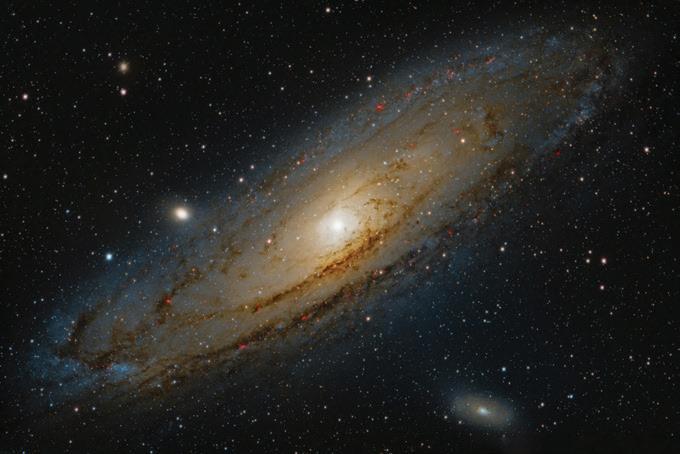





In 2025 there are more ways than ever to be interconnected with sports.
From the tap of a button the entire sports medium is at your fingertips. And for Gen-Z fans who favour short-form, dynamic content over lengthy broadcasting this has increased the correlation of fan support through social media.

variety of games.
Additionally, the optimization of vertical viewing on TikTok; intended to attract a more youthful audience, keeps Gen-Z fans involved in the events.

the number one creator at the Olympic Games."
This was demonstrated from a recent
with
“Promoting the game further beyond initial live broadcasting.”

While it is no surprise Gen-Z have a shorter attention-span, the capability of social media allows for full-time events to be condensed into "clippable" content allowing users to engage with a larger



Notably, an advantage to sport support via TikTok is that the shortform content that highlights a great dunk, a penalty shootout or standout game commentary, gains immediate traction thus prolonging the existence of the game further beyond its initial live broadcasting. Through the accessibility of social media, Gen-Z often form online relationships with athletes via TikTok; "Athletes are now




“Athletes are now the number one creator at the Olympic Games.”
-The TikTok Global Head of Sports Partnerships- discussed that at the Olympics: Even more, the British gold-medal diver Tom Daley established social media has become a primary aspect to being an athlete. The personalisation of athletes through social media closes the gap between the professionalism of being an athlete to being a real person. Therefore, TikTok offers the opportunity to humanise their day-to-day lives and portray their authentic, relatable selves.
It is imperative that belonging to a fandom for Gen-Z incorporates a social, communitydriven conversation that extends beyond any pitch or pool and into wider cultural discussions. The
fans are active creators, re-editing the games, curating memes, and utilizing hashtags; This becomes an influential power-drive of fan support.
“Social media provides an experience for fans to involve themselves in the sport.”

Without any doubt, partaking in sport culture such as going to games, purchasing merchandise, and subscribing to sport channels is an expensive hobby to maintain. Whereas social media provides a free experience for fans to involve themselves in the sport from the comfort of their screens.

James Morley
USA gets stadiums and sponsors, UK gets a soggy pitch and a pint after...
While at times it is hard to give our American counterparts their credit, within the sphere of college sports, they have undoubtedly outclassed us Brits. With 100,000-plus seater stadiums packed to the rafters, and games televised to a national audience, American collegiate sports serve as a multi-million dollar institution that stretches far wider than just exercise or social activity.
The most clearly defined departure from the British framework is the vast financial structure that underlies the American system. Athletic divisions operate much more like professional teams than universities, with specialist coaches, physios, and recruiting officers, as well as state-of-theart training facilities and stadiums being the norm.

The National Collegiate Athletic

Association (NCAA) - the governing body of American collegiate sportsreported nearly $1.3 billion in revenue for the 2022-23 fiscal year, with almost $945 million of this being accounted for by media rights and marketing deals alone. The socio-economic impact of collegiate sports is abundantly clear, with the annual ‘March Madness’ basketball tournament - a 64-team elimination to crown the national champion - bringing in more than $900 million for the association in 2024 alone. The financial dominance of American collegiate sports was further boosted in 2021 by the NCAA V. Alston Supreme Court ruling, which paved the way for Name, Image and Likeness (NIL) rules, allowing student athletes to finally make money from their personal image. Through deals such as sponsorships, product
“The most clearly defined departure from the British framework is the vast financial structure of the American system.”

endorsement, and autograph licensing, players could be financially compensated for their profession.
This marks a distinct shift away from the NCAA policy of previous decades that blocked athlete compensation beyond the provision of scholarships. In contrast, the British higher education sports system suffers from this vast financial discrepancy, as well as having to compete against the prevailing system of fostering athletic talent through the academies of professional sports teams.
early age; with just 6% reaching lower league football, and just 4% reaching the top tiers of the game. In a system that is inherently built upon competition, the prospect of release from these academies has prompted mental health issues and an


“The British higher education sports system suffers from this vast financial discrepancy"
fulfil academy fixtures.
"University sports participation is rarely viewed as a direct avenue to professional progression"
Consequently, university sports participation is rarely viewed as a direct avenue to professional progression, but rather the opportunity to meet new people, play sports within an entrenched league system, and to participate in varsity fixtures against rival universities.

The cruel reality of these academy systems is undoubtedly their ultracompetitive nature, set in stone from an
underpreparedness for a life outside of football, most notably due to repeated absences from school or education to
Perhaps the most notable exception to this British experience is the annual Oxbridge Boat Race, with this year’s edition drawing in 2.82 million viewers
"The Oxbridge boat race is still dwarfed by the sparkling lights of the US system"
via BBC’s international coverage, and over 200,000 attending in person.
Despite the race representing a sizable shift away from the typical experience of university sports, the Boat Race is still dwarfed by the sparkling lights of the US system, with their economic supremacy and air of professionalism, showcasing the underfunding and apathy towards British higher education as a means to forge the next generation of athletes.


Carly Horne
If you’ve never heard of korfball, don't worry; you’re not alone. Newcastle University’s Korfball Club is working hard to change that, though. The mixed-gender Dutch sport is often described as a hybrid of netball and basketball, but that sells it short. Fast-paced, extremely tactical, and genuinely welcoming to beginners, korfball is quietly building one of the strongest grassroots communities on campus.
I spoke to Luka Patel, Events and Outreach Secretary to find out more about Korfball at Newcastle University. The sport is built around equality by design. Originating in the Netherlands, korfball is played in two halves: one attacking, one defensive. Each half has four players from each
team — two men and two women — and players can shoot from anywhere in the attacking zone. You can’t move with the ball, there’s no backboard on the hoop, and crucially, you only mark players of the same gender.
“We always train and socialise together."
always train and socialise together.”

Grace Laidler

The sport is built around equality by design: controlled contact rules level out differences in physicality, creating a genuinely balanced team game. If you are looking for a club that feels like family, then Newcastle’s Korfball Club leans hard into that ethos. “It’s one of the smaller sports clubs, so everyone knows each other,” members explain. “Even though we have teams split by ability, we
I asked what might confuse an outsider at training, and korfball did not disappoint: the shouting. Luka tells me “Calls are used constantly, and one of the main ones is ‘Party!’ — it means the defenders have won back possession.” If you don’t know the sport, it sounds like organised chaos. It seems that the club’s social secretaries aren’t messing around, either. Weekly themes this year include Under the Sea, Mario Kart, and Rhyme Without Reason. But it’s not all clubbing and chaos. The team also runs sober socials for those who don’t drink or can’t make Wednesday nights. “We want everyone to feel involved,” they say — and it shows.
cover everything from absolute basics to advanced tactics, and the structure means everyone develops at their own pace.


Korfball seems to offer a mix that you won't find anywhere else.
It is a fast-growing sport in the UK, and it seems Newcastle is climbing right with it. The club's proudest moment this year? Finishing 8th nationally at BUCS - the club's highest placement in their history. They have also picked up multiple awards for their contribution to sport.
While previous experience in netball or basketball might initially prove beneficial, it is not required to do well in korfball. In fact, "most of our members had never played before joining", Luka confirms for me. Training sessions
And the ambition for this season is clear: “Match or better our 8th-place finish.” When I asked about their biggest rivals, Luka tells me it is the University of Leeds Korfball Team.
- NUTV Station Manager
At the heart of the city's football lies St James' Park. To some it's just the grounds, to others it means more. My love letter
Iwent for a walk around Leazes Park the other day. It was only a half-hour stroll, a means to get some fresh air and exercise after spending a week indoors battling the flu.
On this walk, I looked across the lake to see the great steel structure of St. James’ Park peeking through the trees. I thought to myself,
‘Wow… we are so lucky.’
St. James’ Park is a 52,000-seater football stadium, home to Newcastle United, located on Barrack Road. It opened when the club was established in 1892, and has since been renovated three times, the most recent being 25 years ago. Sometimes referred to as ‘The Cathedral on the Hill,’ Geordies congregate inside the stadium week-in, week-out to be dazzled or disappointed by their beloved football team.

first time this season, the coveted Champions’ League. I’ve visited for other events too: I saw local artist Sam Fender perform twice and watched women’s football games during the London 2012 Olympics.
Ever since the infamous takeover of Newcastle United in 2021, ticket demand has shot through the roof, making it increasingly rare to actually go to the stadium at all. I manage through a variety of methods: the ballot, the general sale, the re-sale and the kindness of people passing their tickets on.
“My first visit to St. James' Park was when I was six years old in 2010.”
Due to all of these different methods, I’ve sat in various different parts of the stadium. There are four stands: Leazes, East, Milburn and Gallowgate. The last of these is my favourite. It’s home to the singing Strawberry Corner,
In this past year, there’s been a lot of buzzing conversations about the possibility of a new stadium, in order to satisfy the growing demand for tickets. There’s rumours flying around that Leazes Park would be the site for it, as to not move it too far away from the original area. On one hand, a new stadium might mean I wouldn’t have to spend hours of my life refreshing the resale site. On the other, I’ve seen football clubs ruined by a shiny new stadium, case-andpoint West Ham and the London Stadium.
“I've
seen football clubs ruined by a shiny new stadium.”
In Leazes Park, I took a really



Erin Neal - Lifestyle Sub-Editor
Our AU clubs have been out and about in pink supporting Breast Cancer Awareness month!
October honoured the annual Breast Cancer Awareness Month campaign held worldwide, and Newcastle University’s Athletic Union clubs have been busy showcasing their endless support. Across campus, students have been drawing attention to the cause, fundraising and getting creative with a multitude of pinkthemed activities.
Newcastle University Pole and Aerial Club (NUPAC)
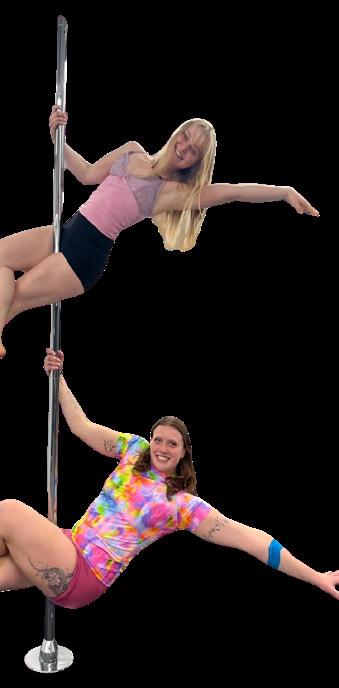
Student Pride’s most inclusive sports society award winners, Newcastle University Pole and Aerial club, ran their annual “Wear Pink to Pole” programme, where members dressed in every pigment and shade during their classes in the last week
in a club swap with female members of Brazilian Jiu-Jitsu, giving students a chance to learn self-defence while introducing their peers to pole and aerial techniques, a collaboration which championed both confidence and empowerment during a period dedicated to women’s strength. Their JustGiving page was widely circulated among current and past members to raise money for Breast Cancer Awareness Now. As shared on Instagram, “And now October has come to an end, but
Breast Cancer Awareness doesn’t have to!!...This is such a great cause to raise awareness for, so if you can, please consider donating, and wearing pink to your pole class this week.”
The University GAA Club (Gaelic Football) marked the month by adding a pop of pink to their training session apparel, with girls adorning their hair with the delicate pink ribbons. Simple gestures like this from AU teams are crucial to keep the conversation surrounding breast cancer active on campus and encourage safety procedures among members.
Newcastle University Cricket Club
The cricket club’s women’s side Welfare Officer, Issy Roberts, organised a daring icy sea plunge at King Edward’s Bay in Tynemouth, followed by a soulsoothing warm beverage at Woods Coffee, raising over £700 for Breast Cancer Now. Instagram posts from the club celebrated their achievement: “Everyone SMASHED it yesterday during our very cold water dip. We have managed to raise an amazing £727 for Breast Cancer Now!! A massive thank you to everyone who has donated and supported us for Breast Cancer Awareness month!”
“We have managed to raise an amazing £727 for Breast Cancer Now!!’’

Breast Cancer Now congratulated the students in the comment section with unwavering appreciation: “Well done to everyone for braving it to raise vital funds towards our
Newcastle University’s Trampoline Club held a themed social event called “On Wednesdays We Wear Pink” inspired by the 2000s cult classic Mean Girls, where all members dressed head to toe in the signature colour, with some even painting their entire faces in the hue.
NCL Knights, Newcastle University’s Volleyball club, also participated in Breast Cancer Awareness Month with a “Pink Night” during the BUCS Wednesday game day on October 15th.
Both men’s and women’s teams enjoyed 3-0 victories against Loughborough and Glasgow, with standout performances from players of the match Louis Jensen and Katarina Knezevic.

over £2 earned participants a pair of pink love heartshaped sunglasses to wear for the evening, helping the club raise £180.34 for Breast Cancer Now. Members Matthew (fresher) and Ryan (returner) were recognised for being best dressed.
“Their Instagram updates reminded members to learn self checking procedures.”
Their Instagram updates also reminded members to learn selfchecking procedures and symptoms to watch out for: lumps or swelling in the breast or armpit, changes in skin, nipple discharge and other early warning signs.
“Every effort leaves an everlasting impact.”
They also held a cold dip in King Edward’s Bay on October 25th, where more than 30 members braved the North Sea. The team raised an extraordinary total of £466 for Breast Cancer Now.
Breast cancer affects approximately 1 in 7 women in the UK over their lifetime, and early detection is critical. By fundraising, donating and spreading awareness kitted out in pink, these clubs help support vital research, education and the healthcare support systems that women rely on.
For anyone concerned about their breast health or looking to learn selfchecking strategies, resources are available on the Breast Cancer Now website.
The Newcastle University AU clubs have expertly demonstrated how sports and social causes can come together to create a difference right here on campus.
This October was a month of solidarity and action, accentuating the resilience held within our athletic cohort, not just on the playing field but in the wider world around us, too. Whether it’s proudly presenting the symbol, an endurance measuring sea submergence or taking part in a fun-themed night out, every effort leaves an everlasting impact.




View from the AU
Alex Duggan - Sports Officer
Early November marked the first Varsity flagships of the year, with a basketball doubleheader that set the tone for our Team Newcastle Varsity campaign.
Both our men’s and women’s teams delivered statement wins over Northumbria, with the men taking a dominant 108 - 73 victory and the women continuing their unbeaten run with an 85 - 65 result. Their efforts added two varsity points to the board and cemented the women’s place at the top of the league.
Alongside strong results on court, October brought an incredible wave of Breast Cancer Awareness fundraising across our clubs. Women’s Lacrosse led a T-shirt initiative, designed by Marnie Skeates and Georgie Osmond, with support from president Scarlet Stokes, selling 700+ shirts across multiple clubs and raising an amazing £2,400. Cricket braved a cold-water sea swim at Tynemouth, raising £772 for Breast Cancer Now, while Gaelic Football turned training pink in support. Pole & Aerial ran their annual “Wear Pink to Pole” and teamed up with Brazilian Jiu Jitsu for a charity club-swap, and Trampoline hosted an “On Wednesdays We Wear Pink” social, donating £180.34. A huge thank you to every club for championing such an important cause.
